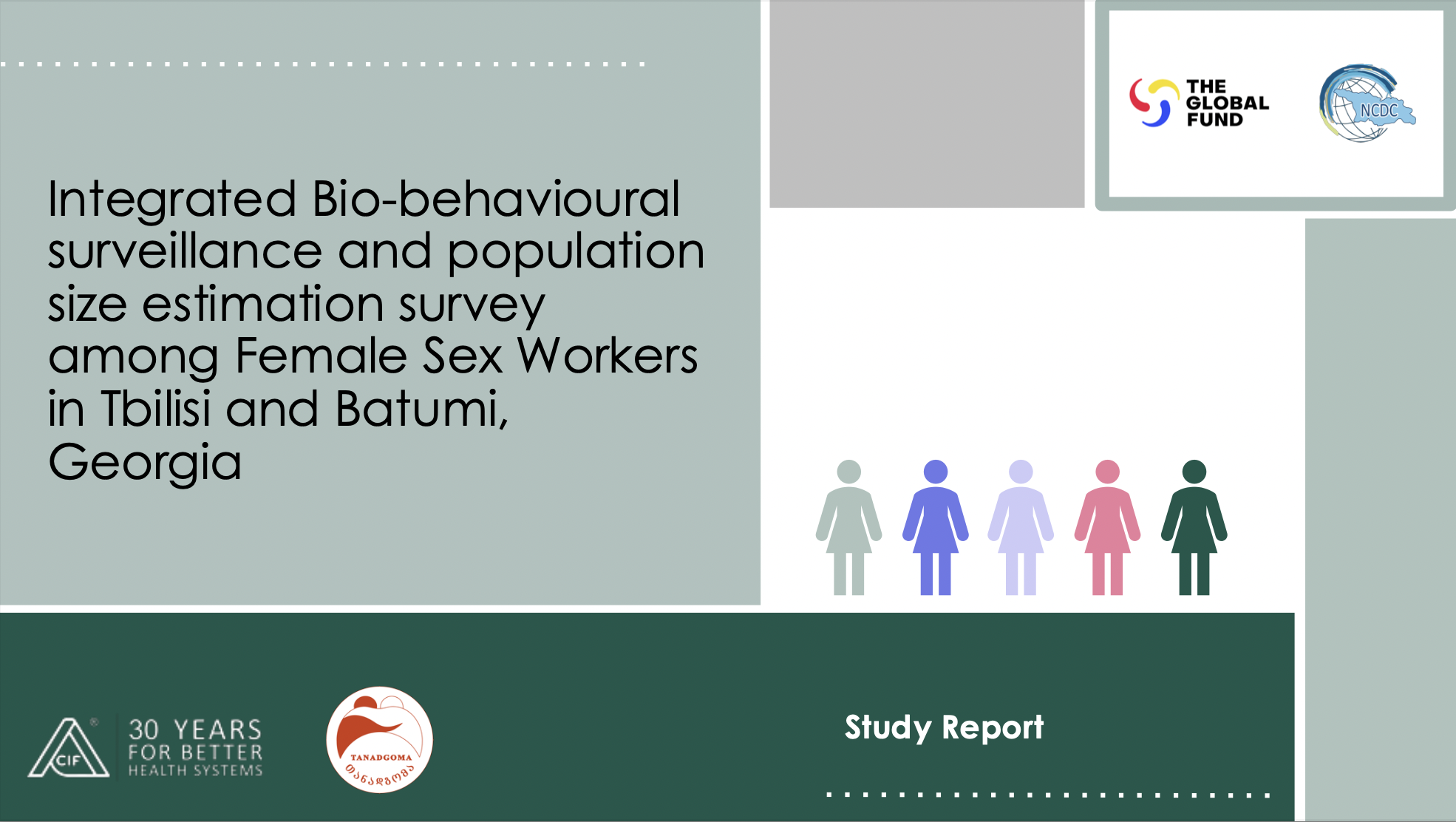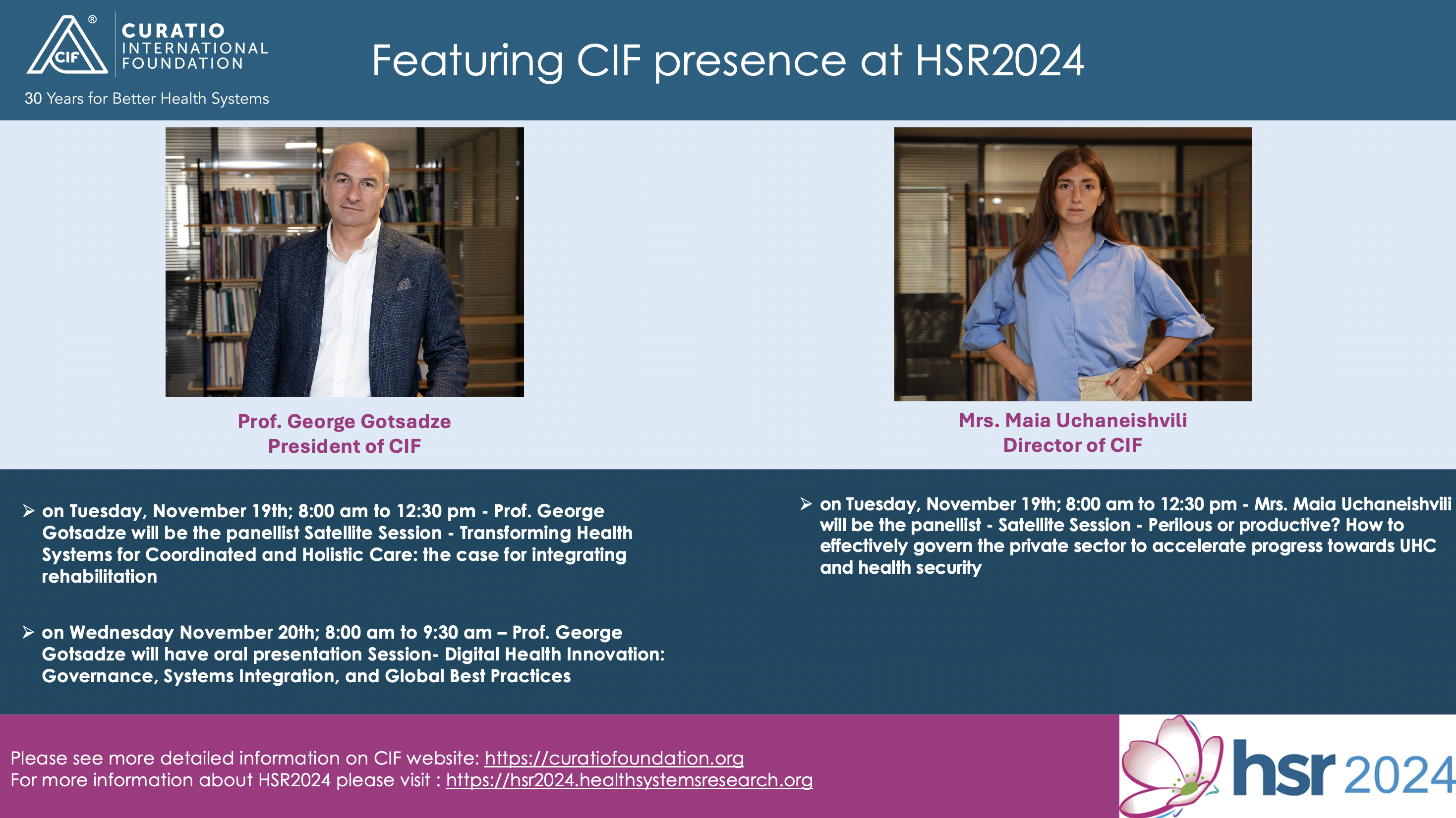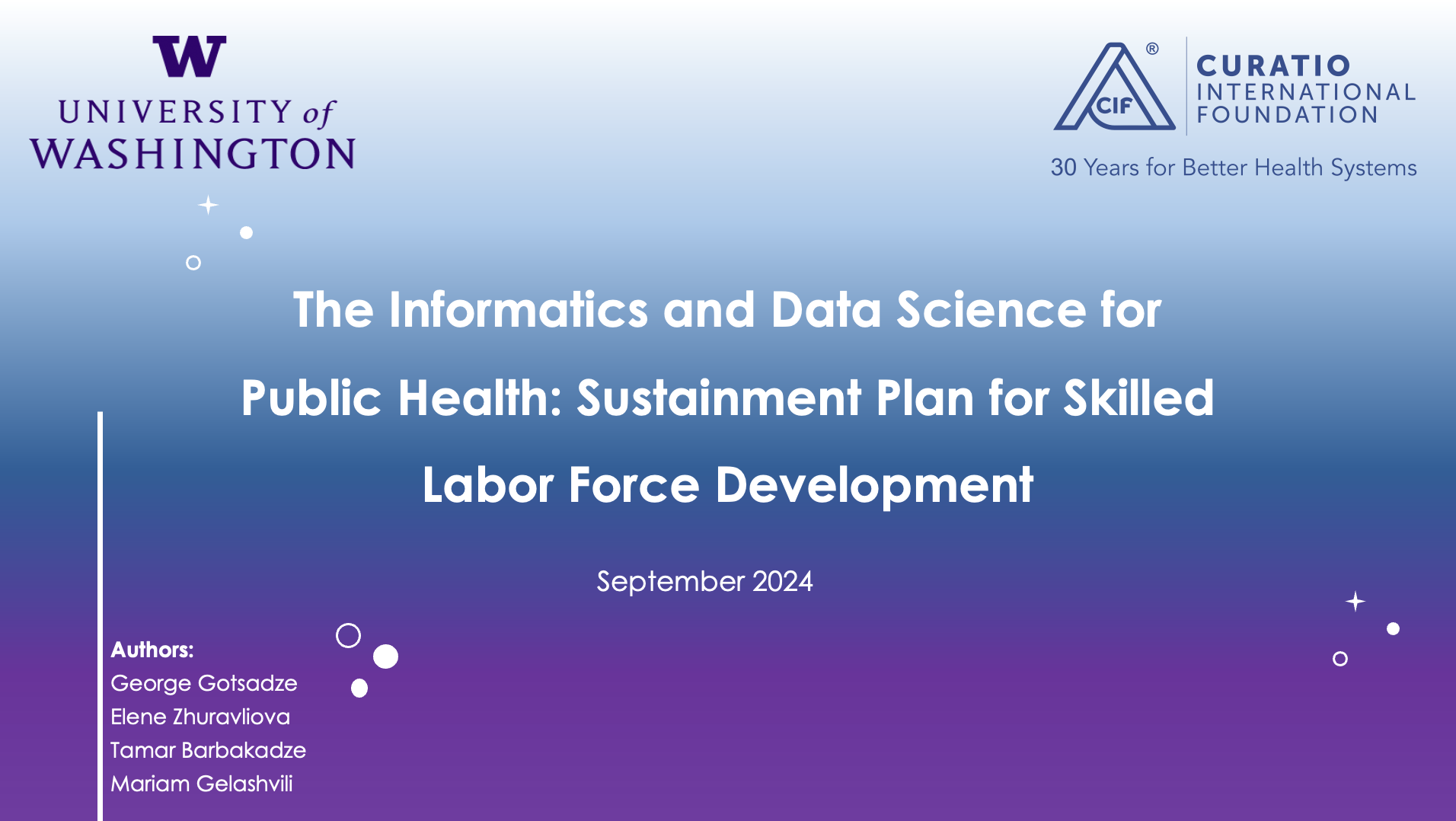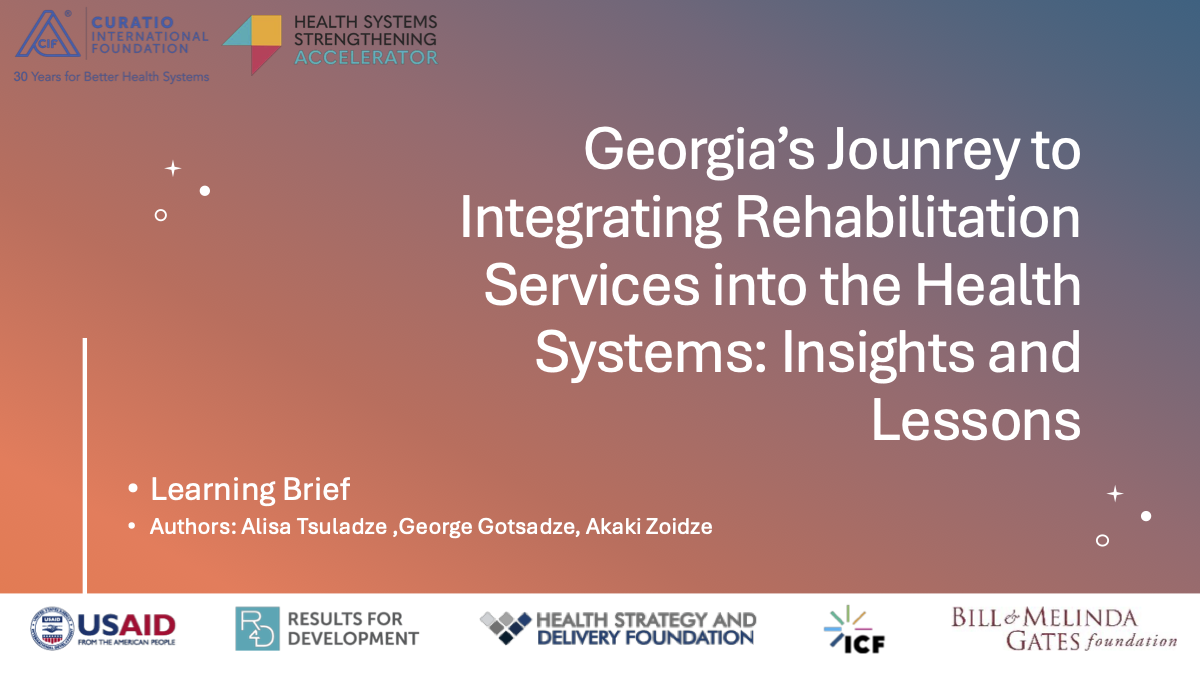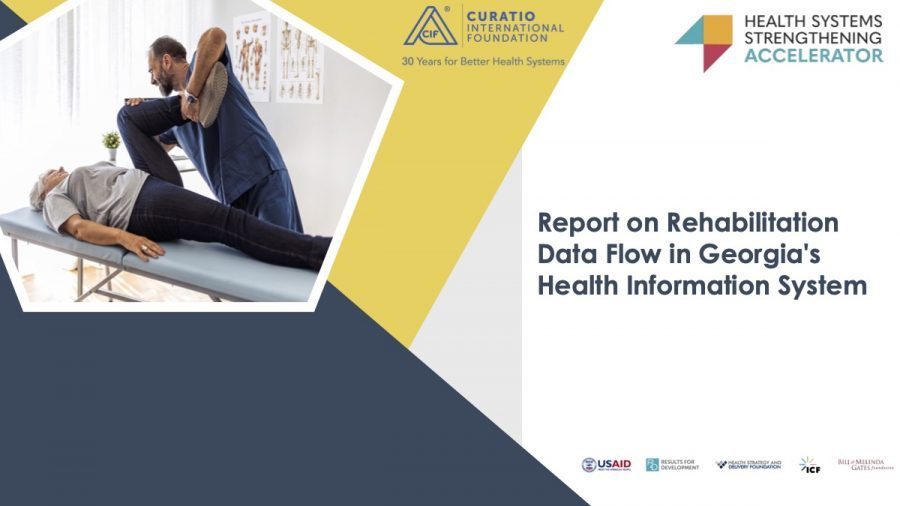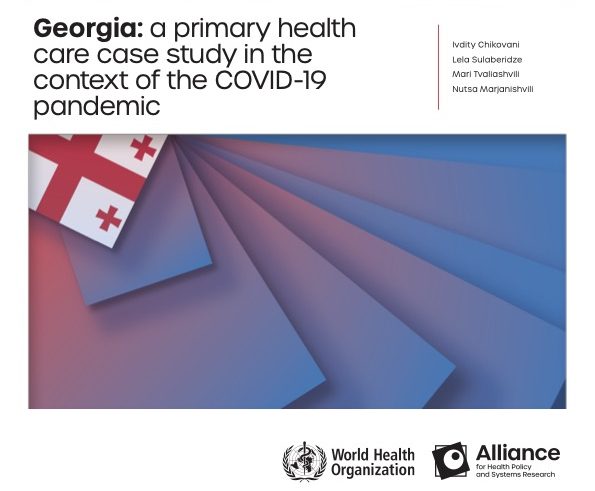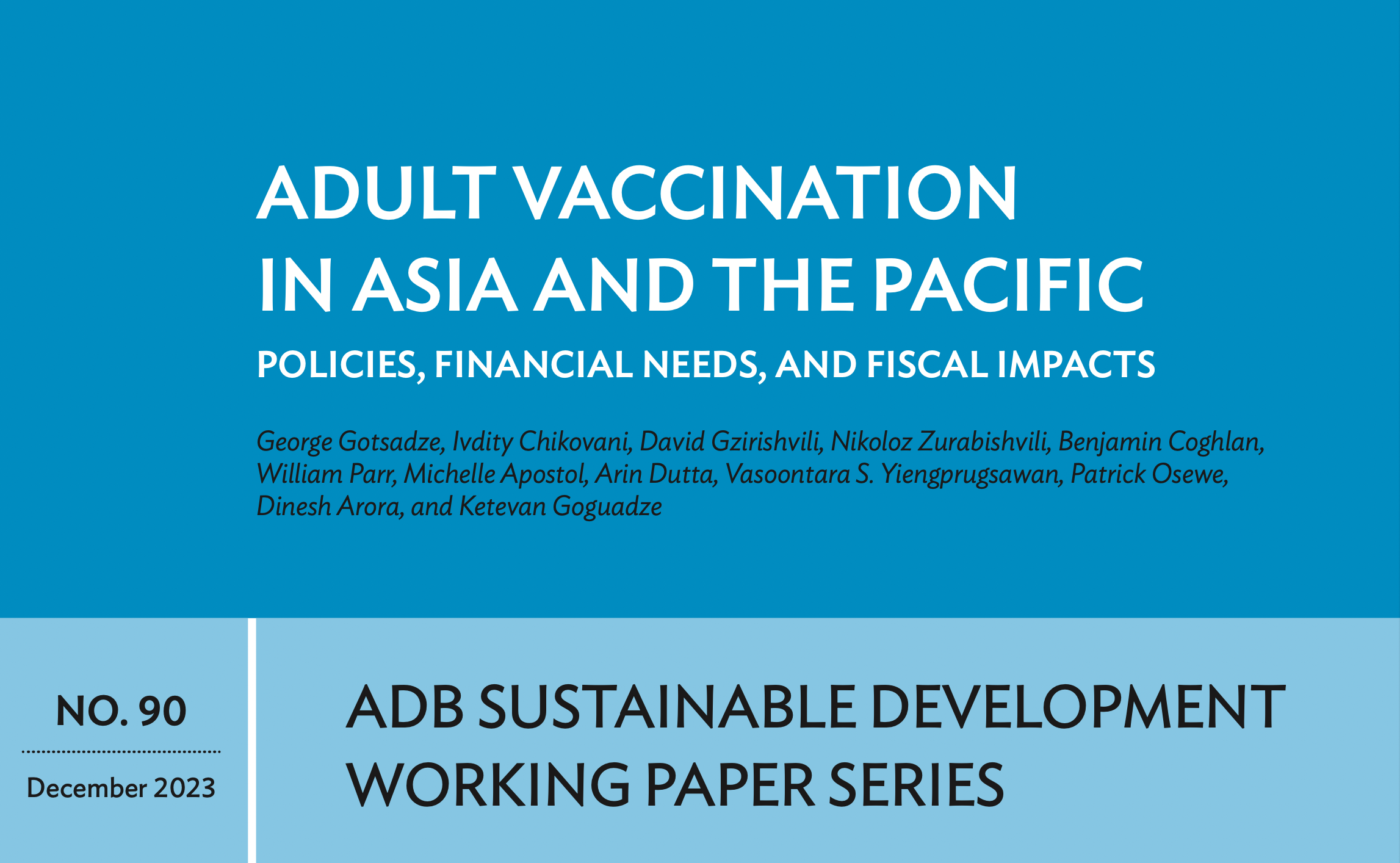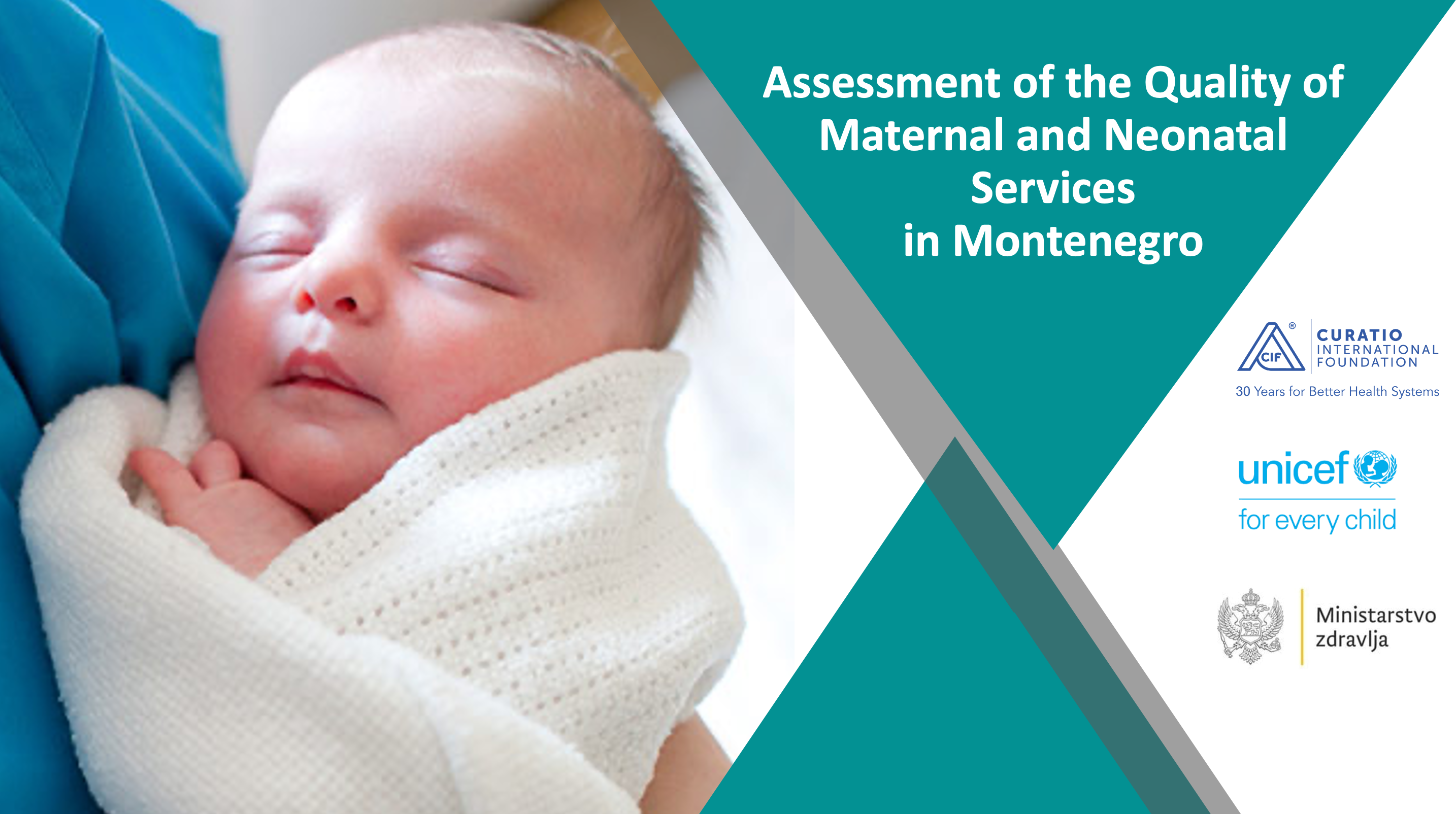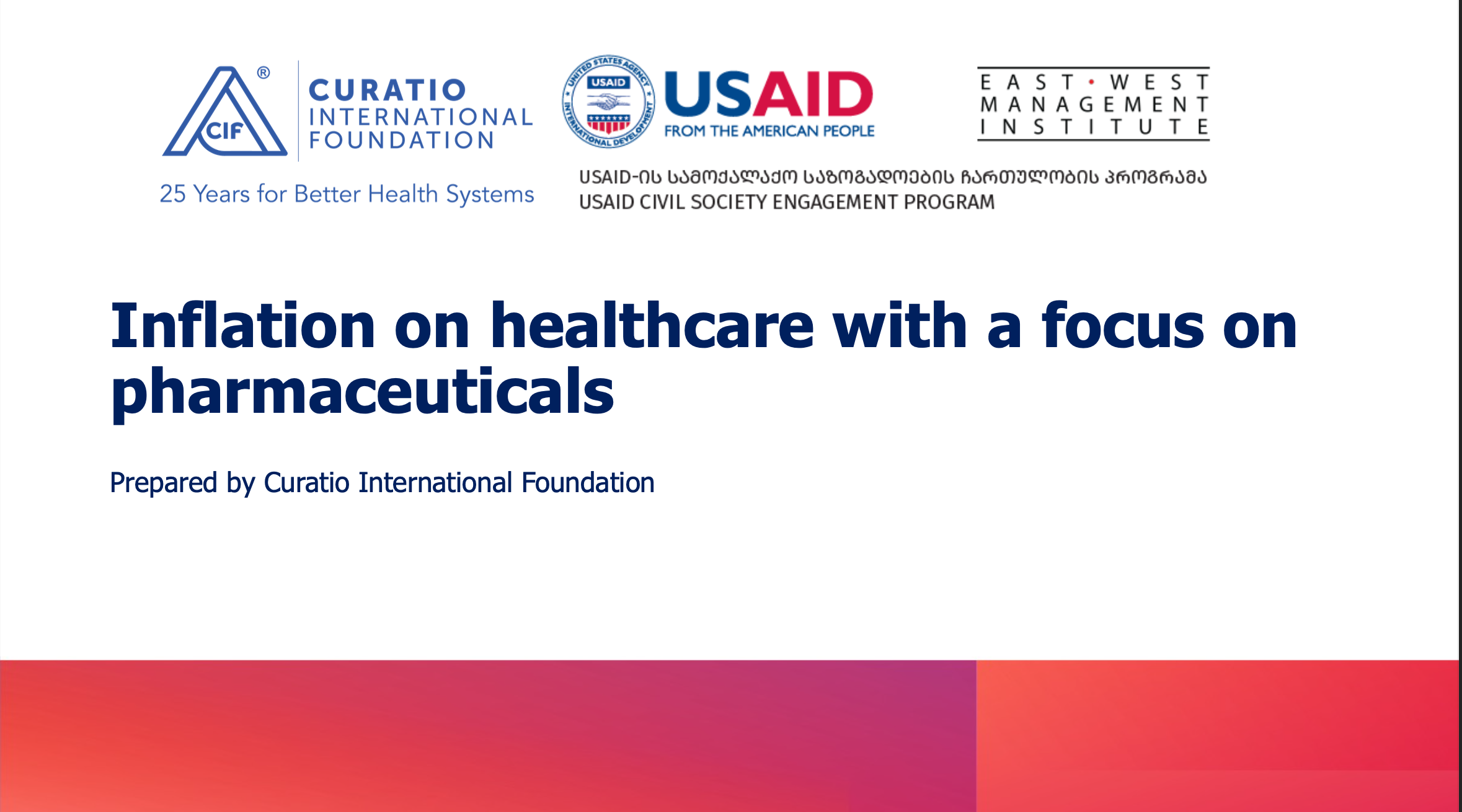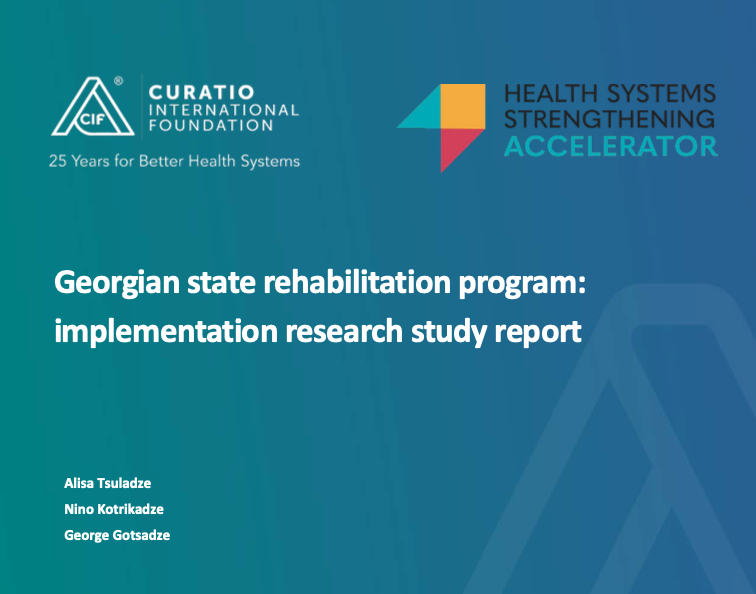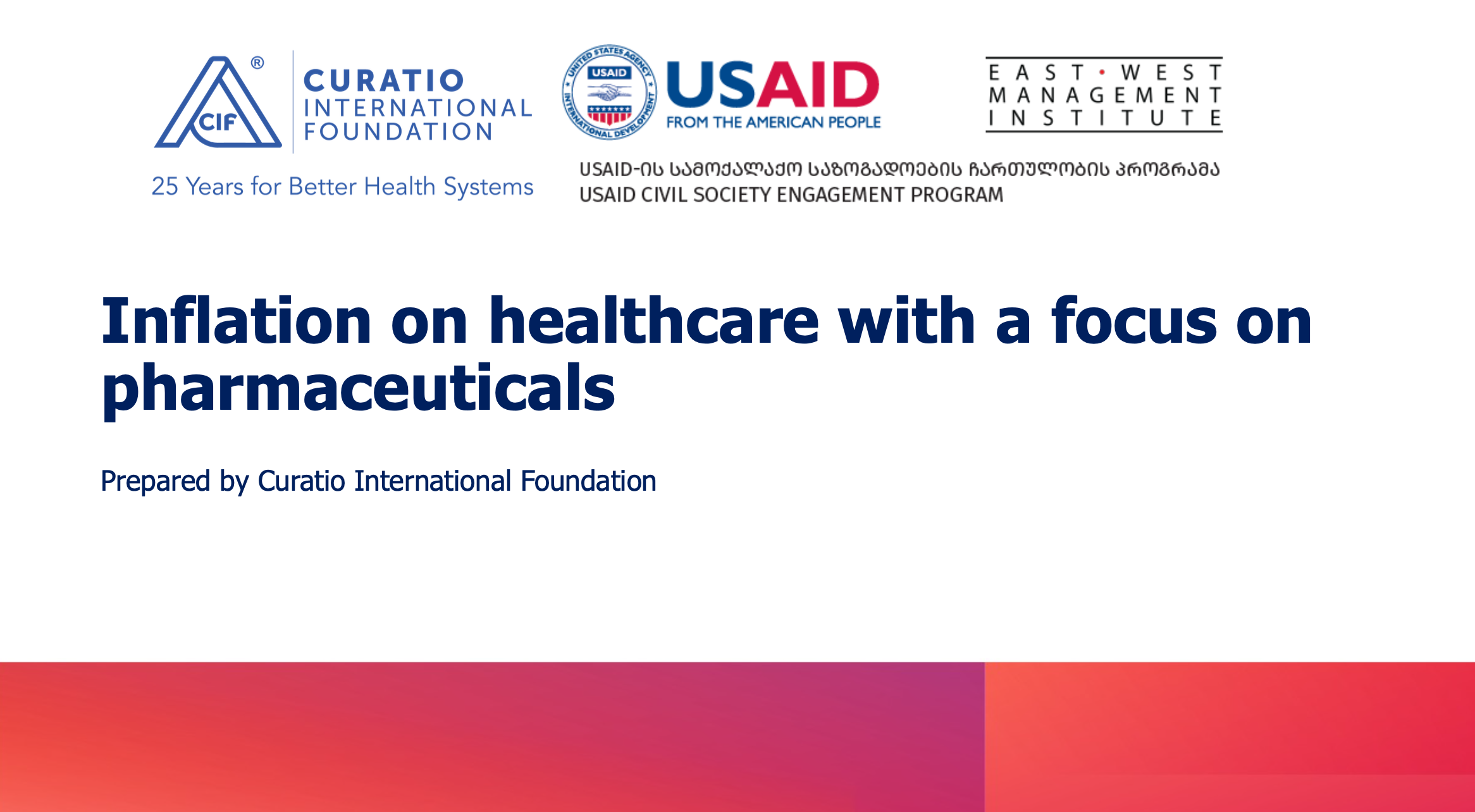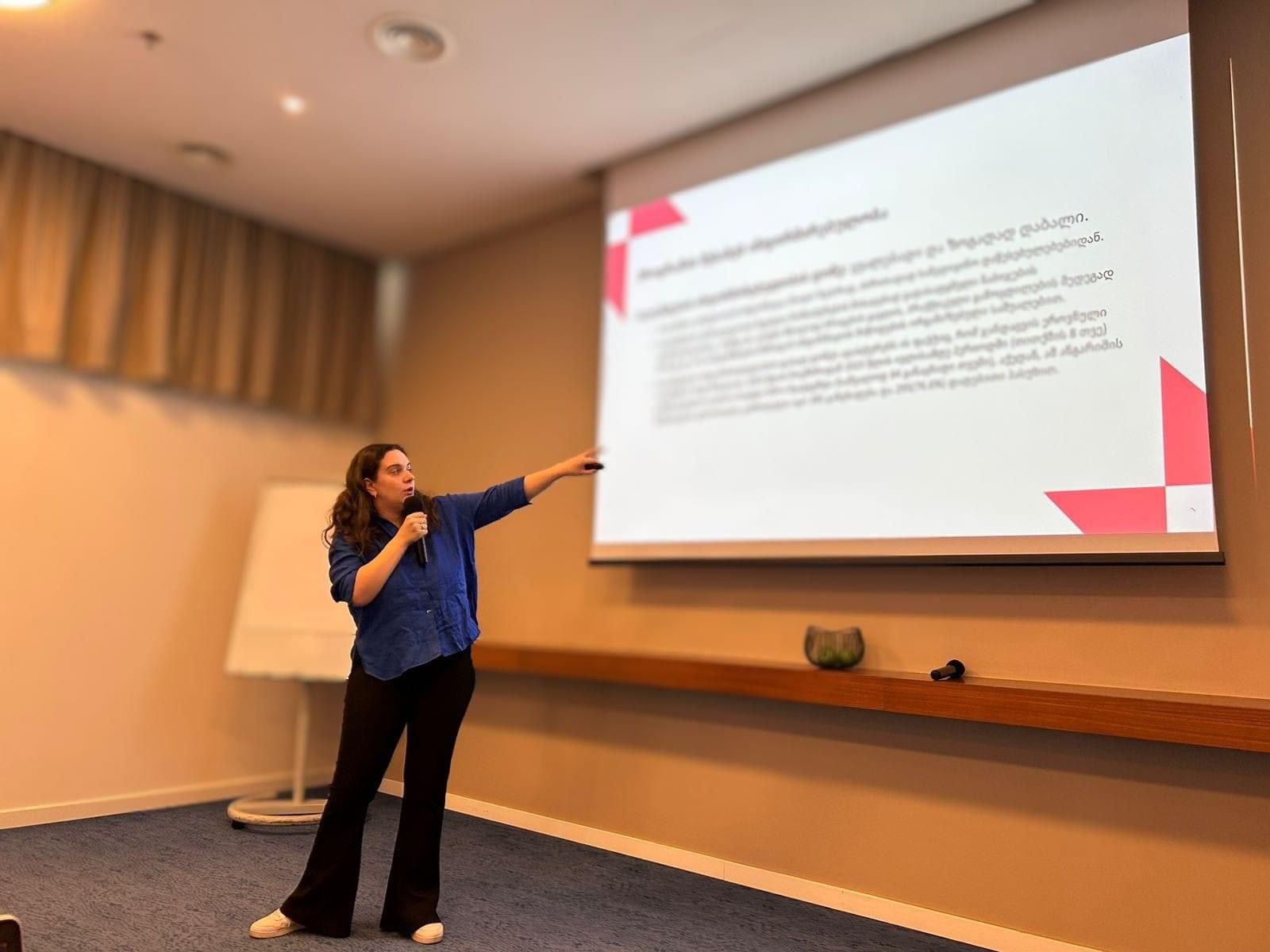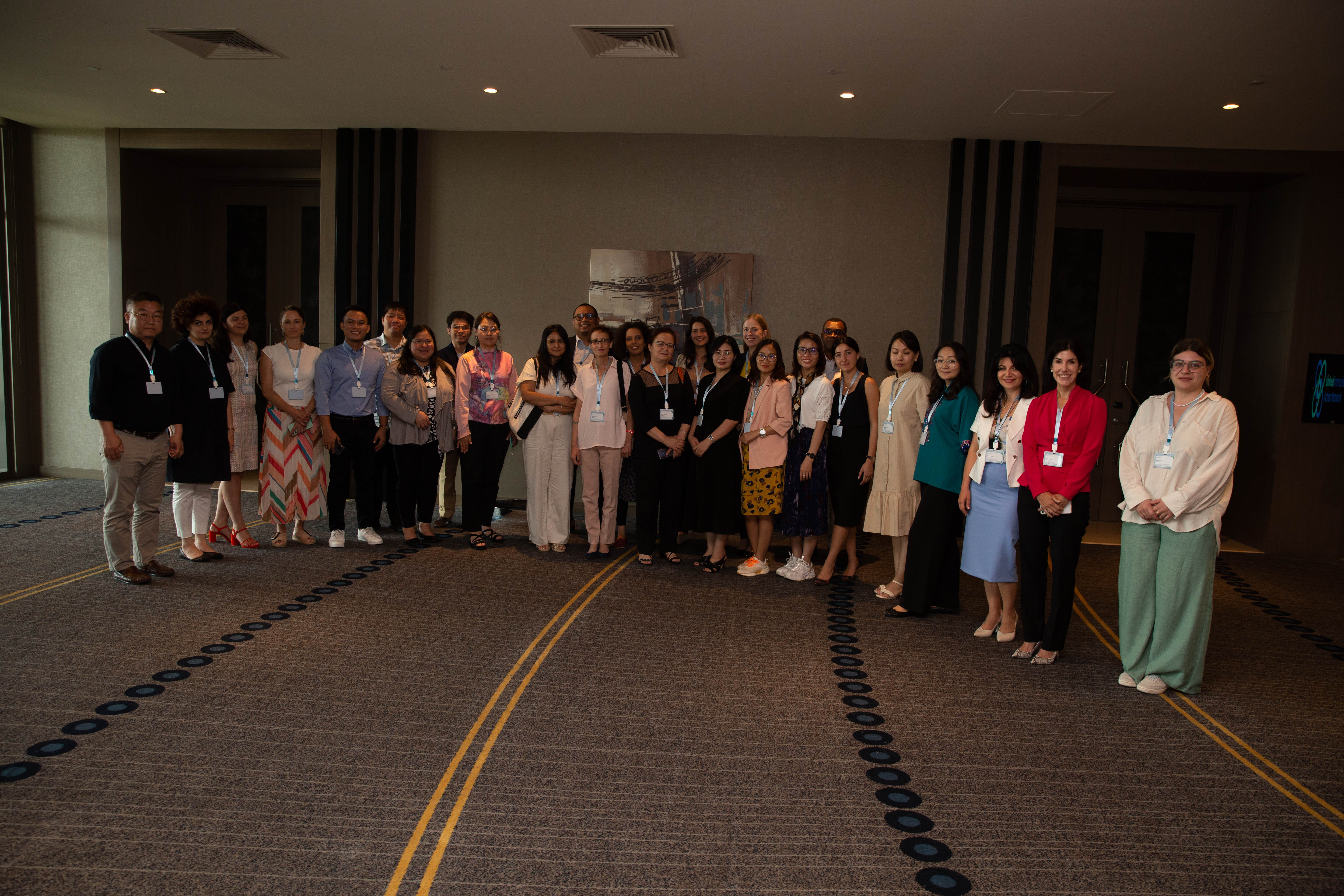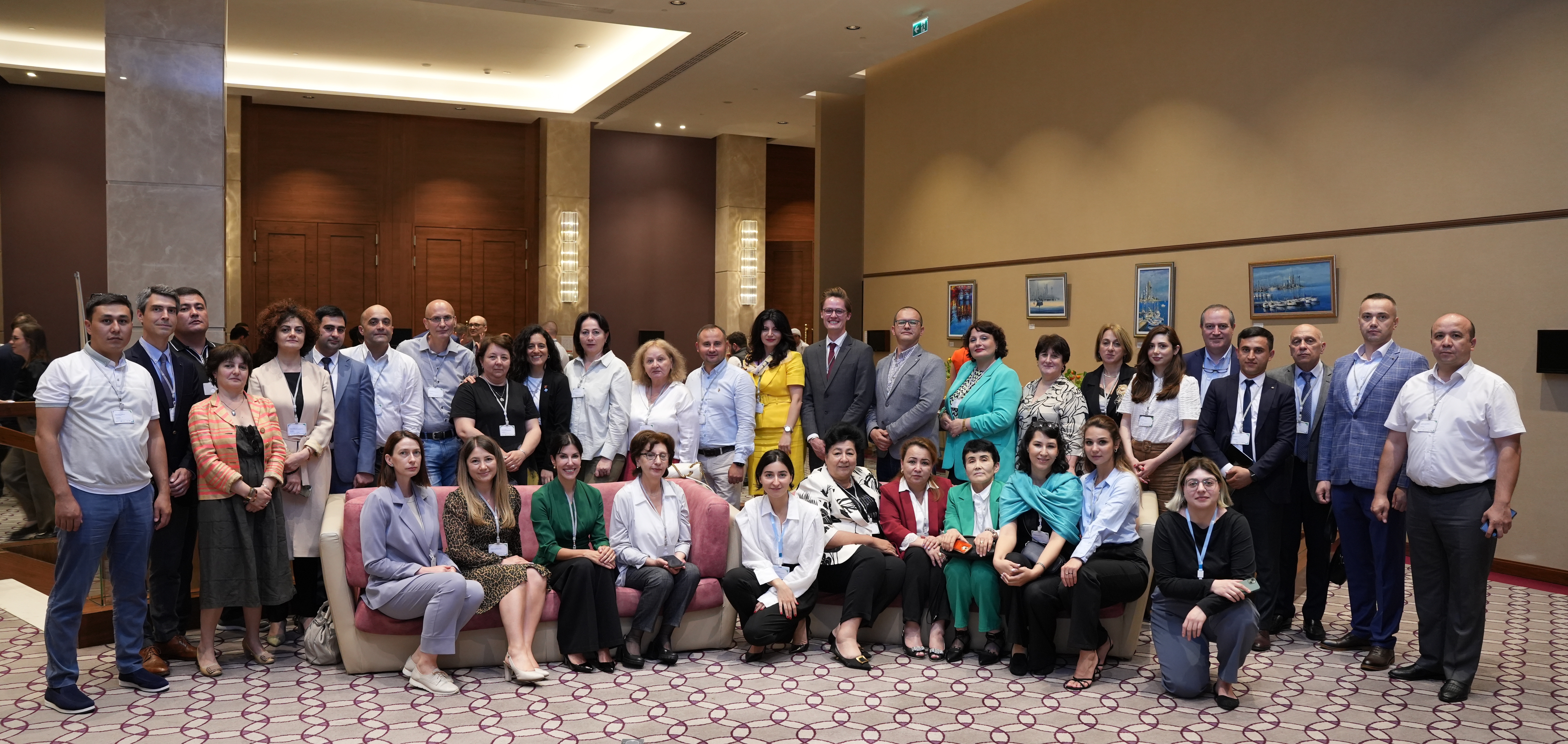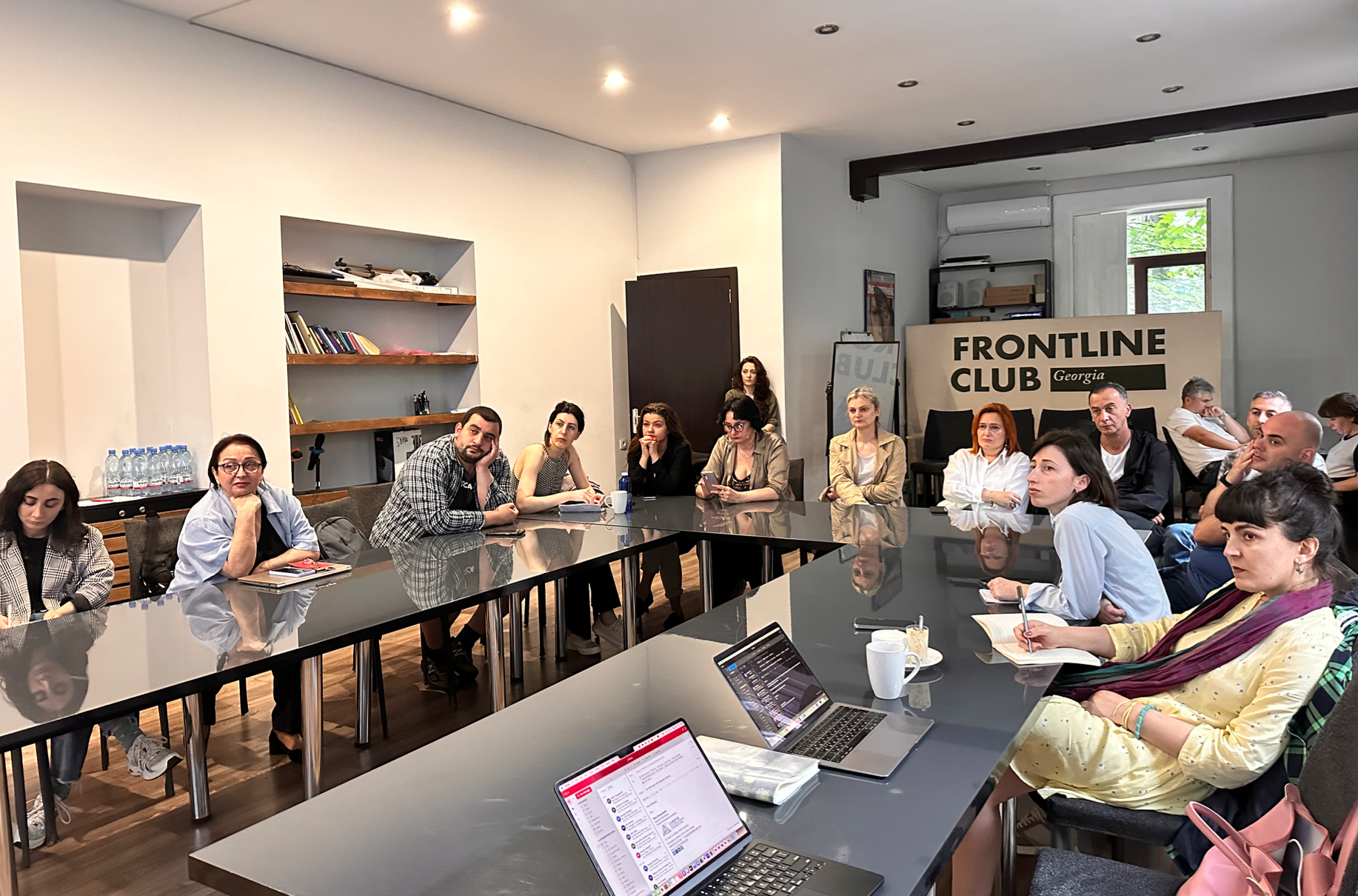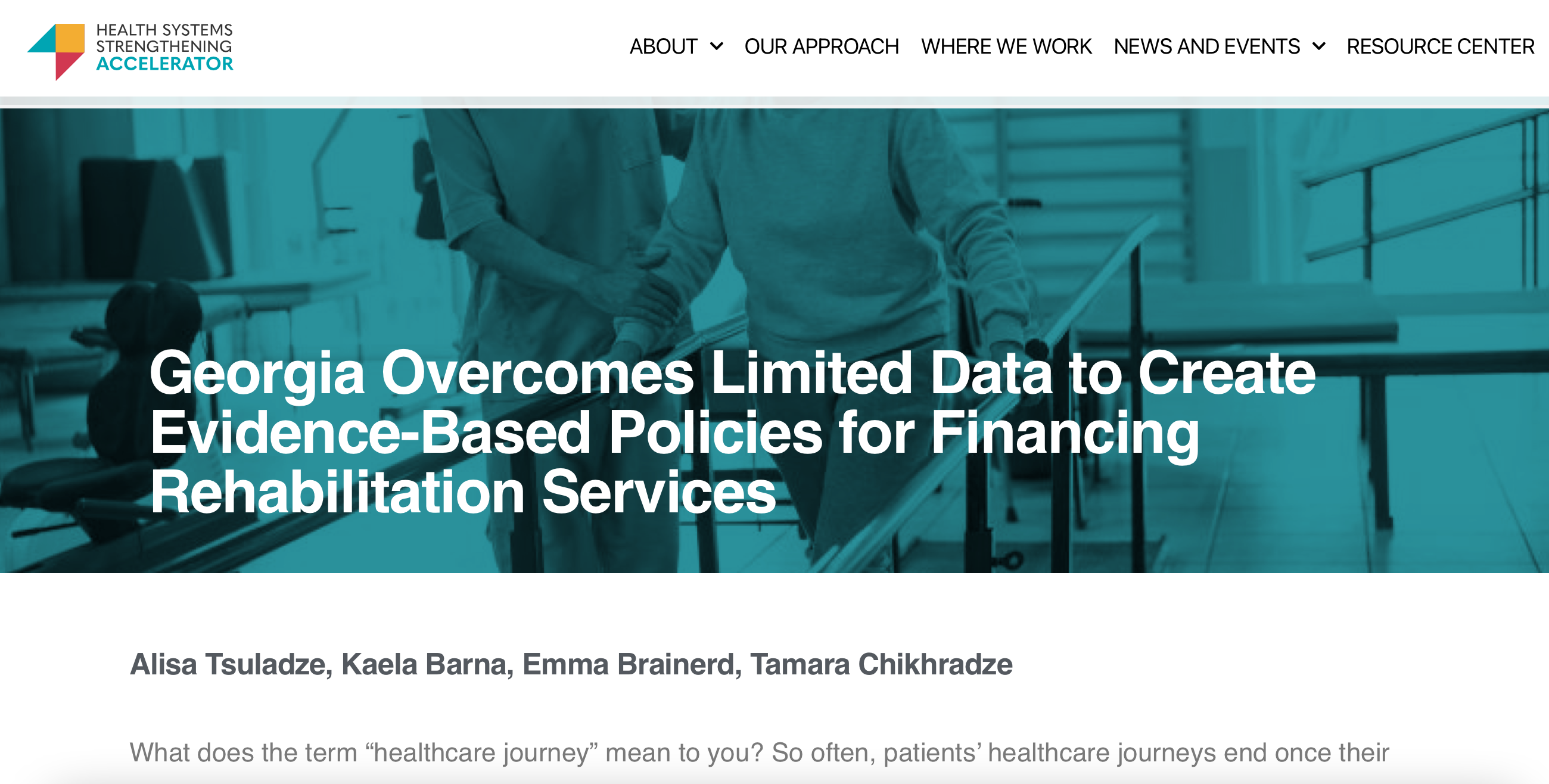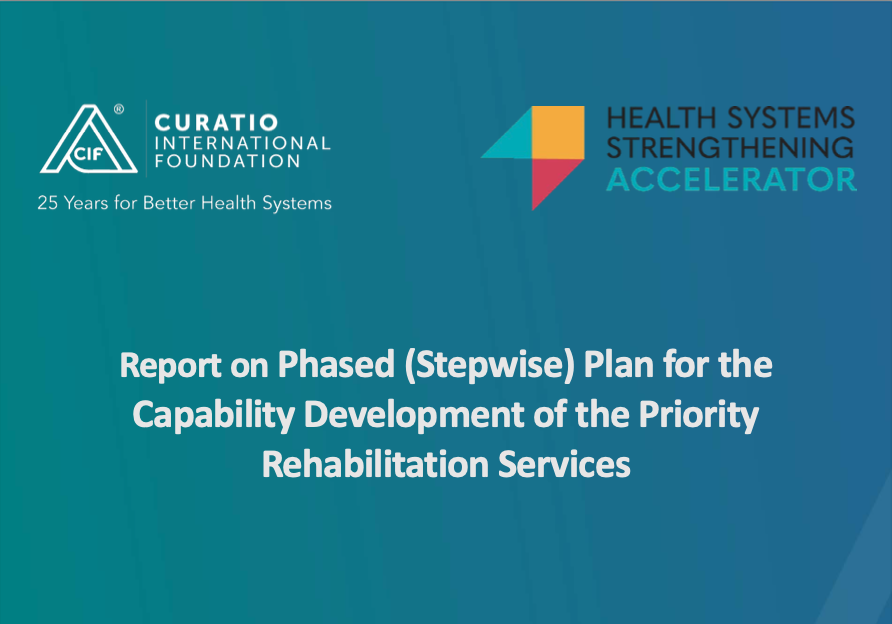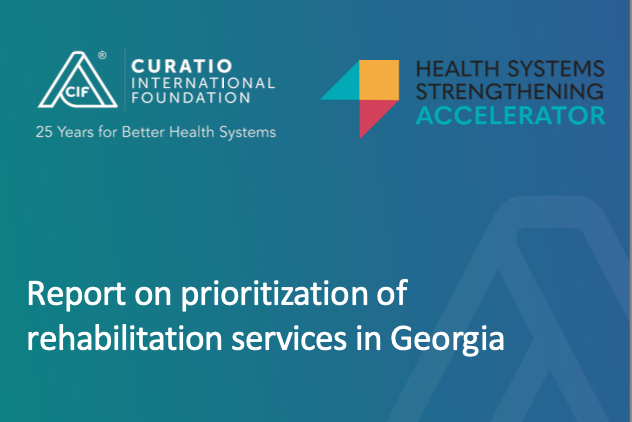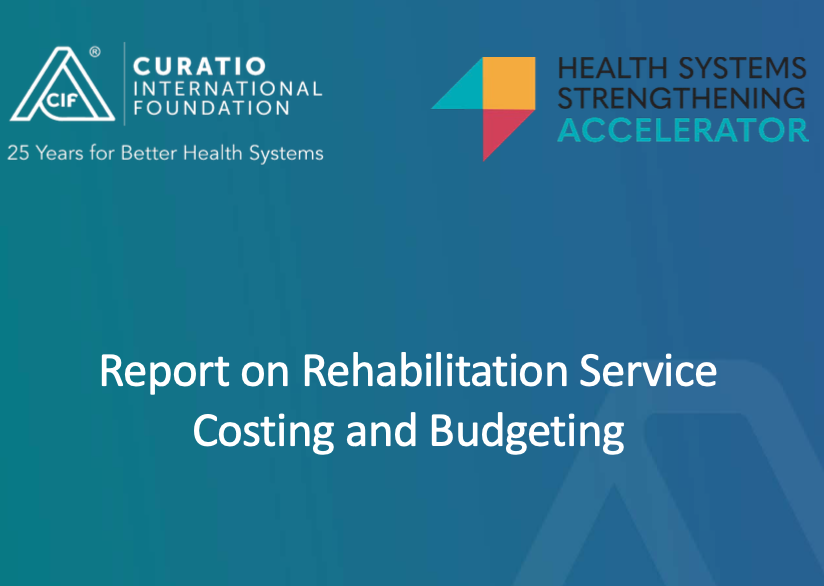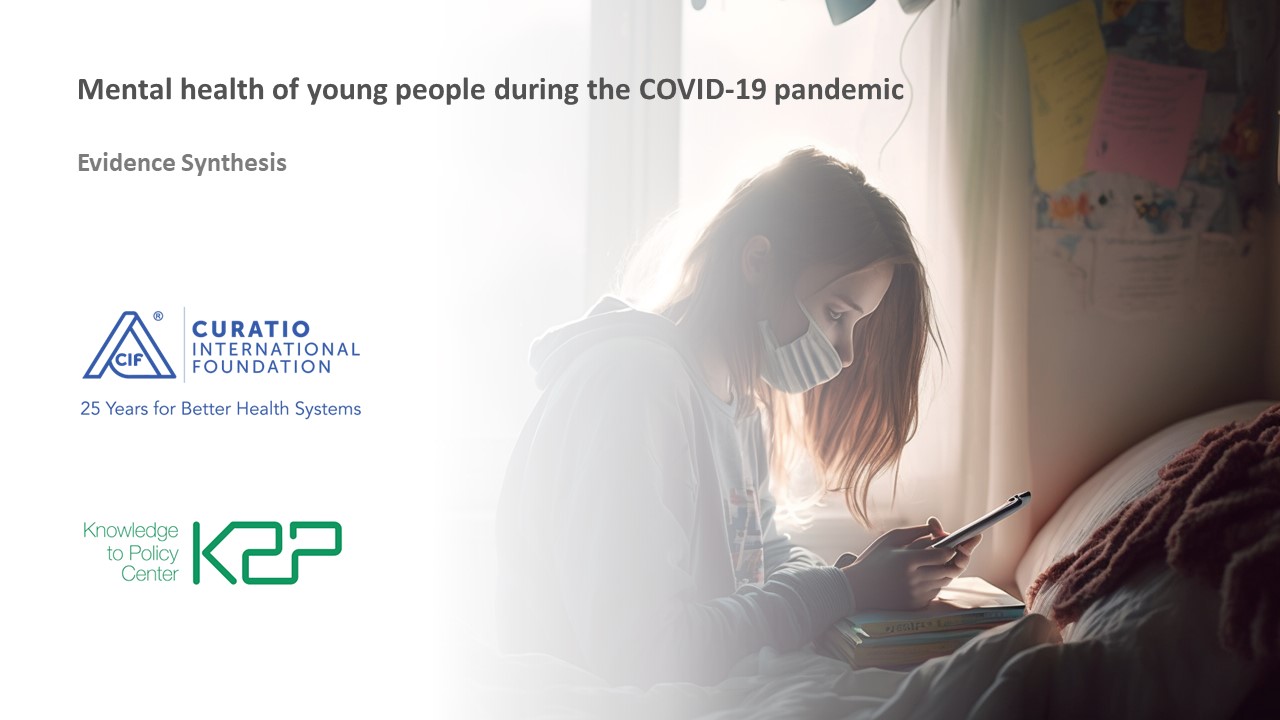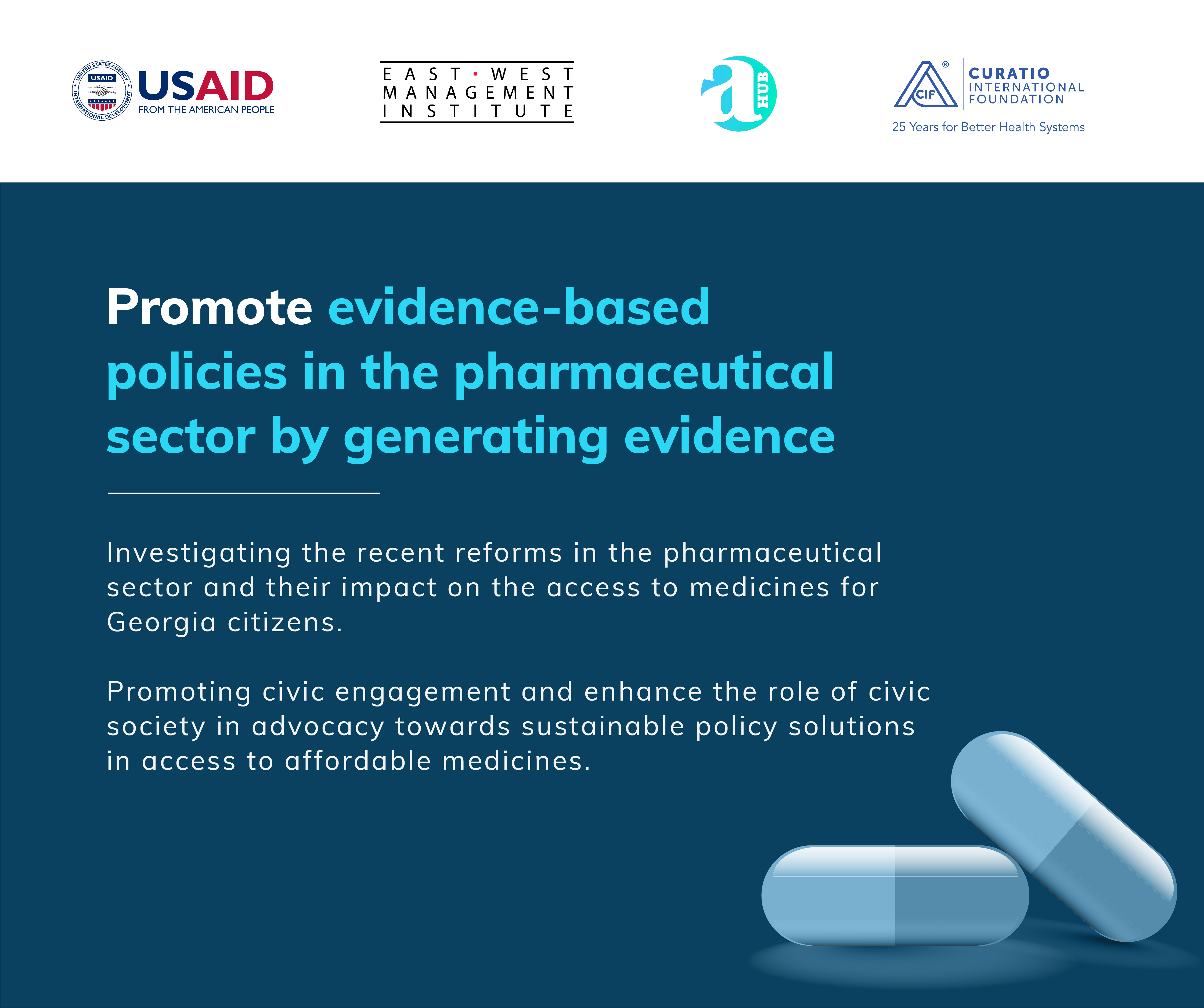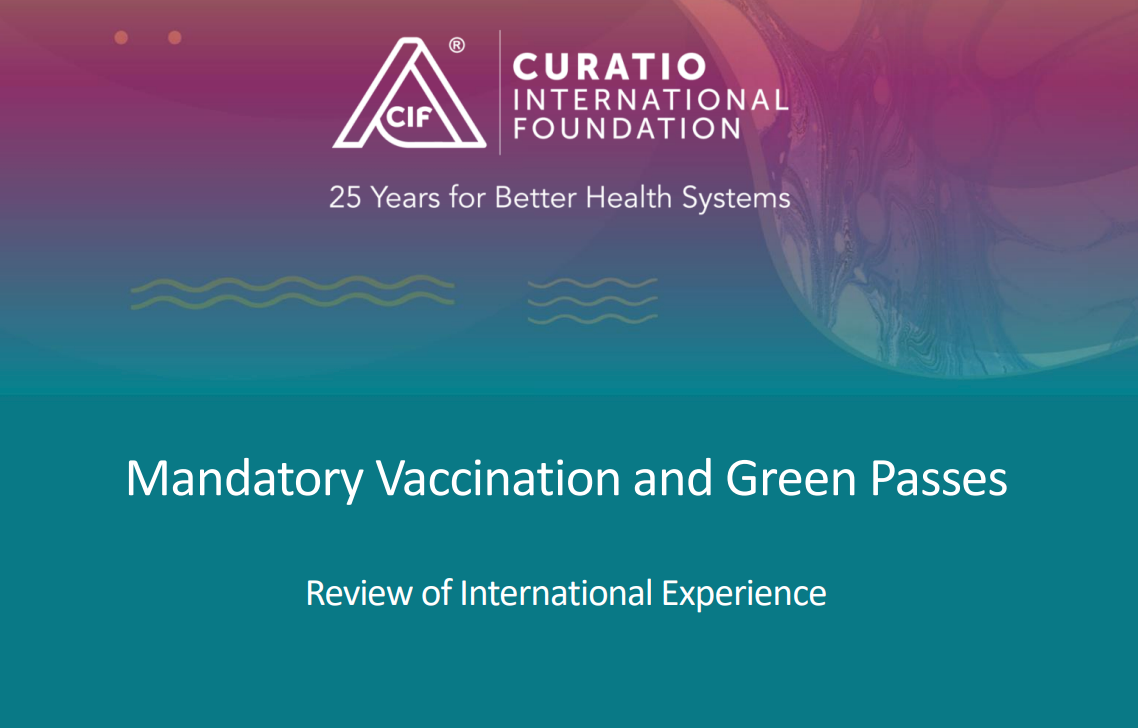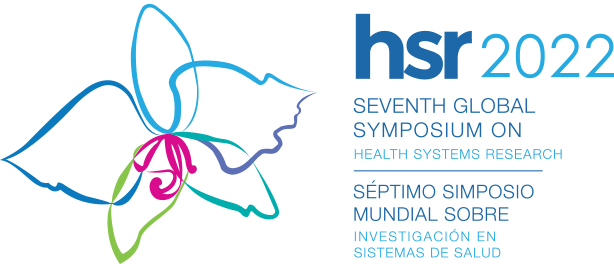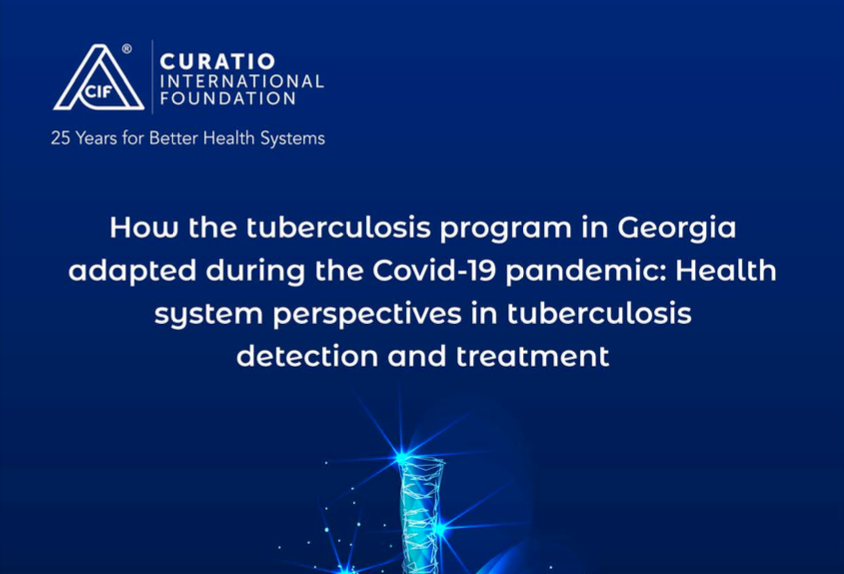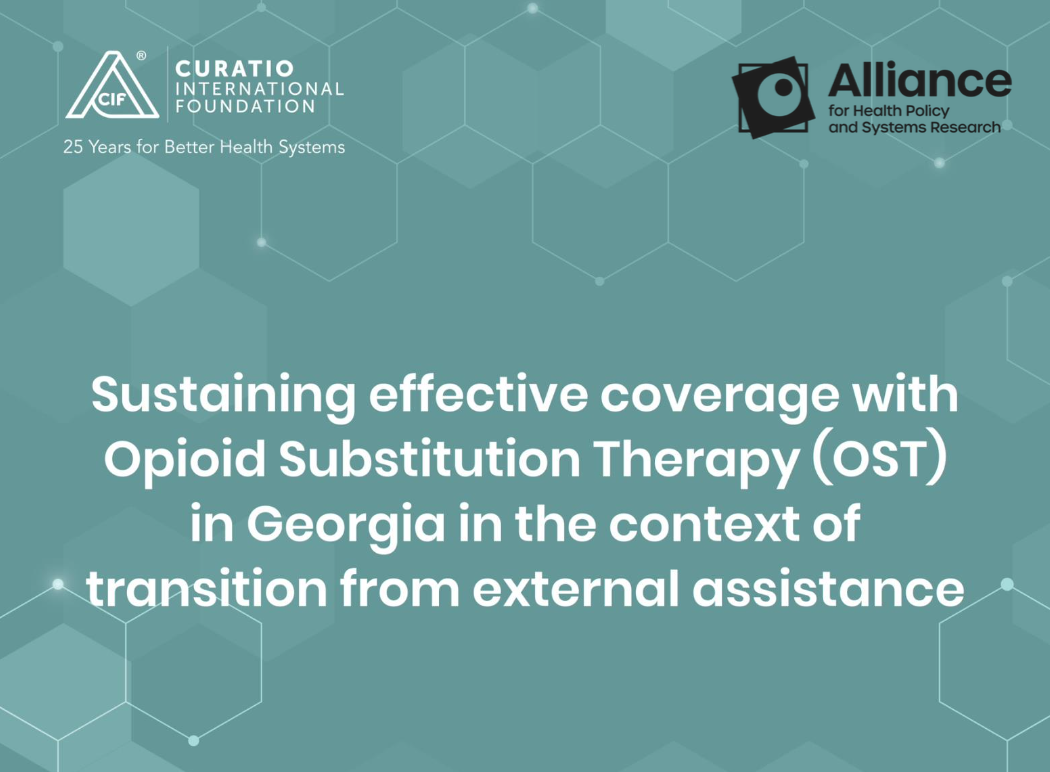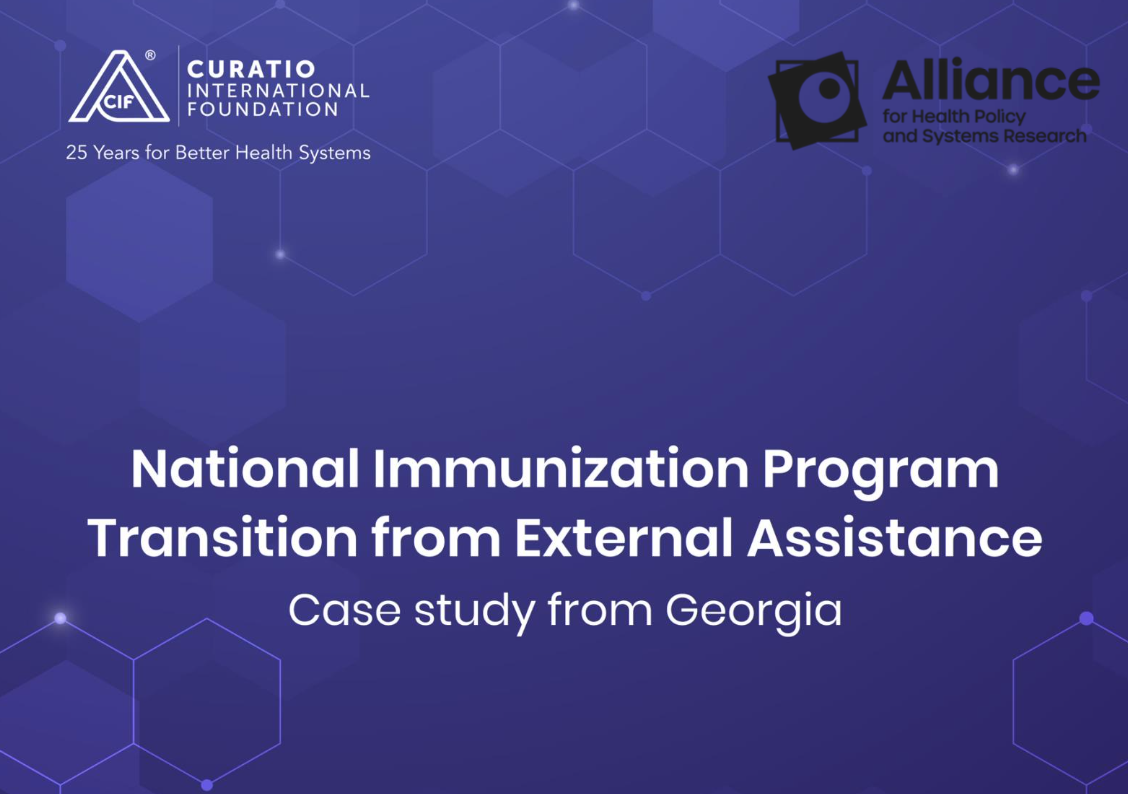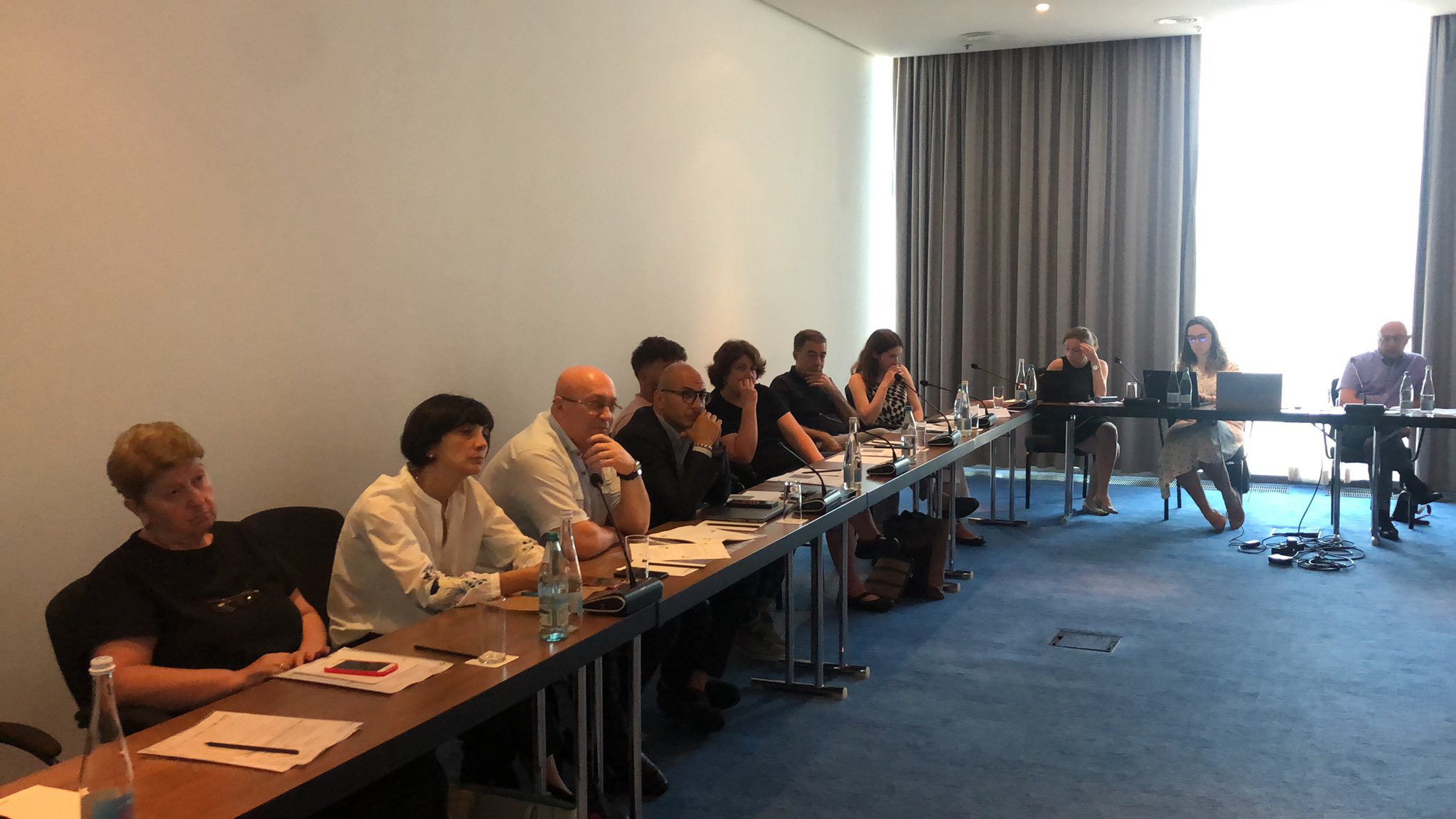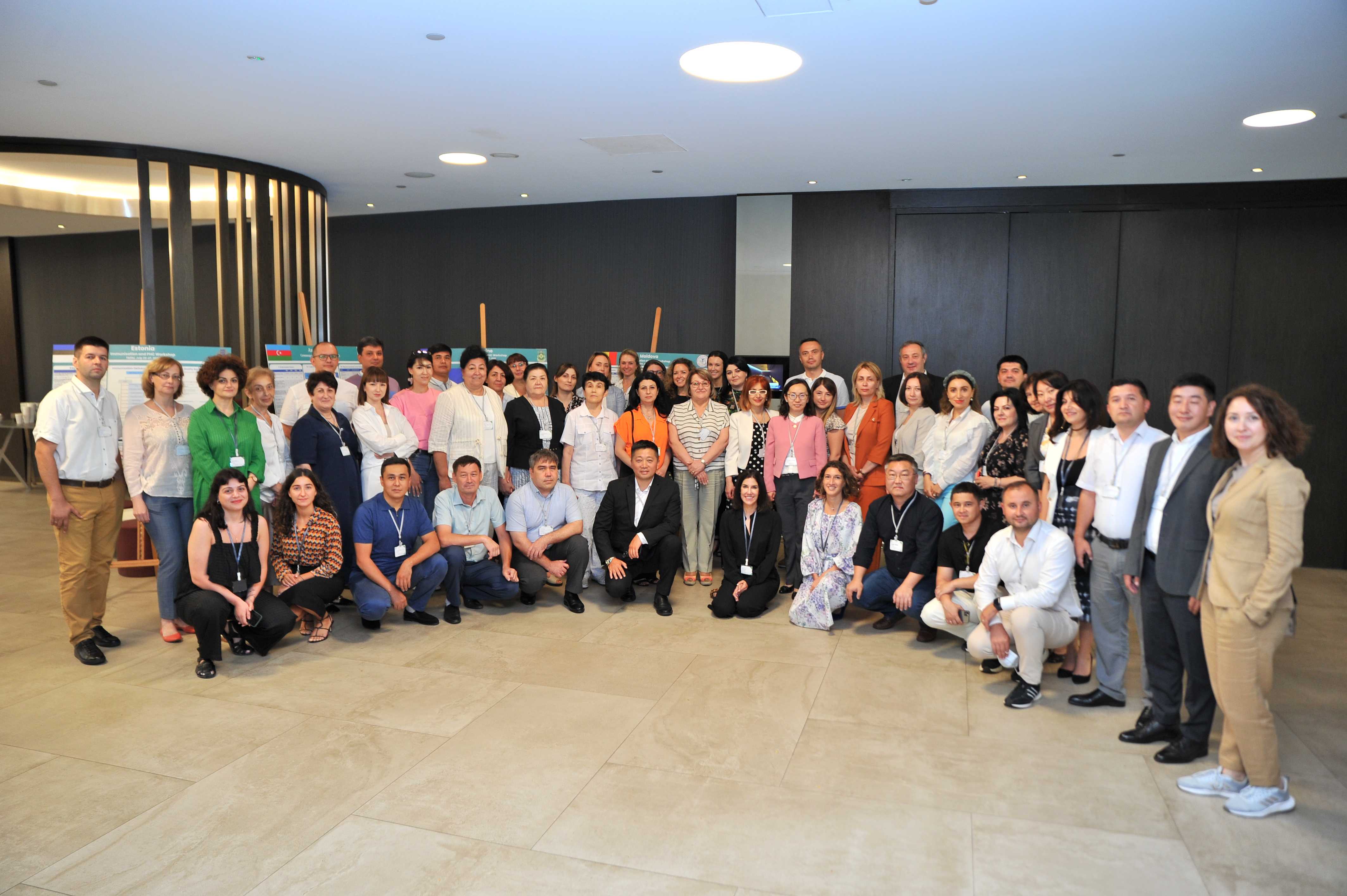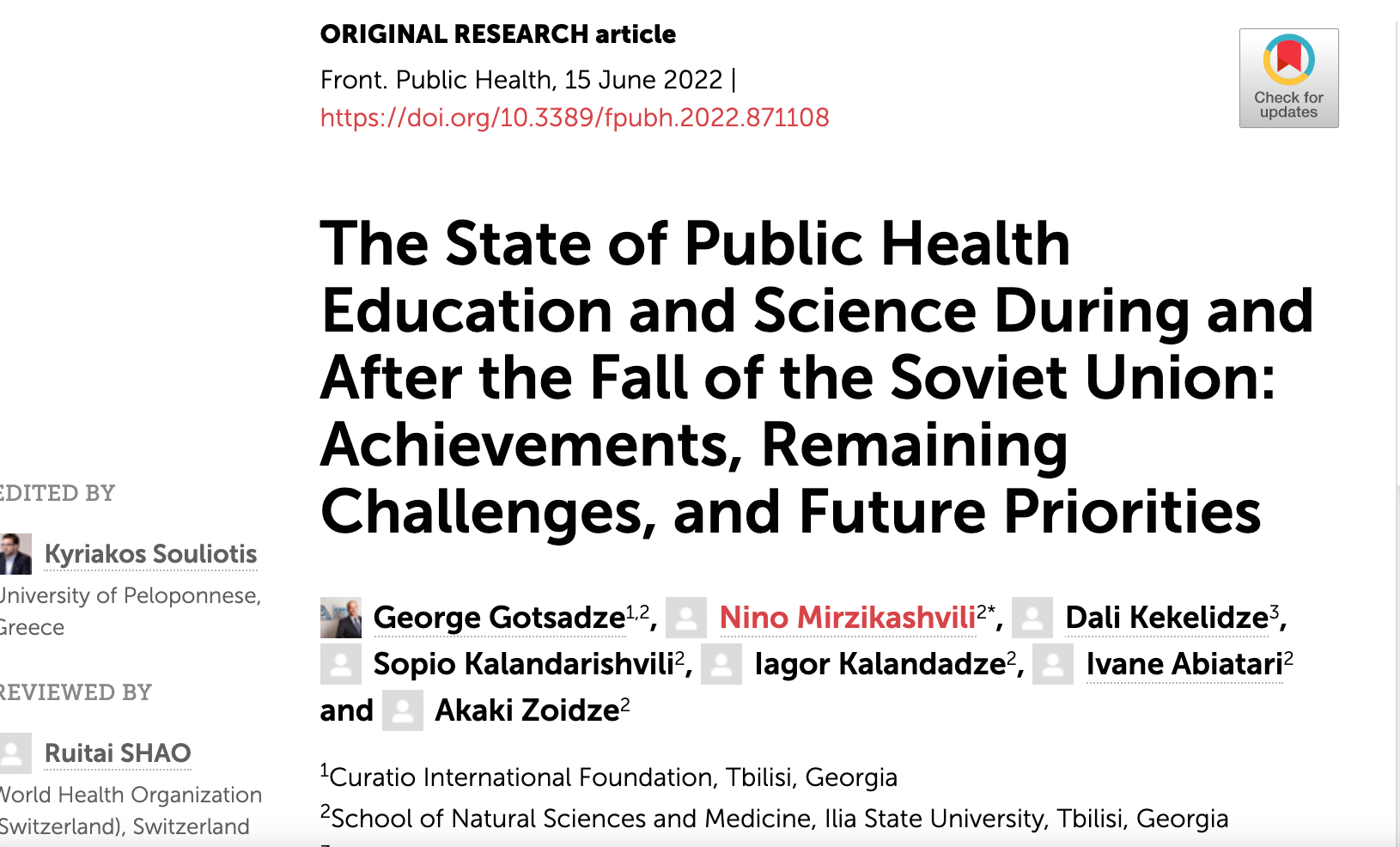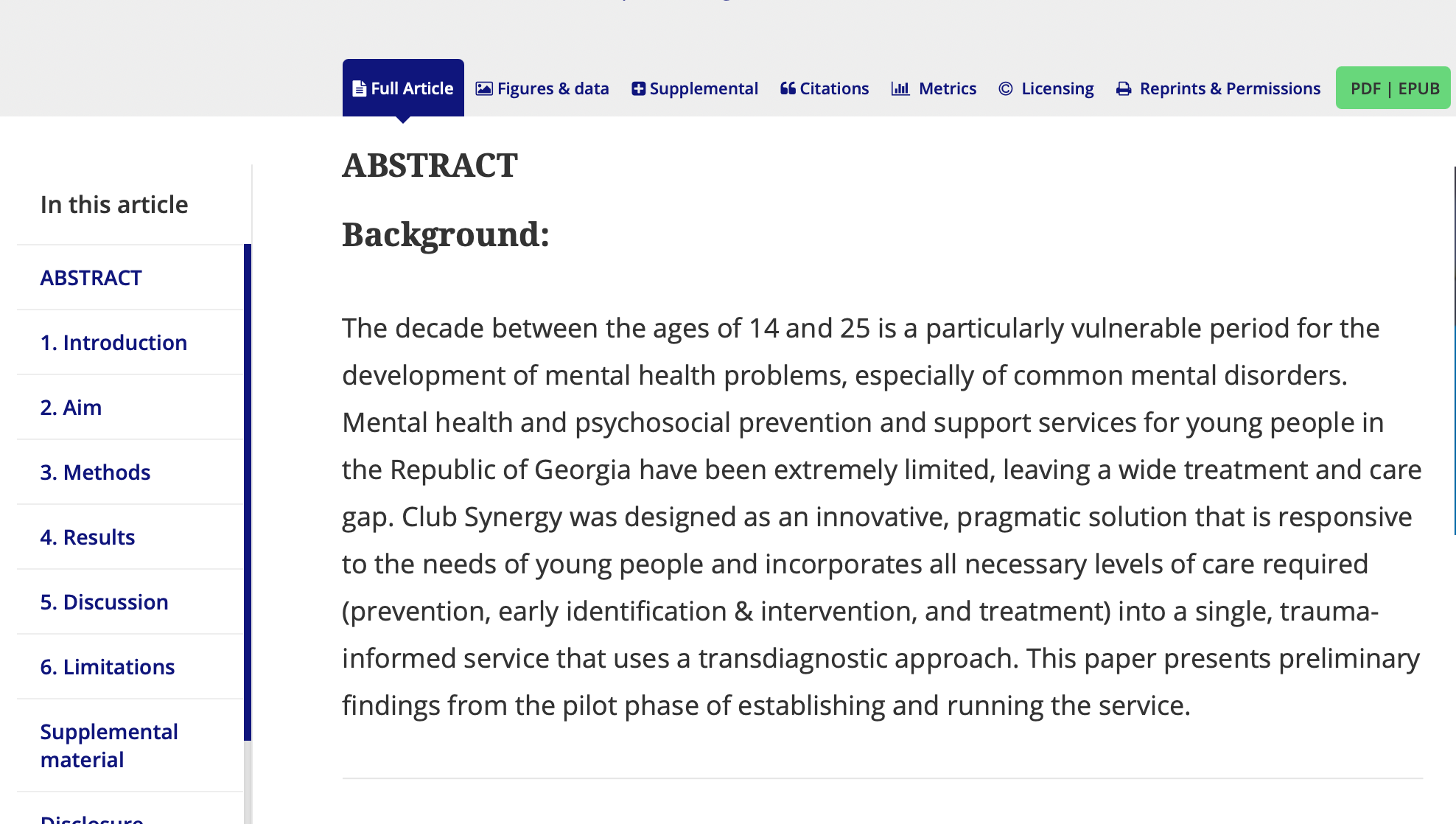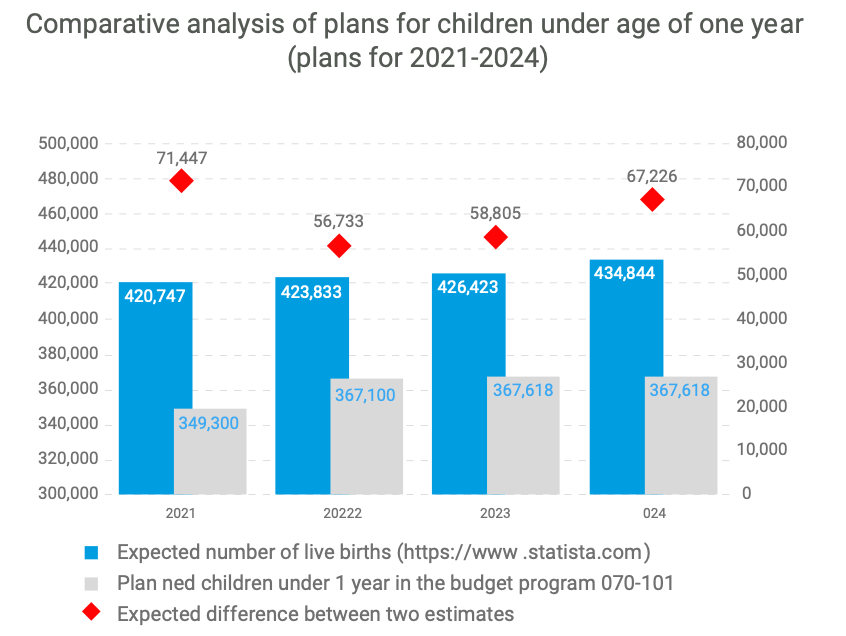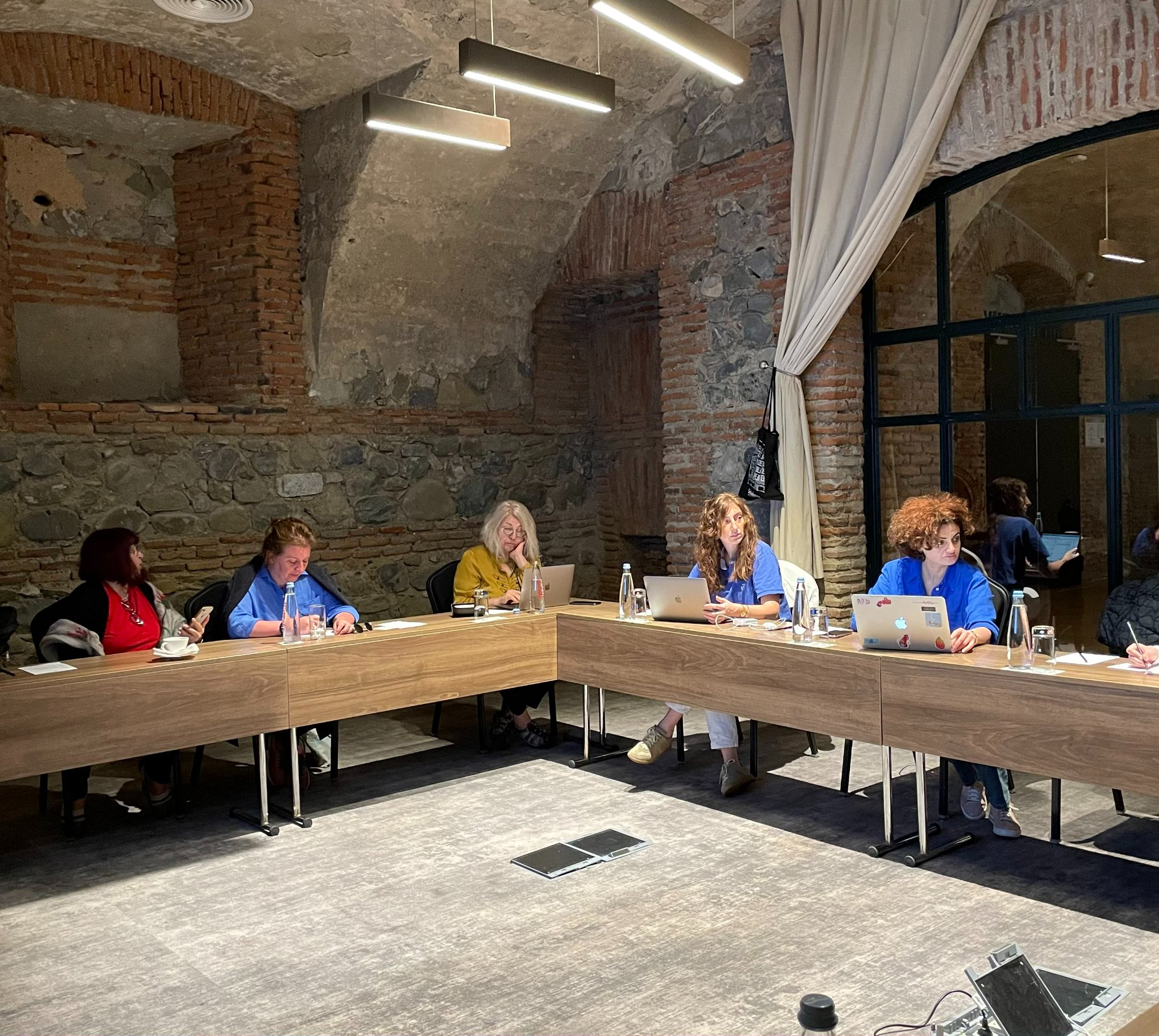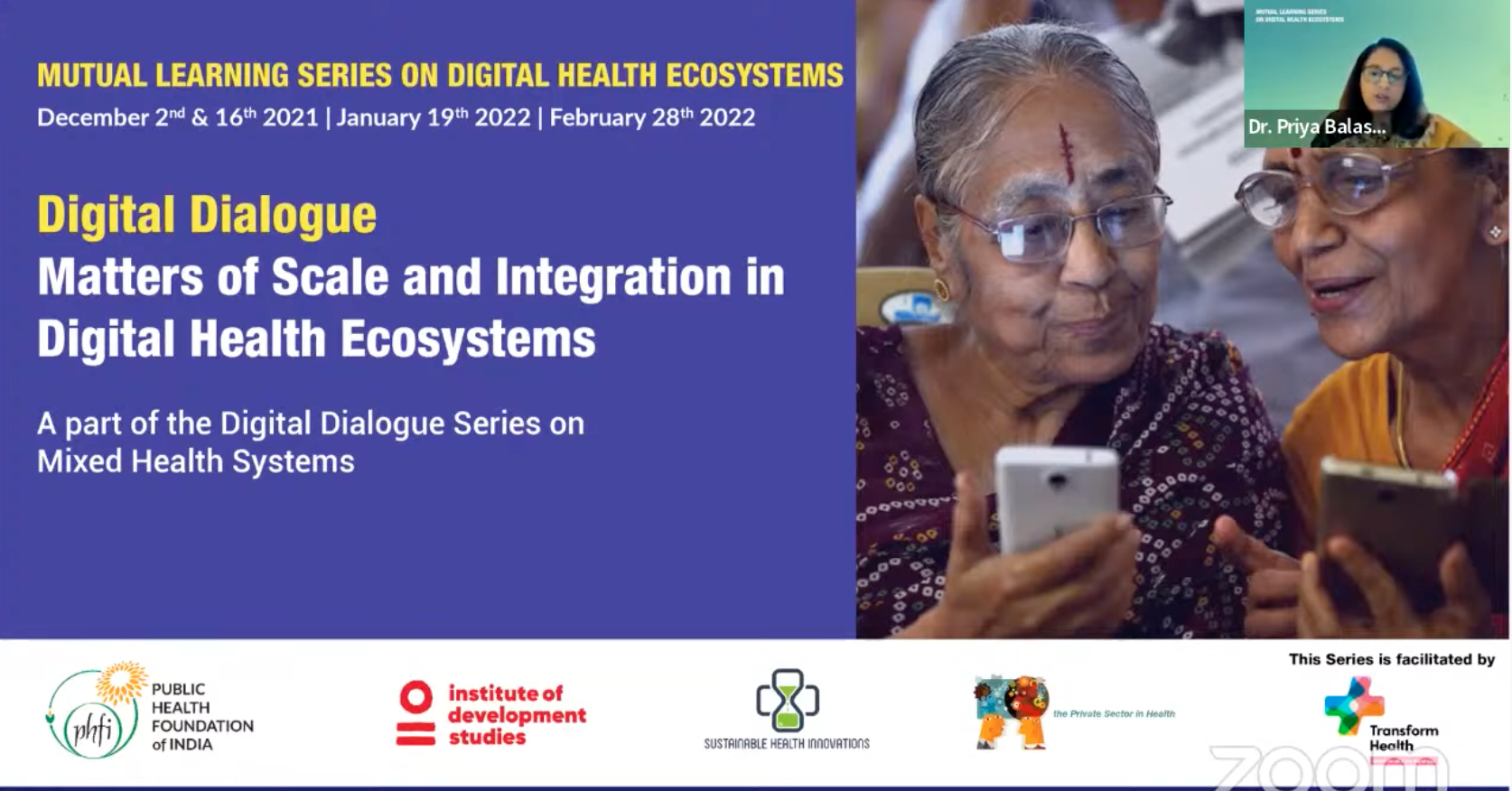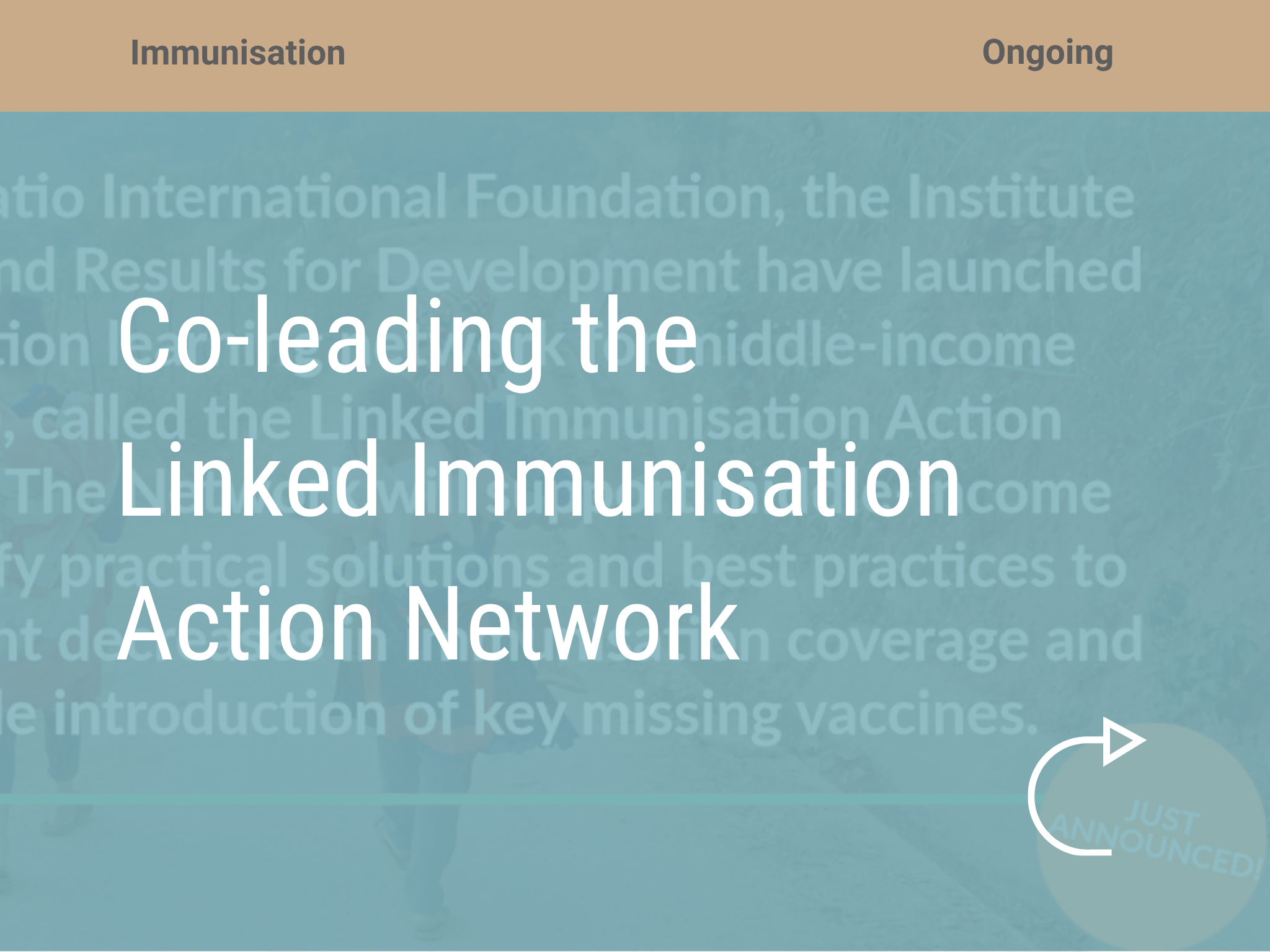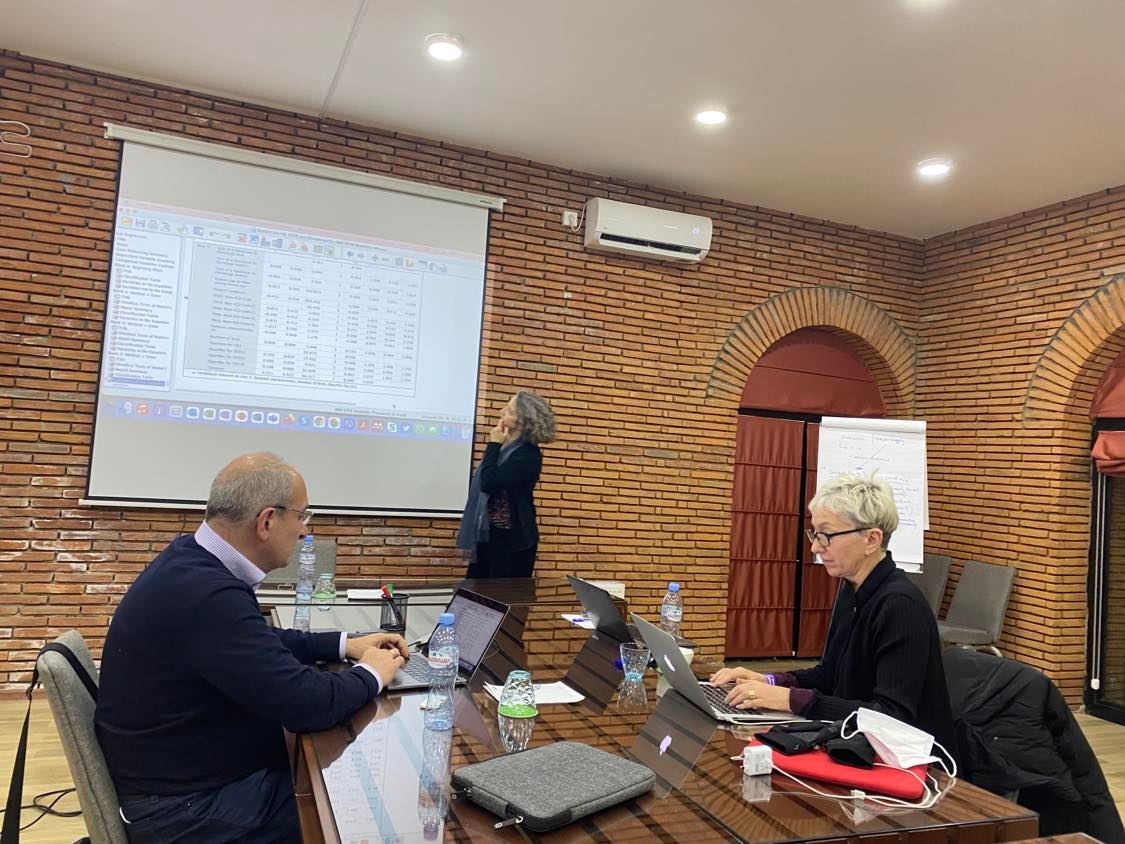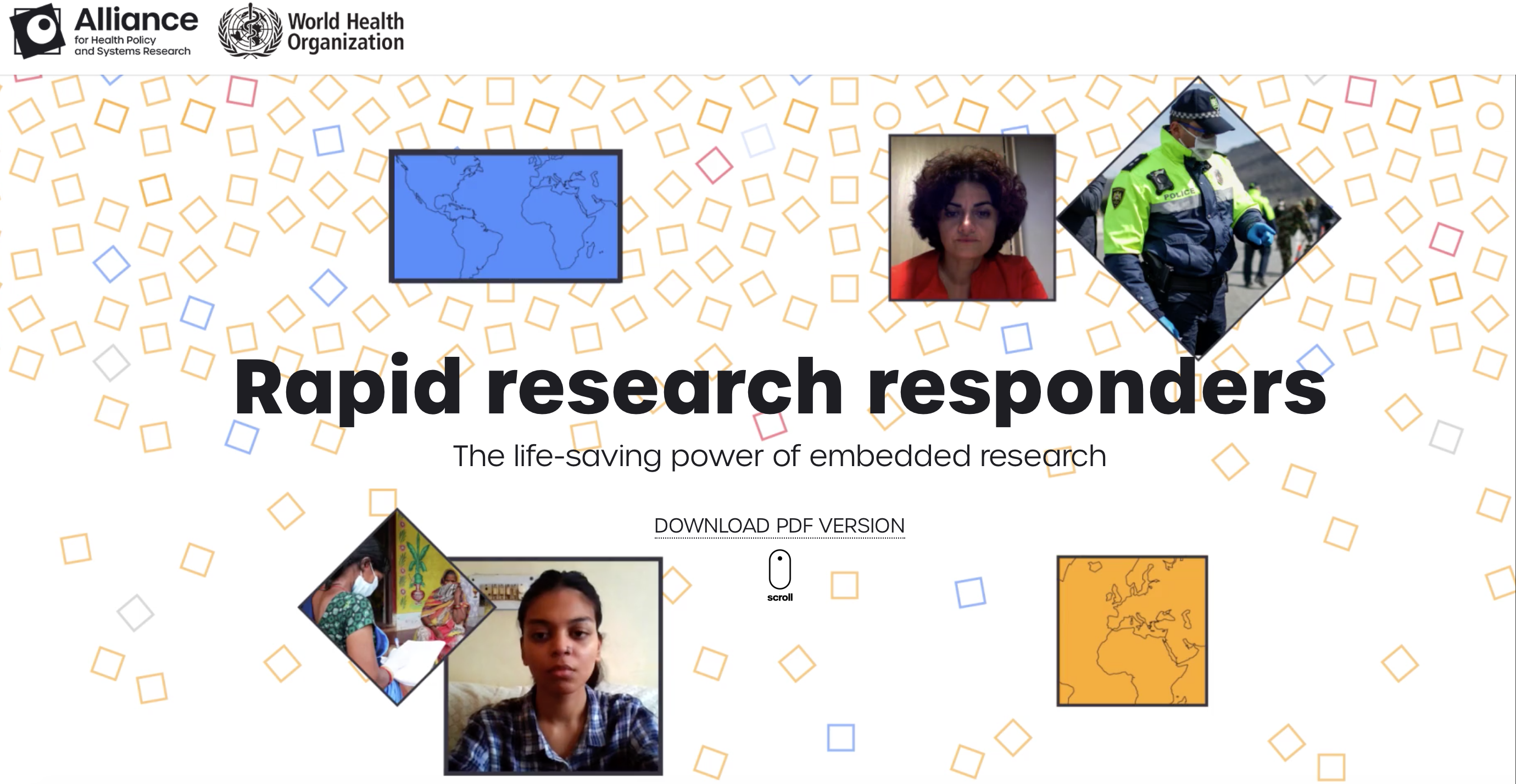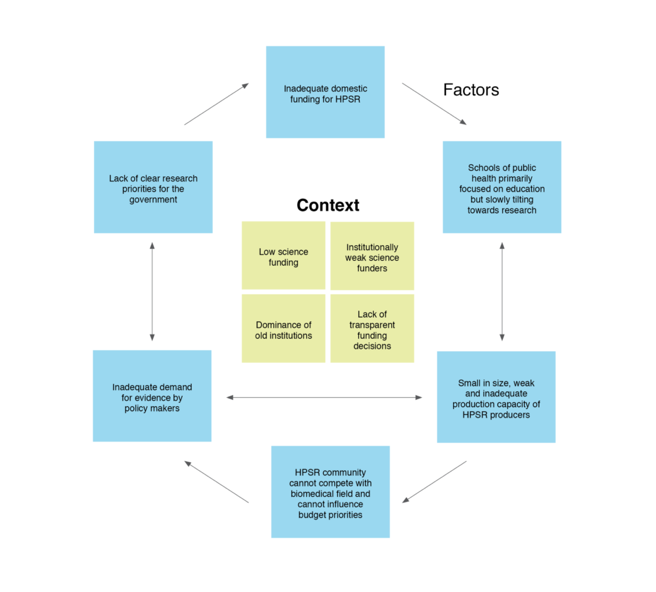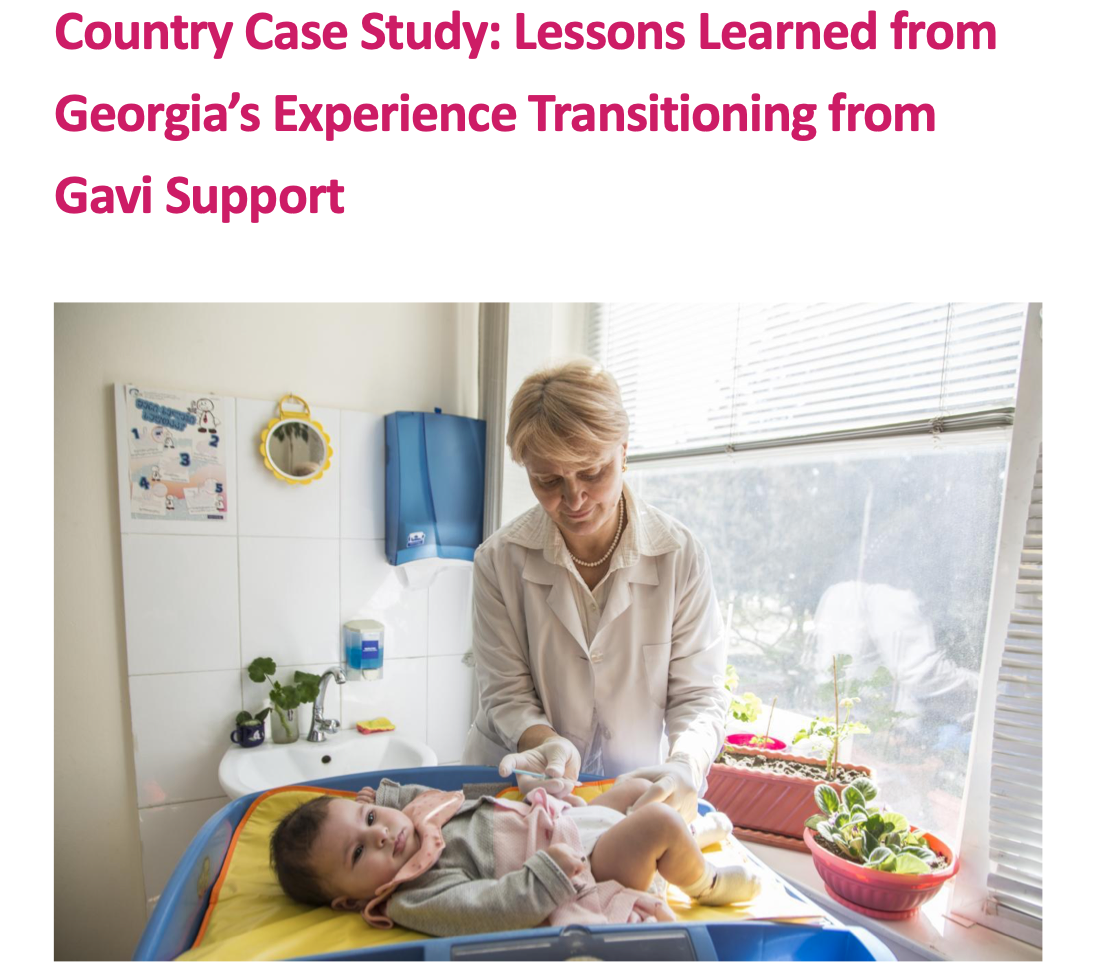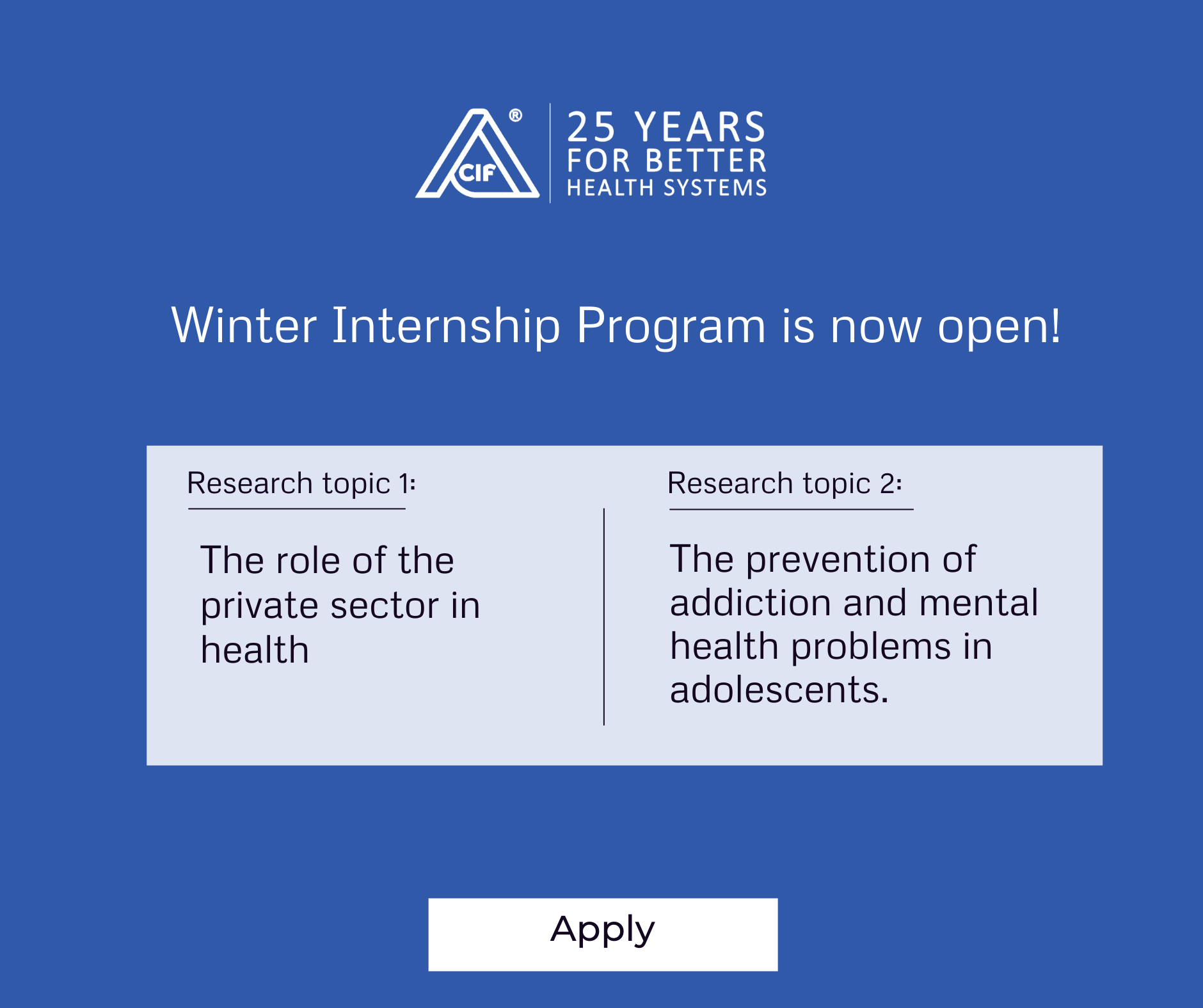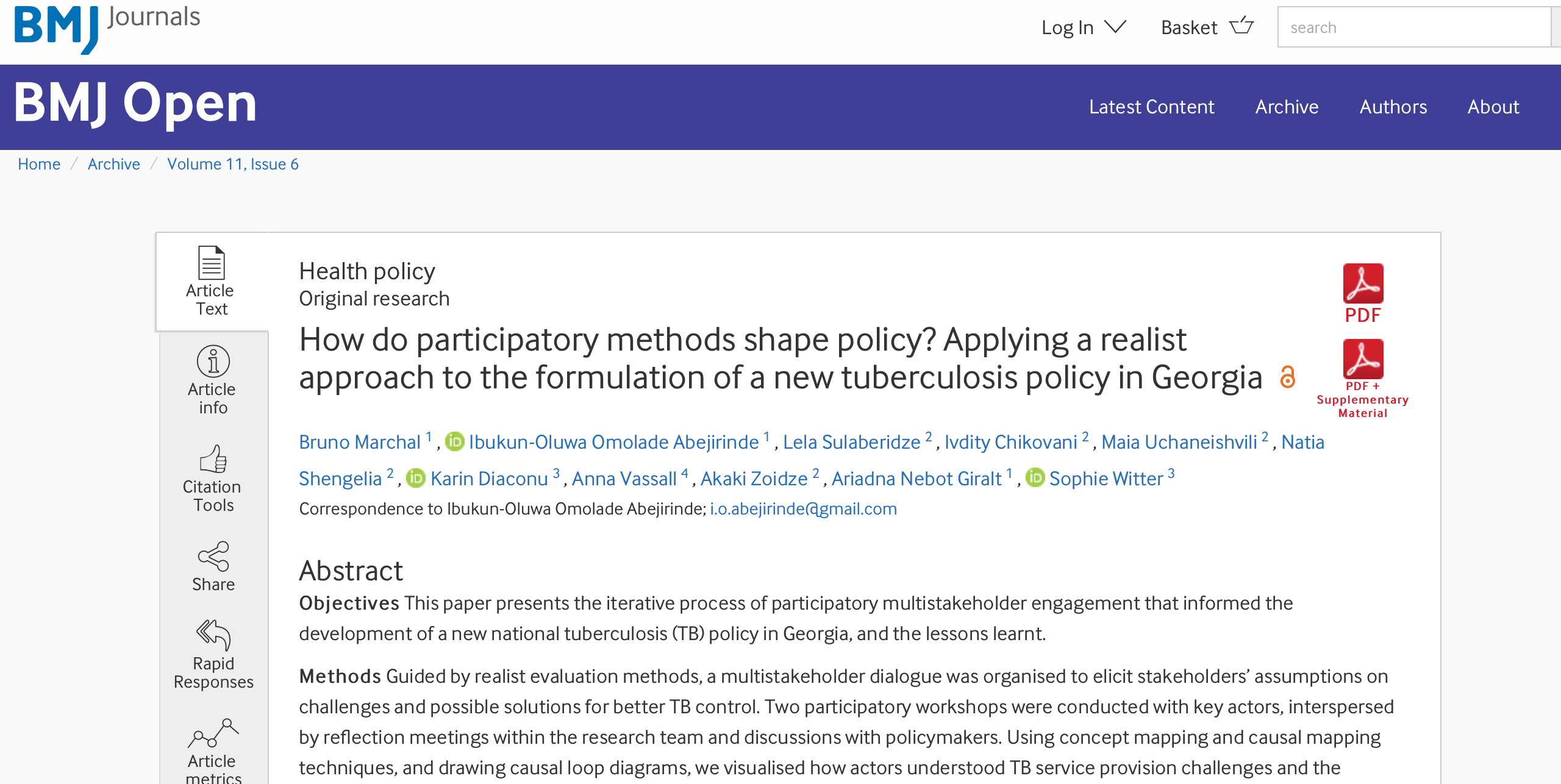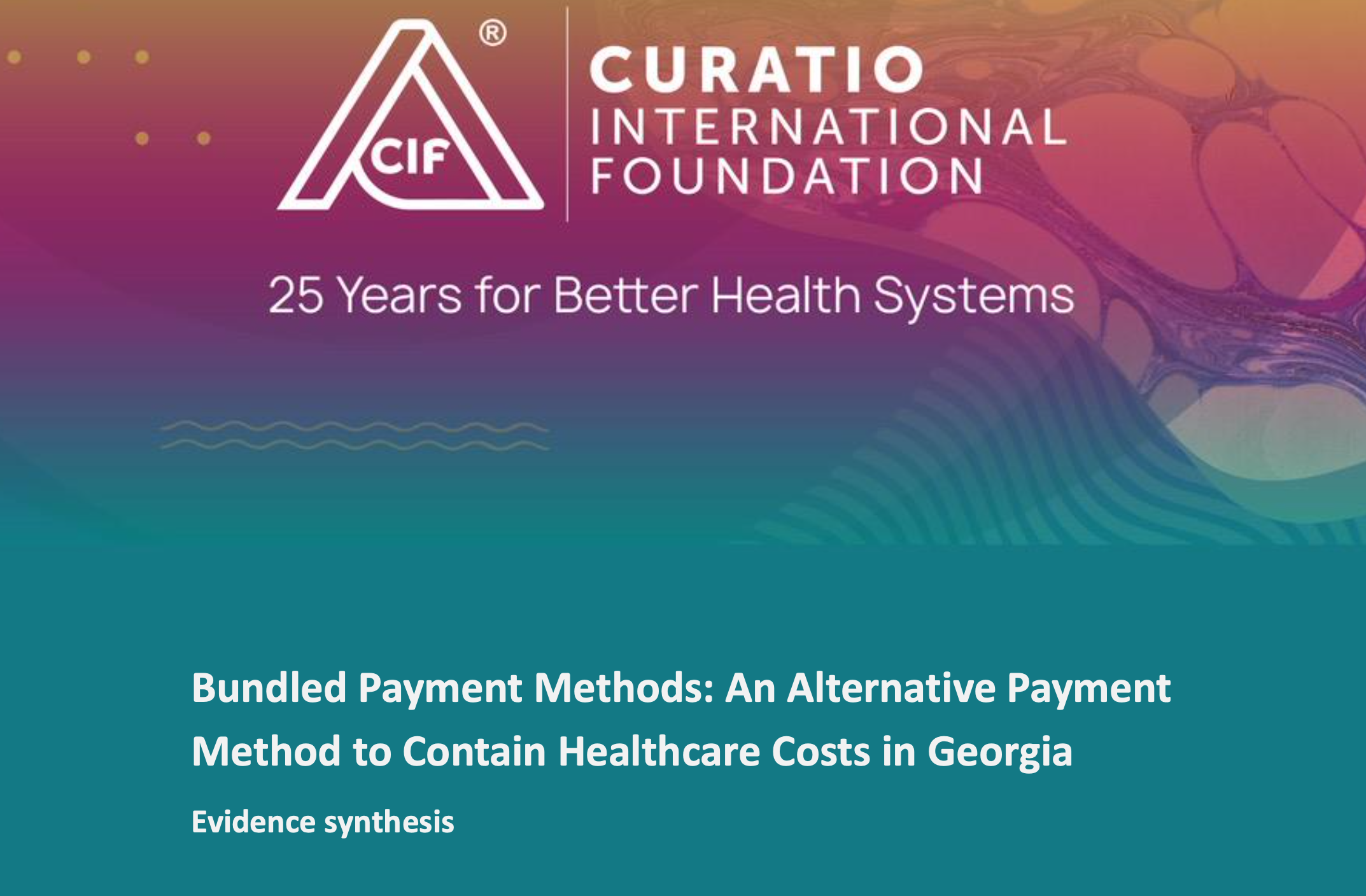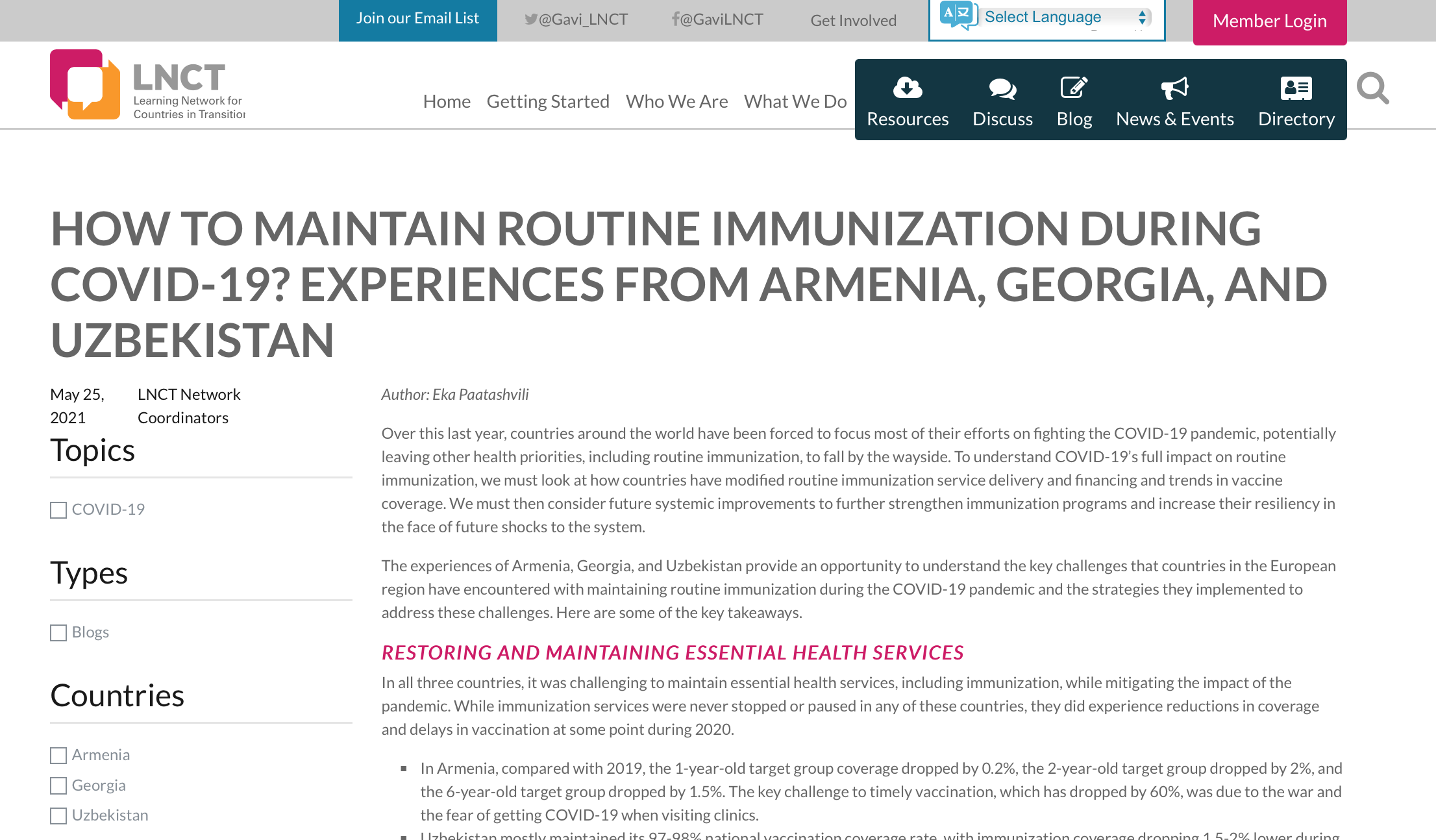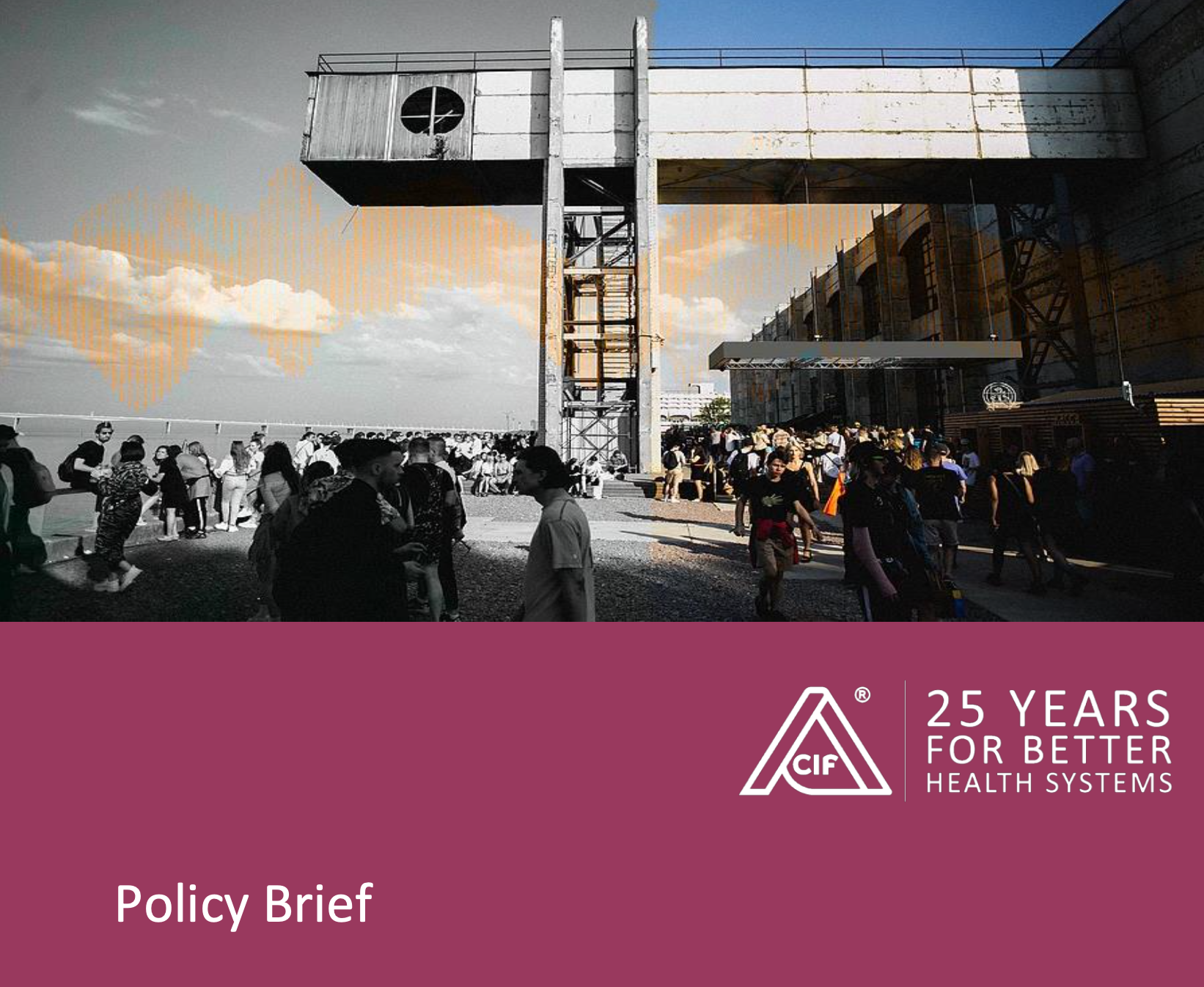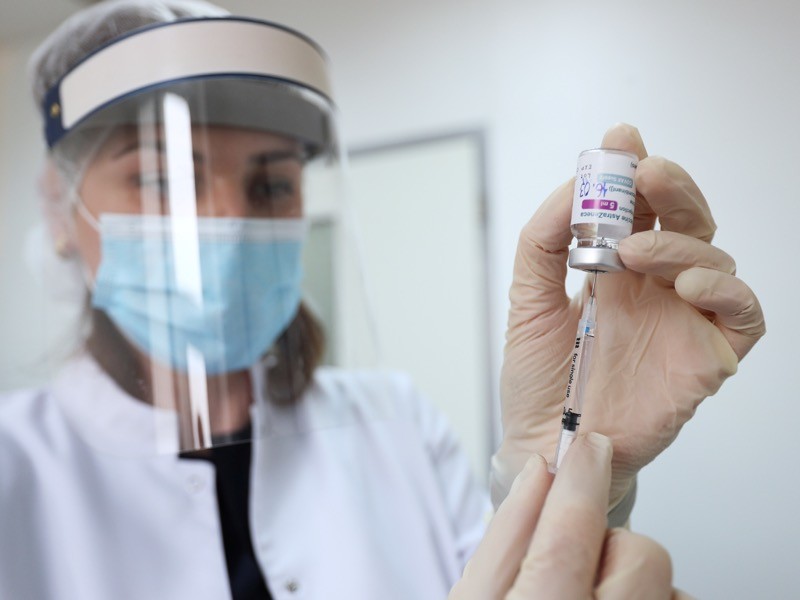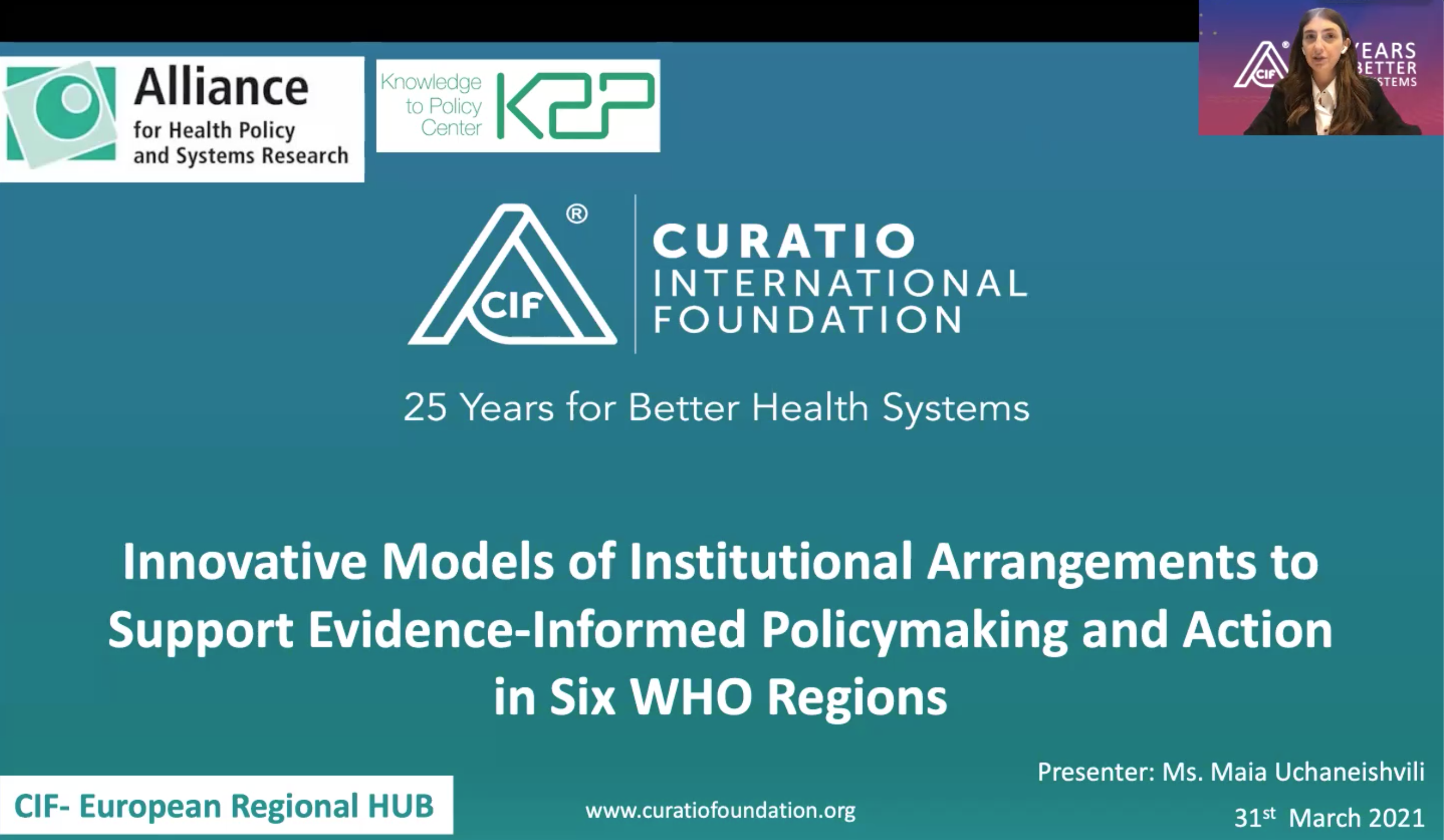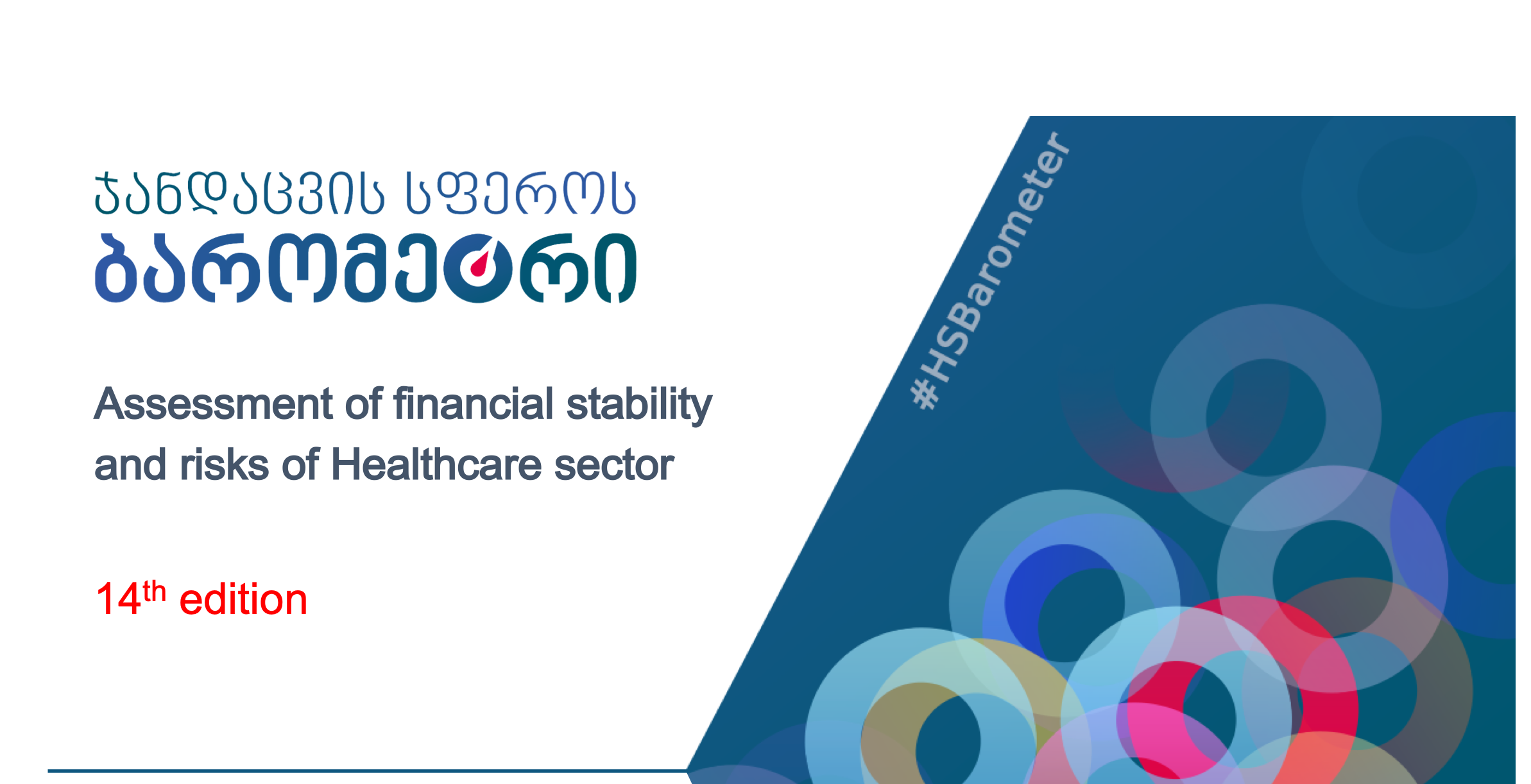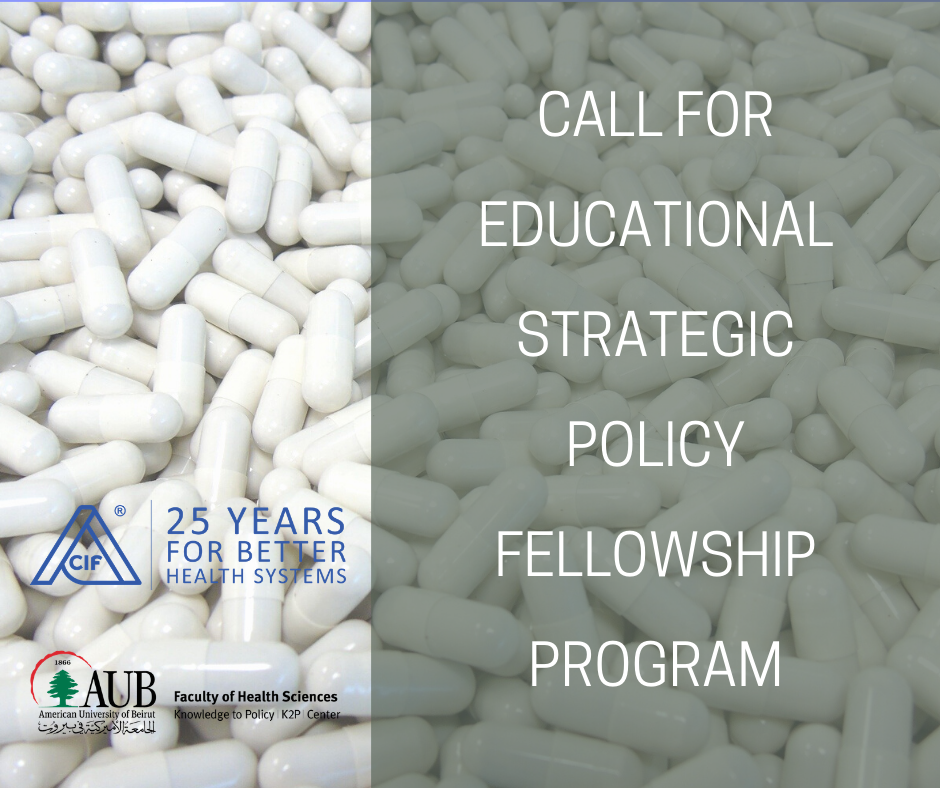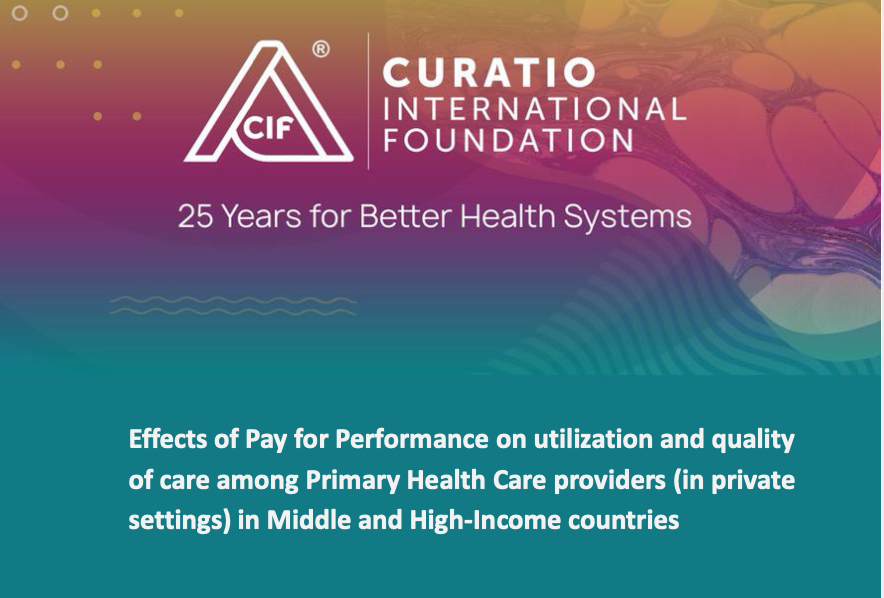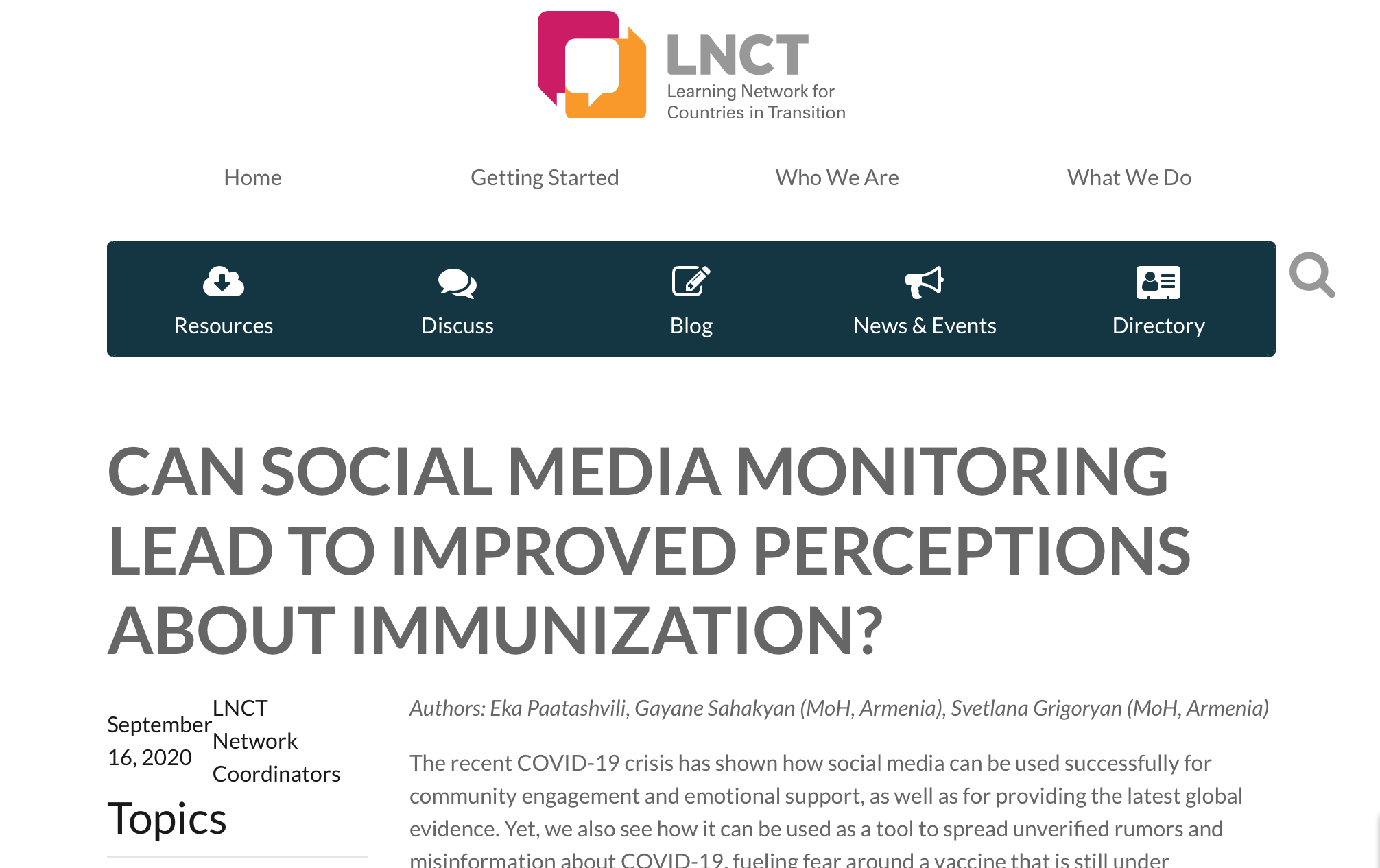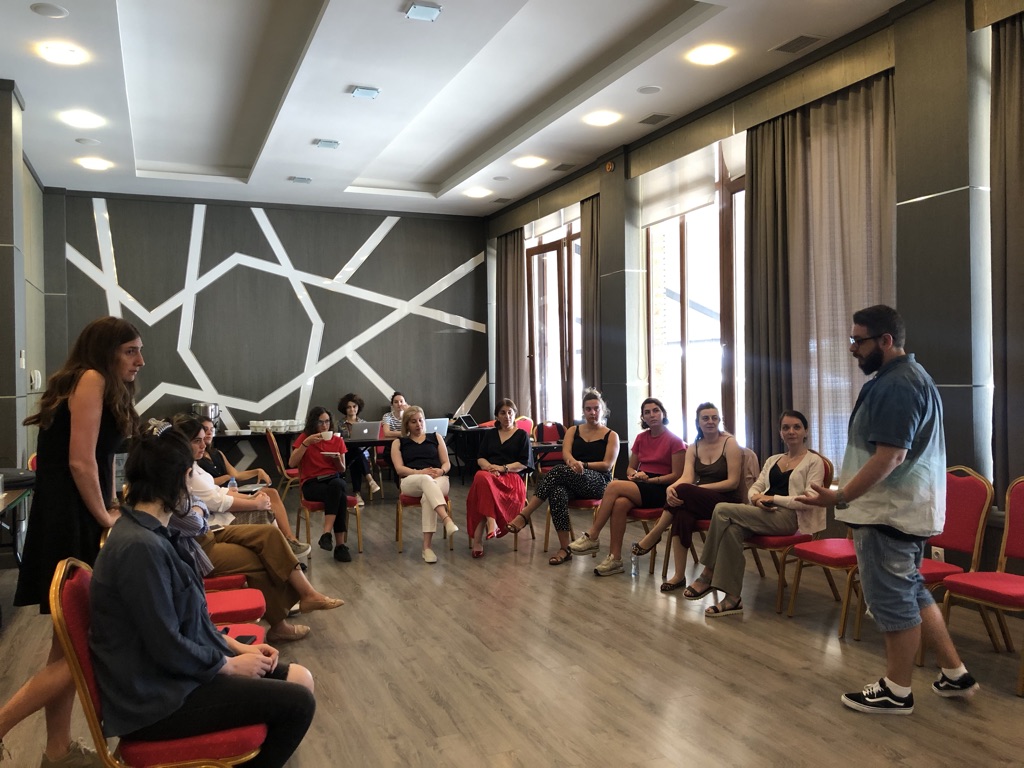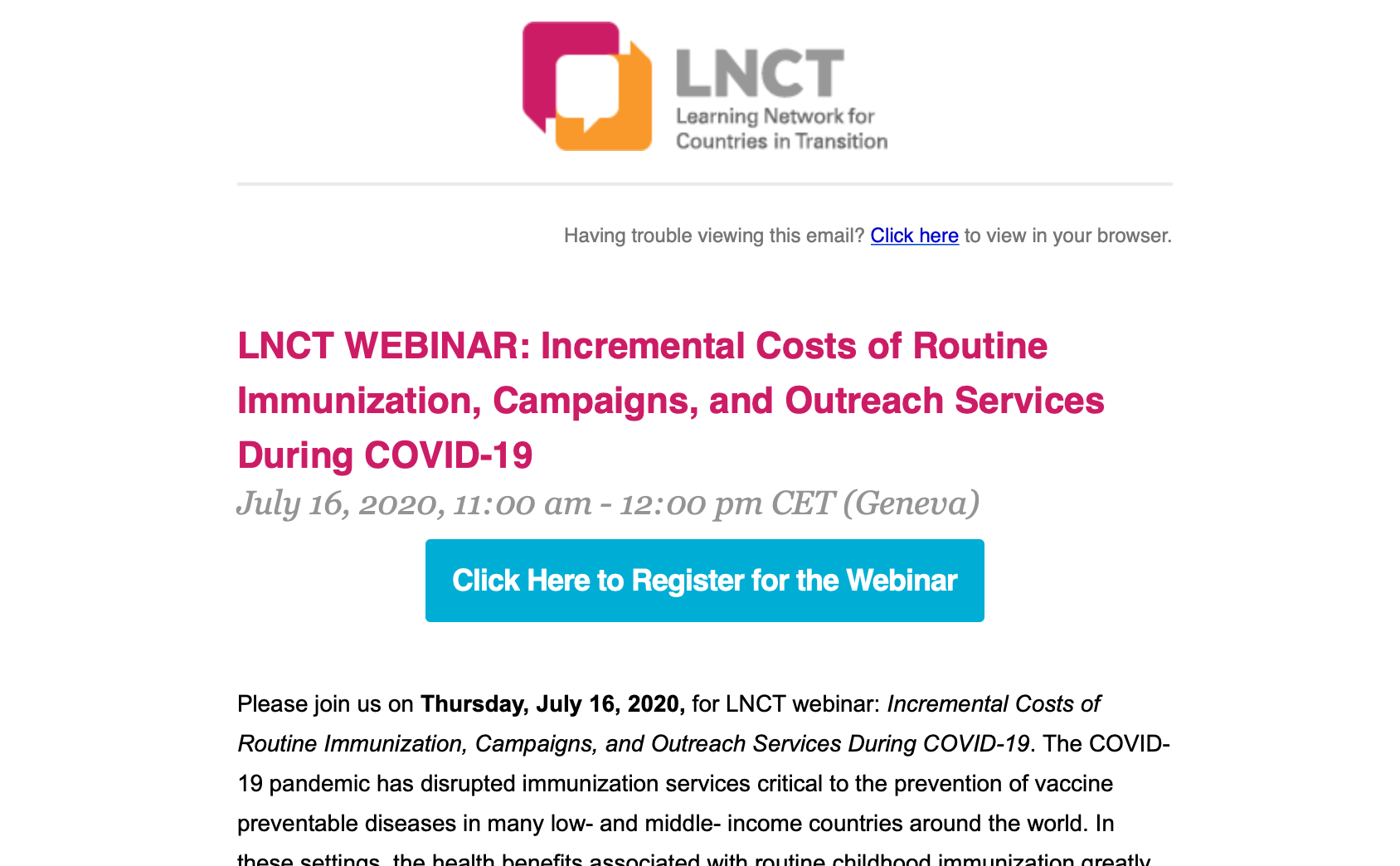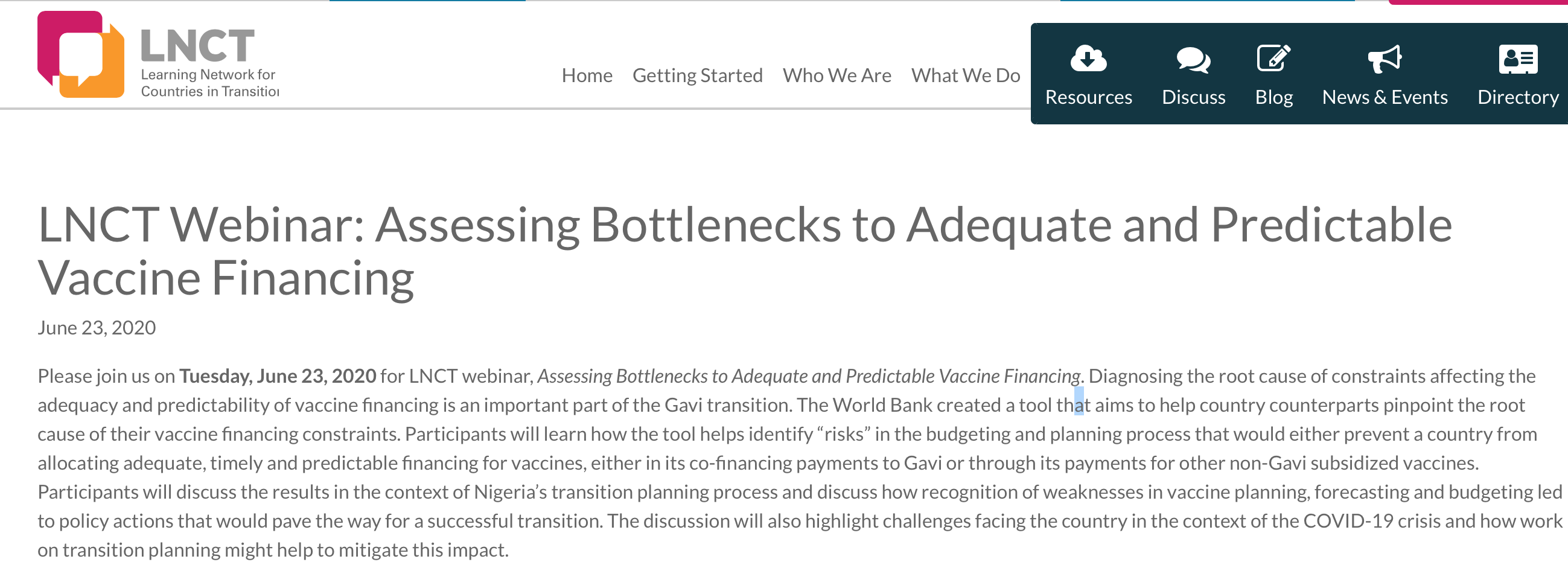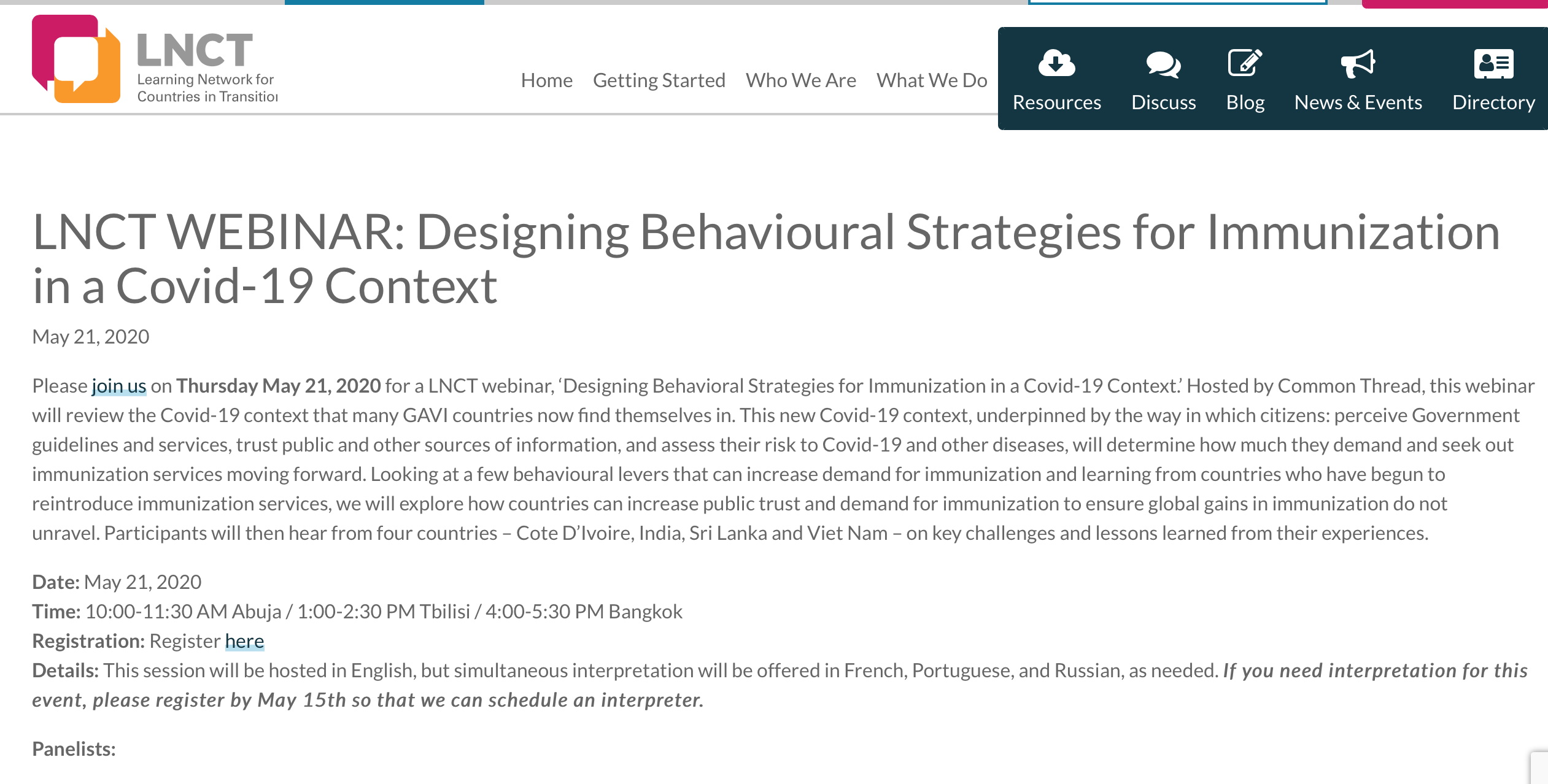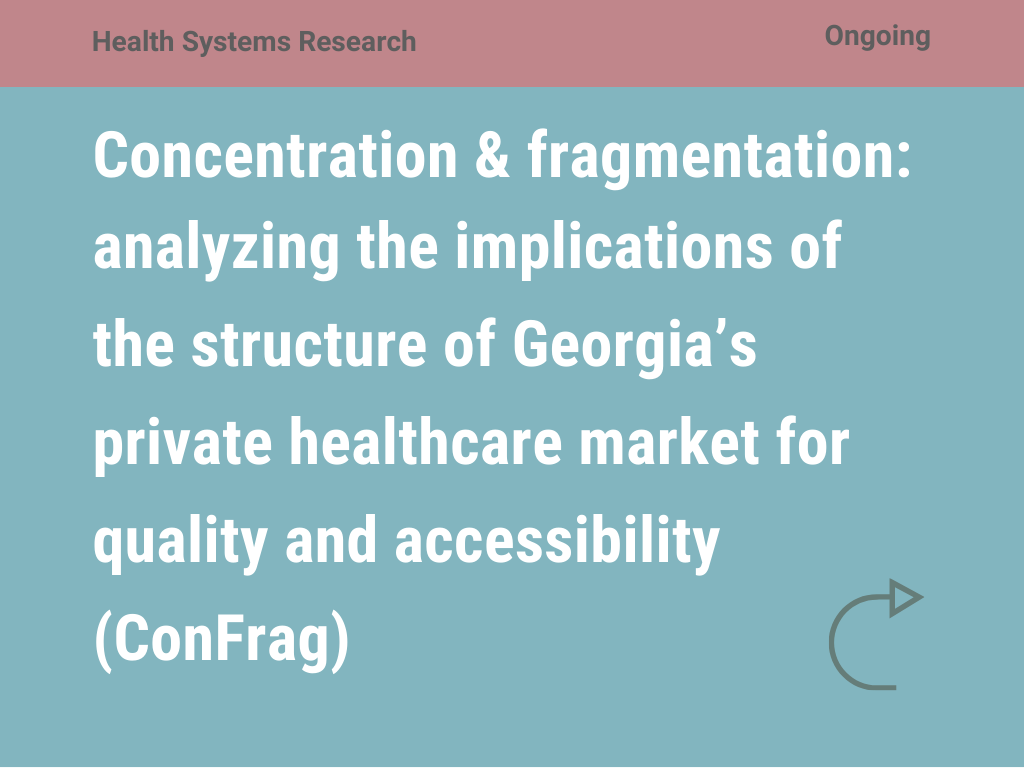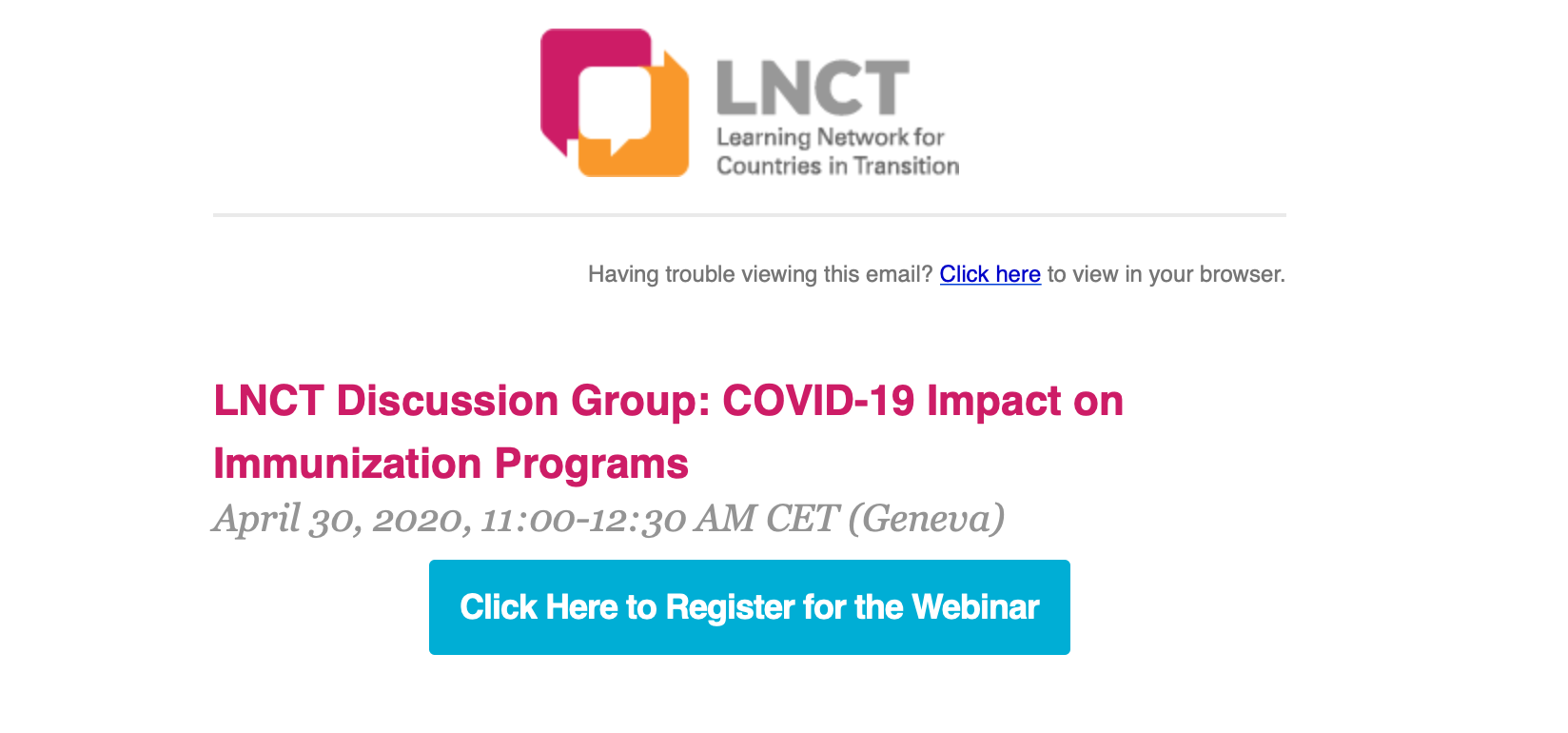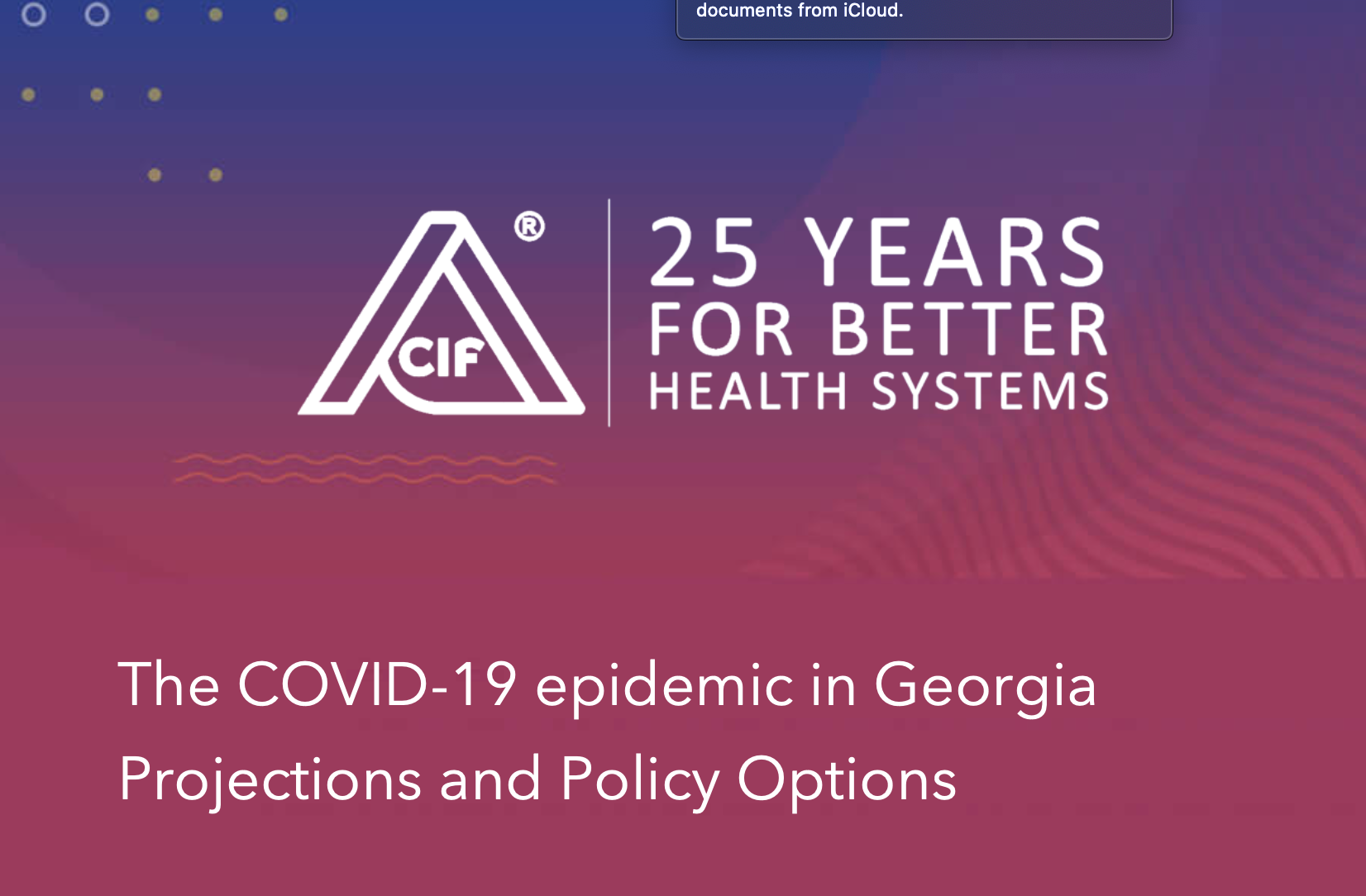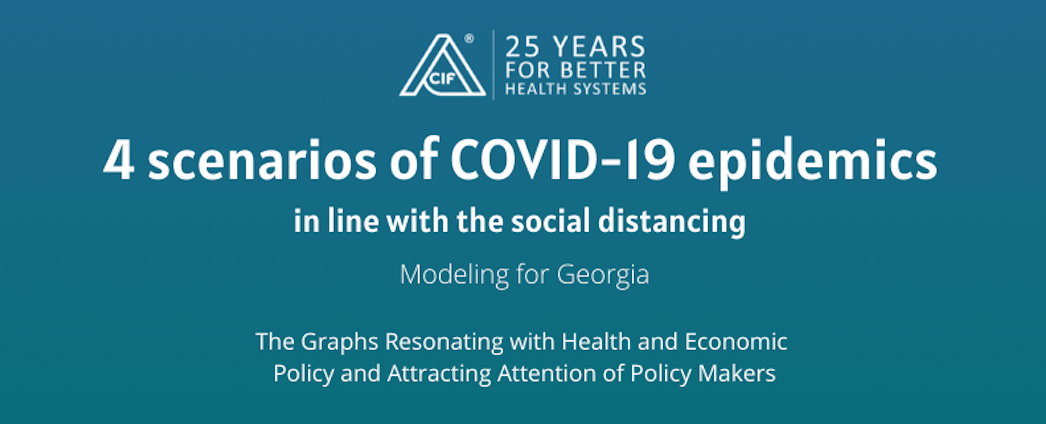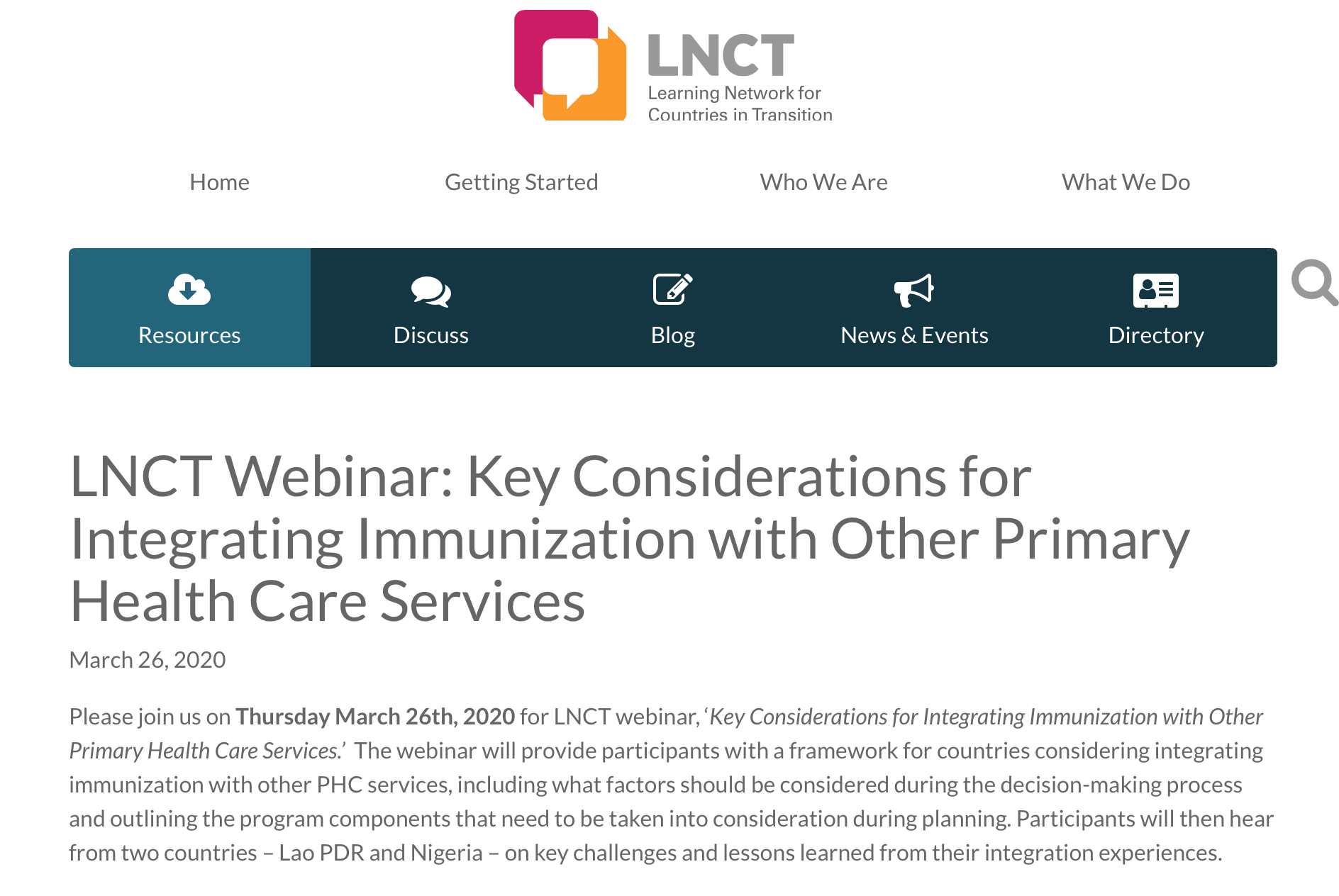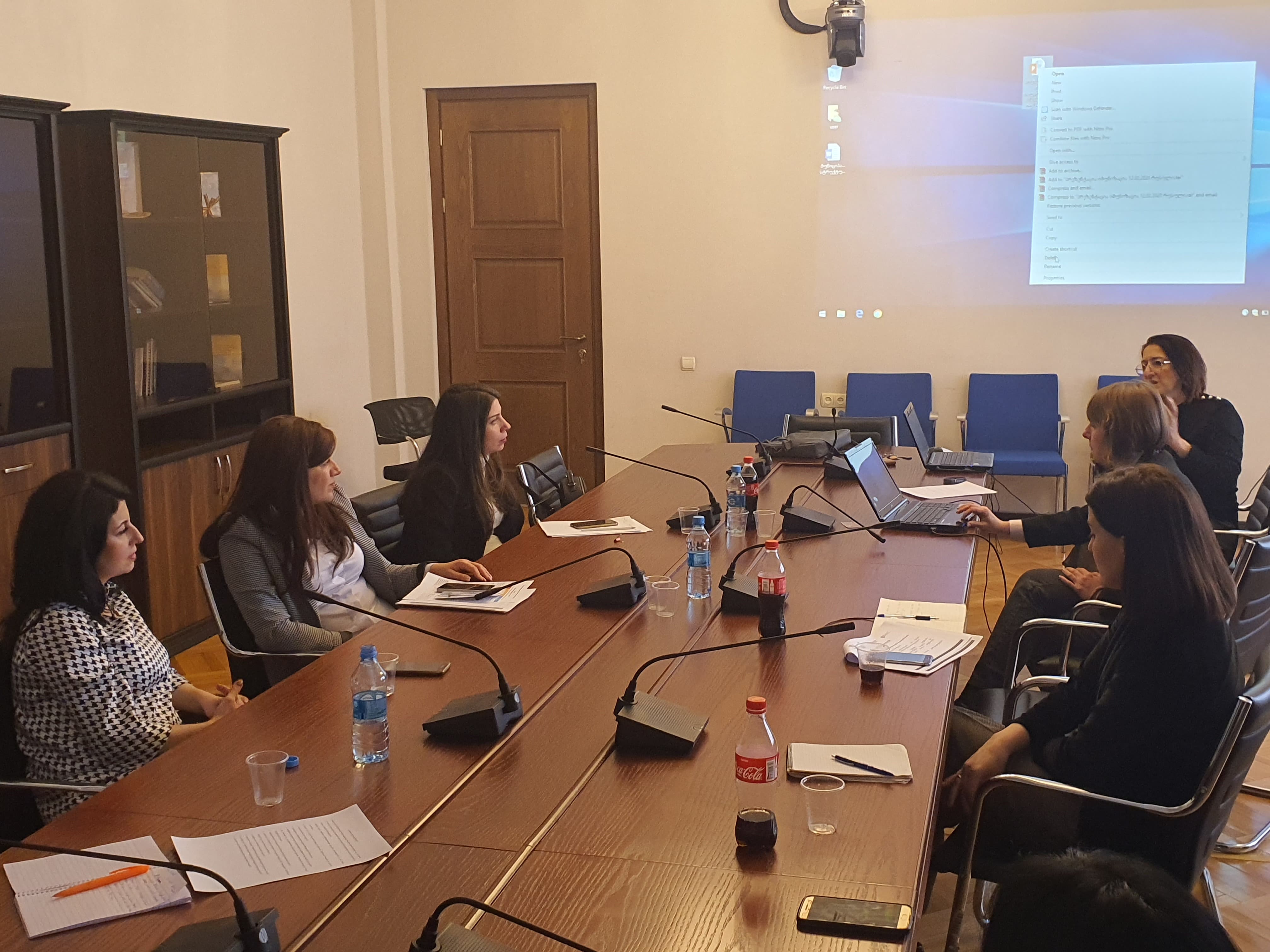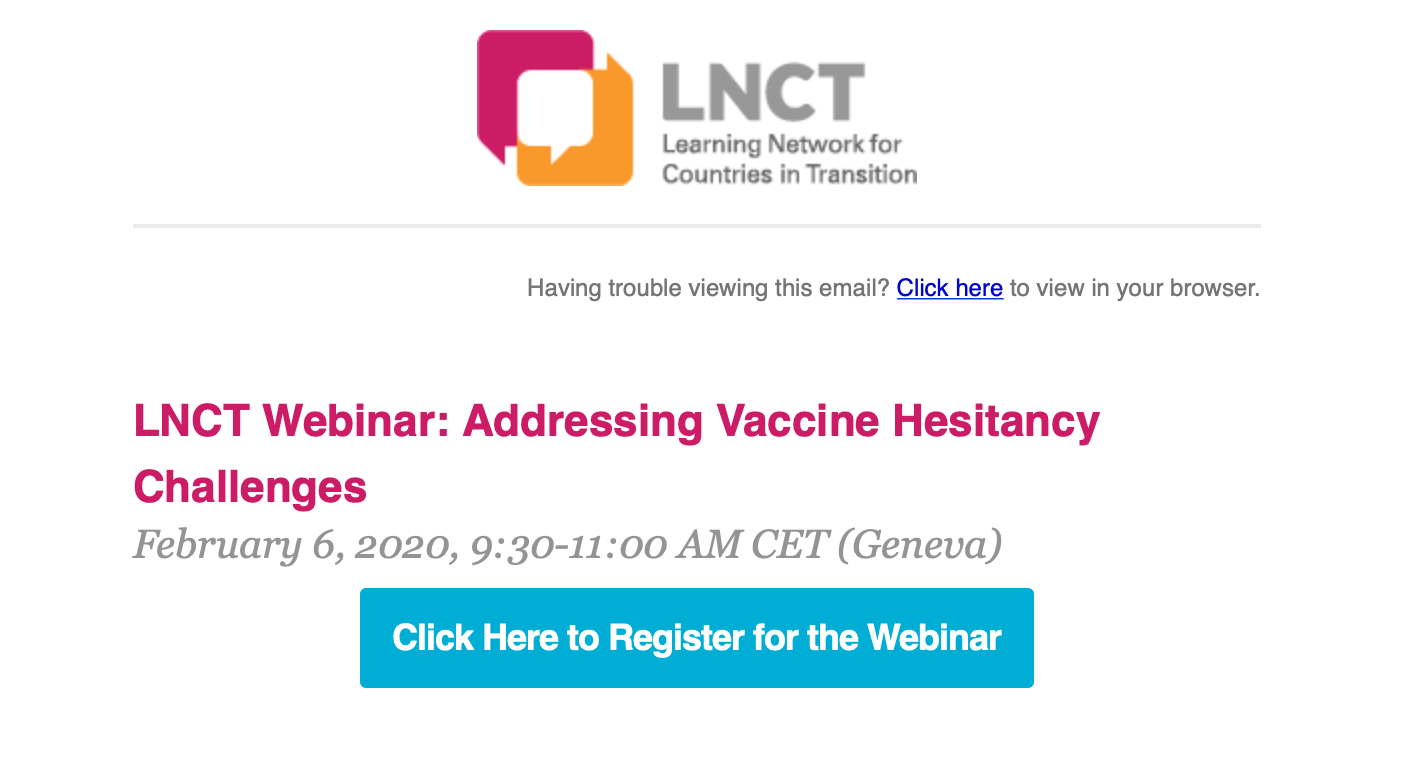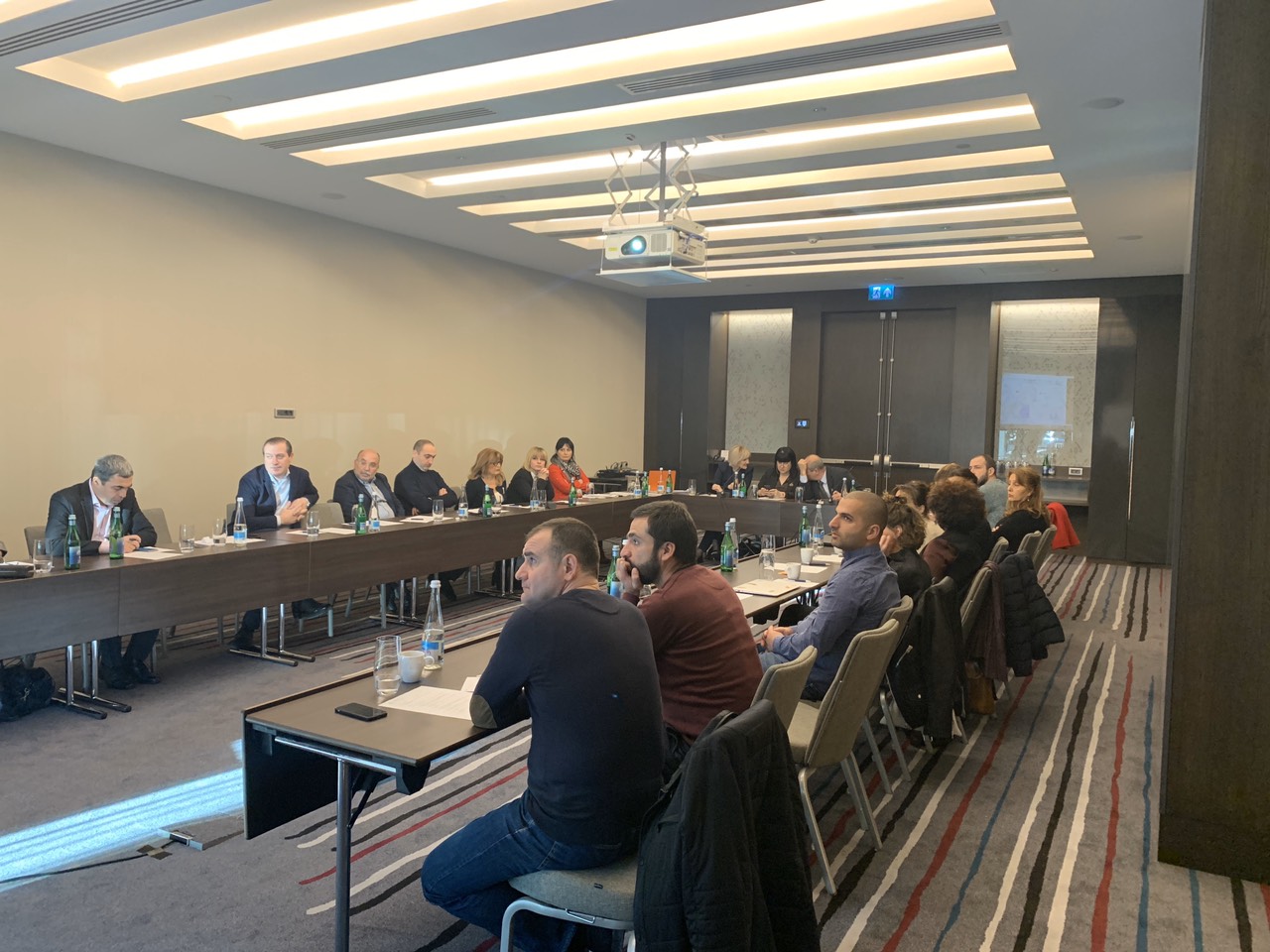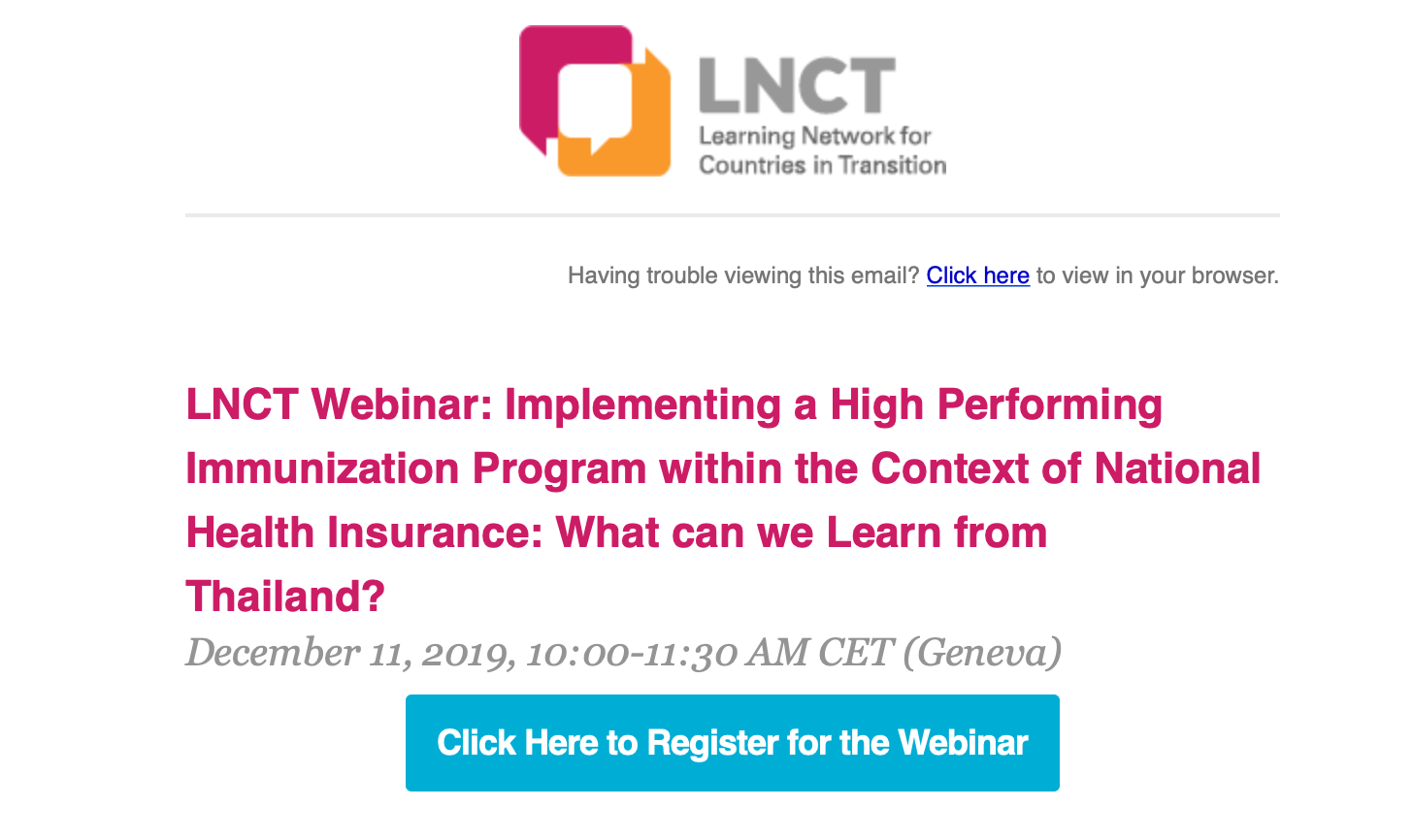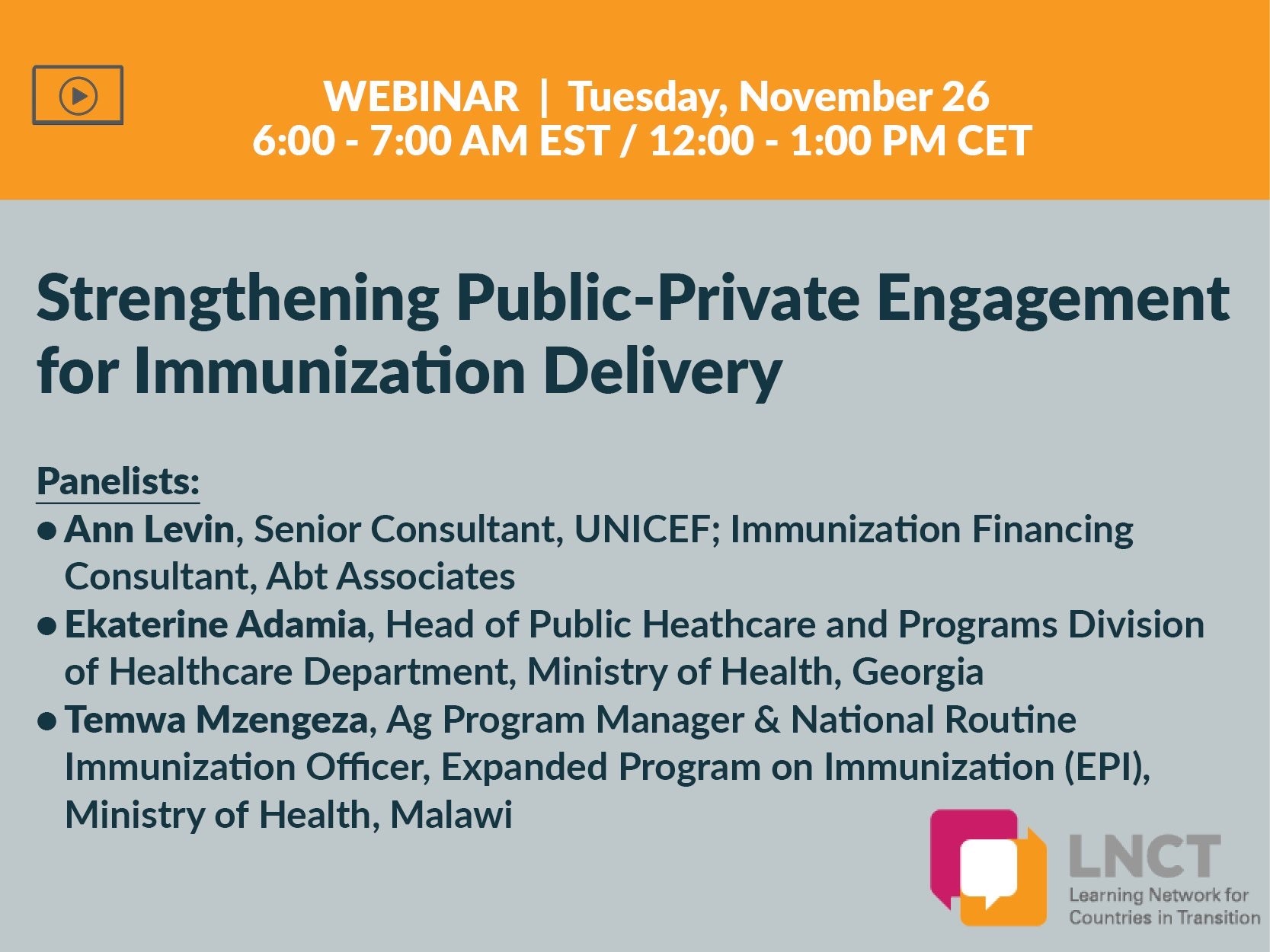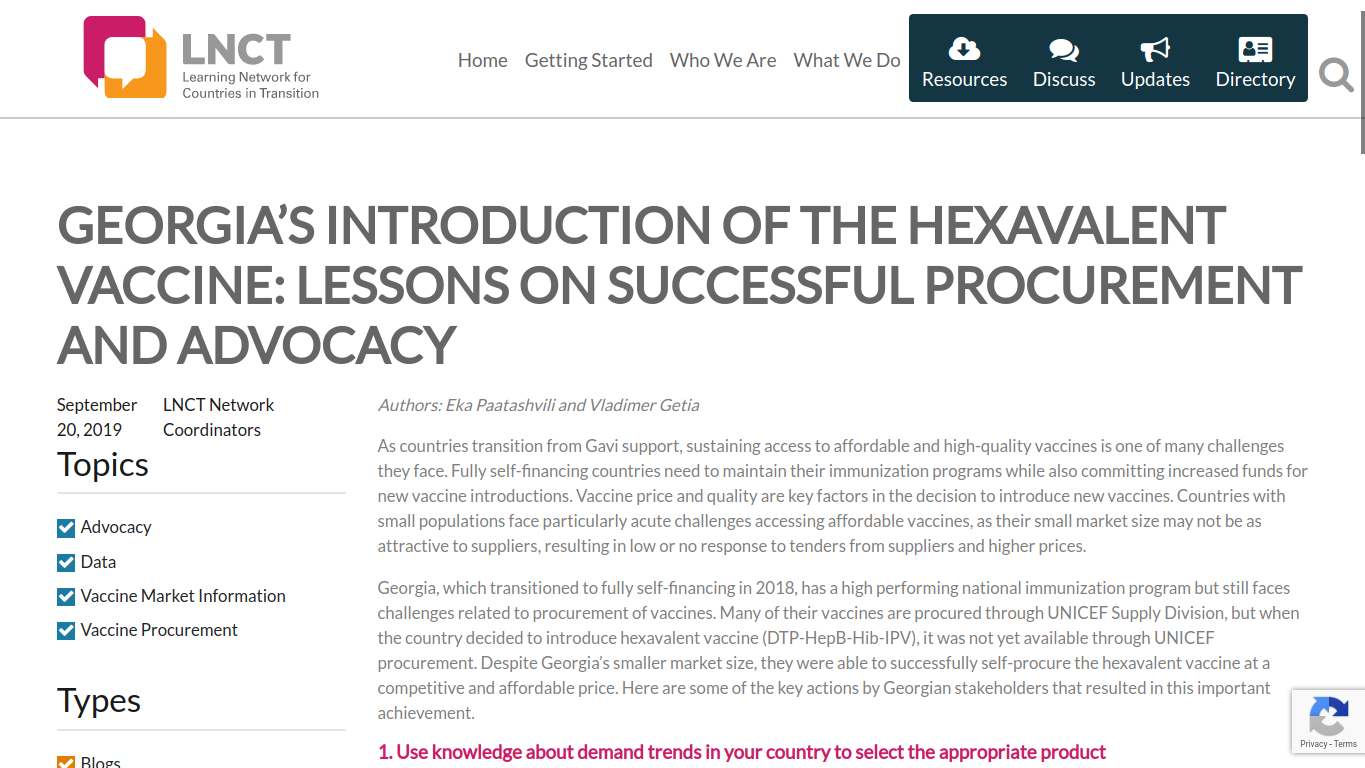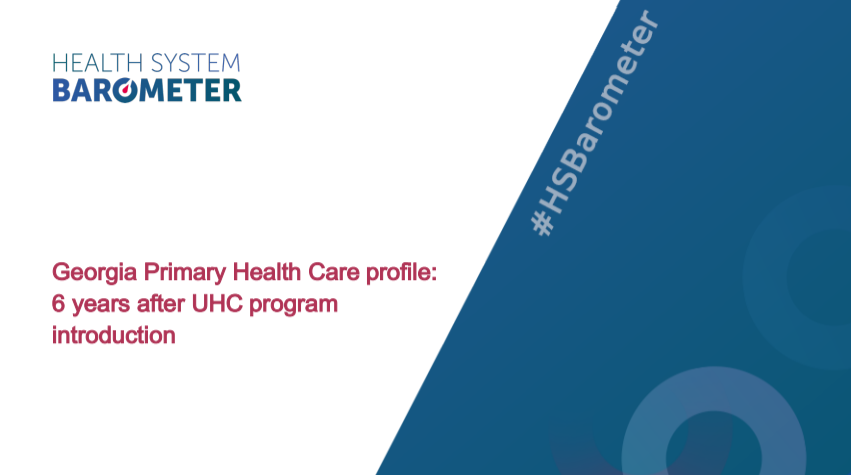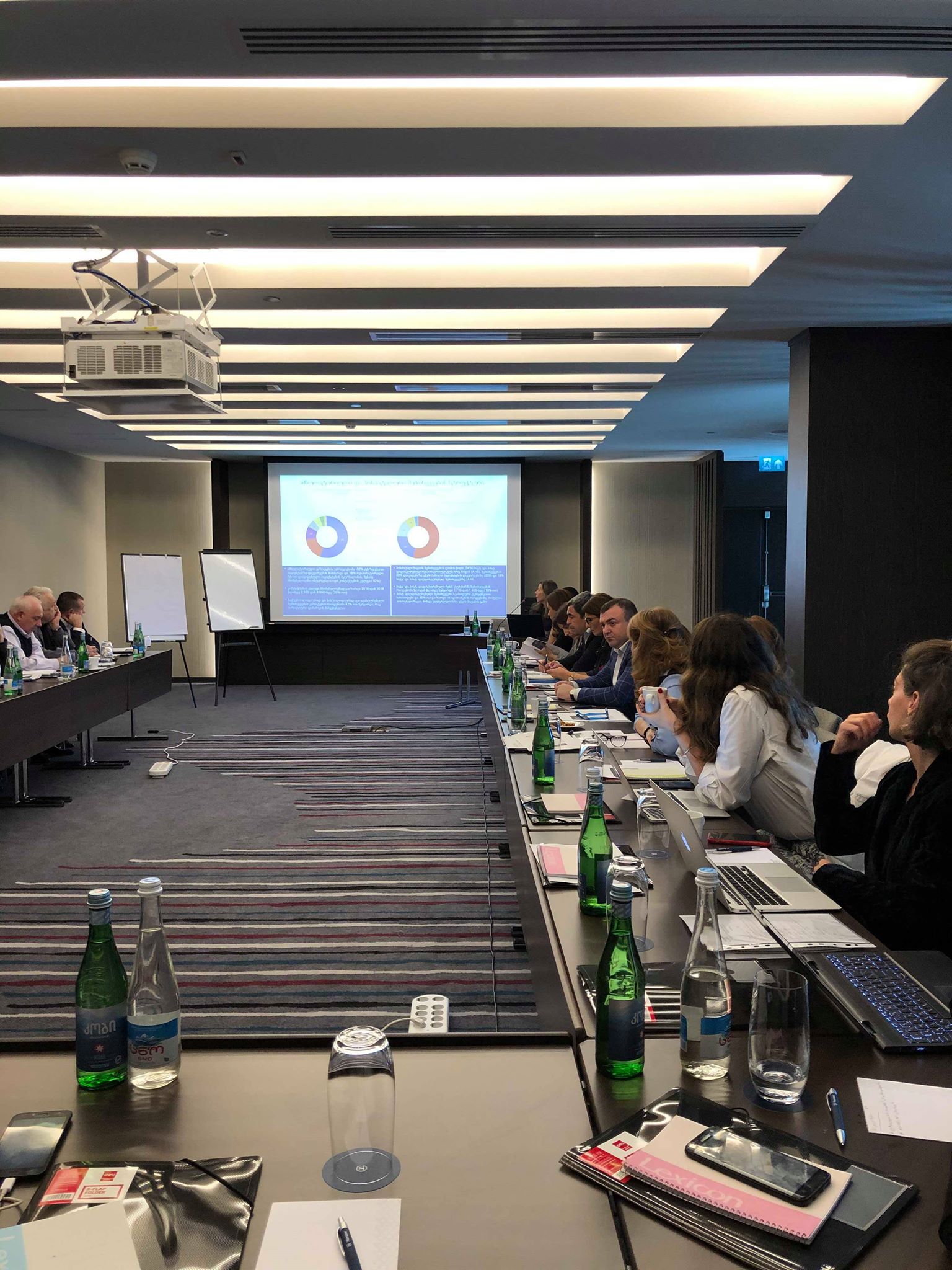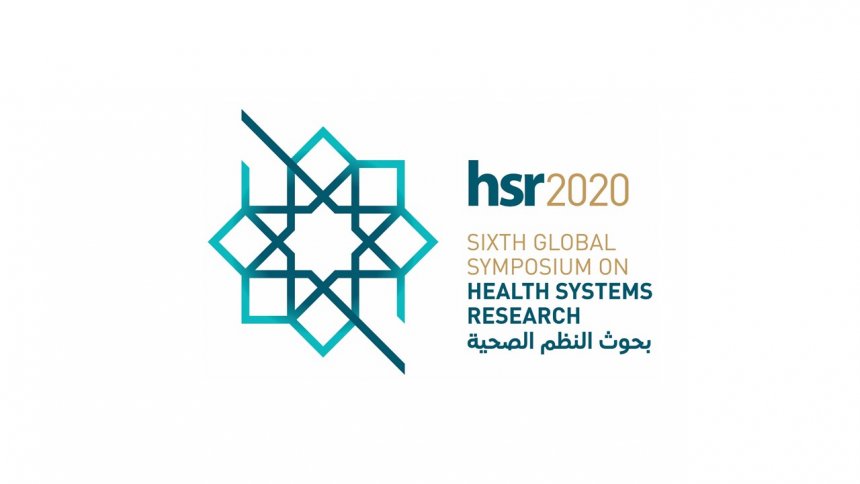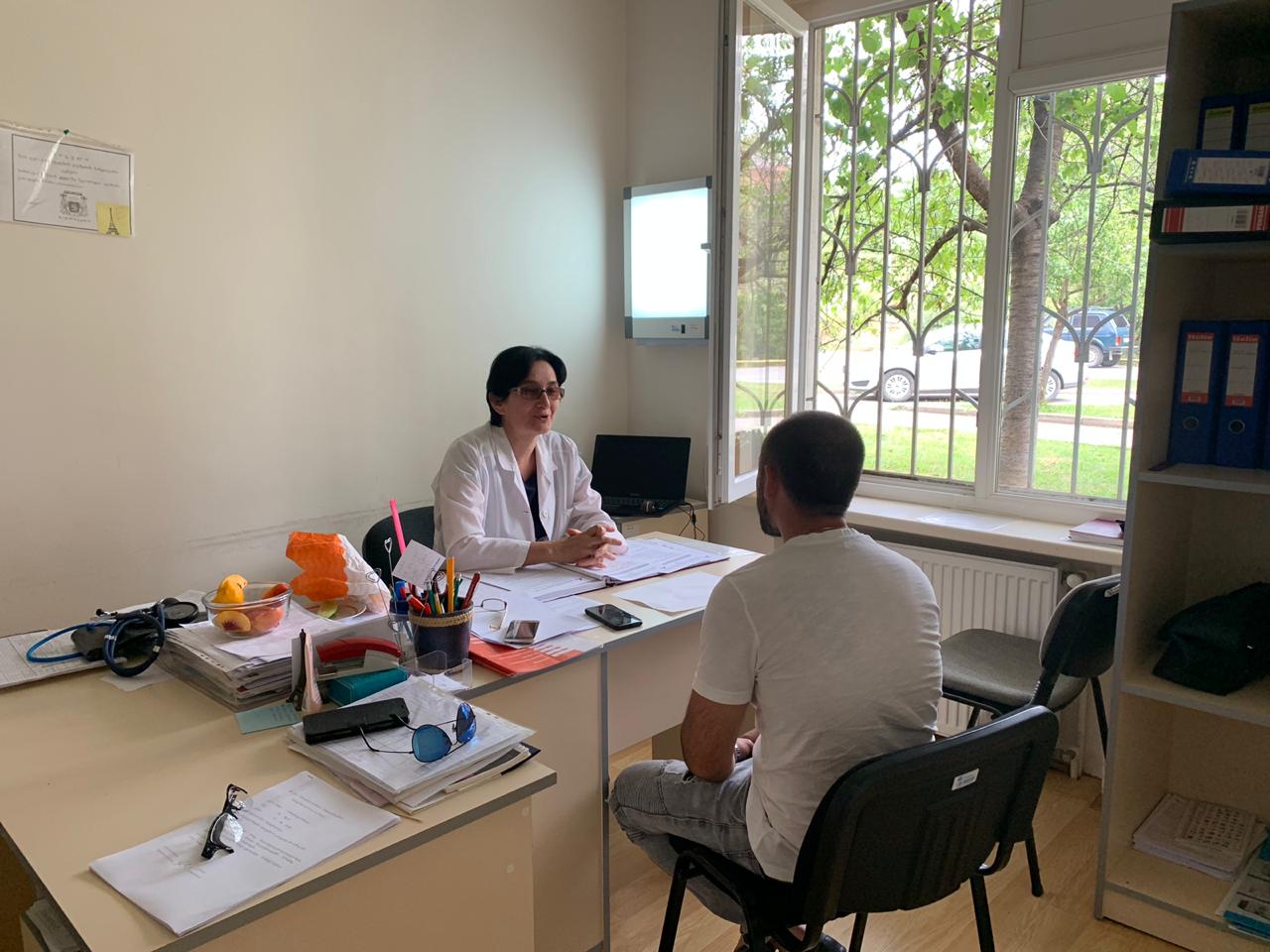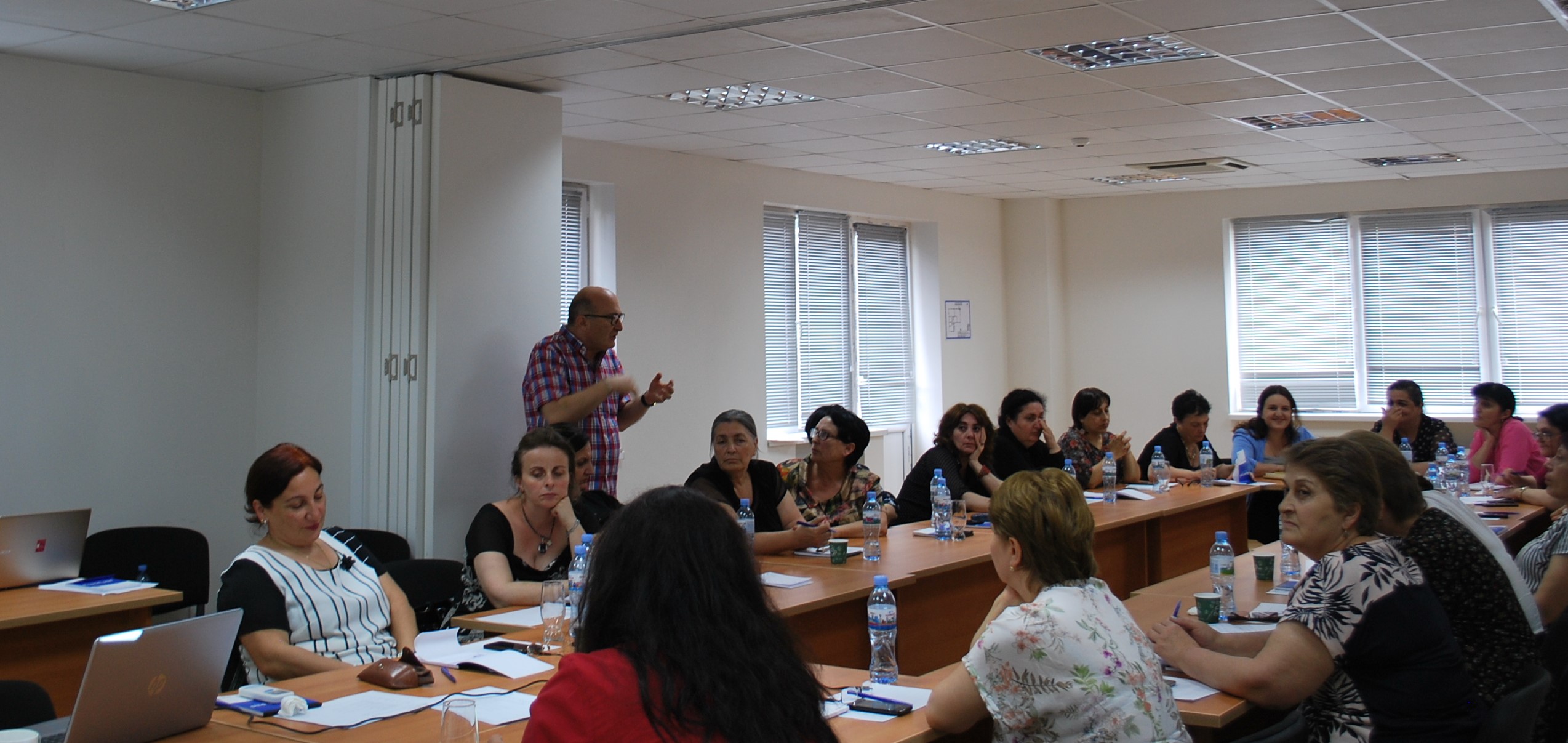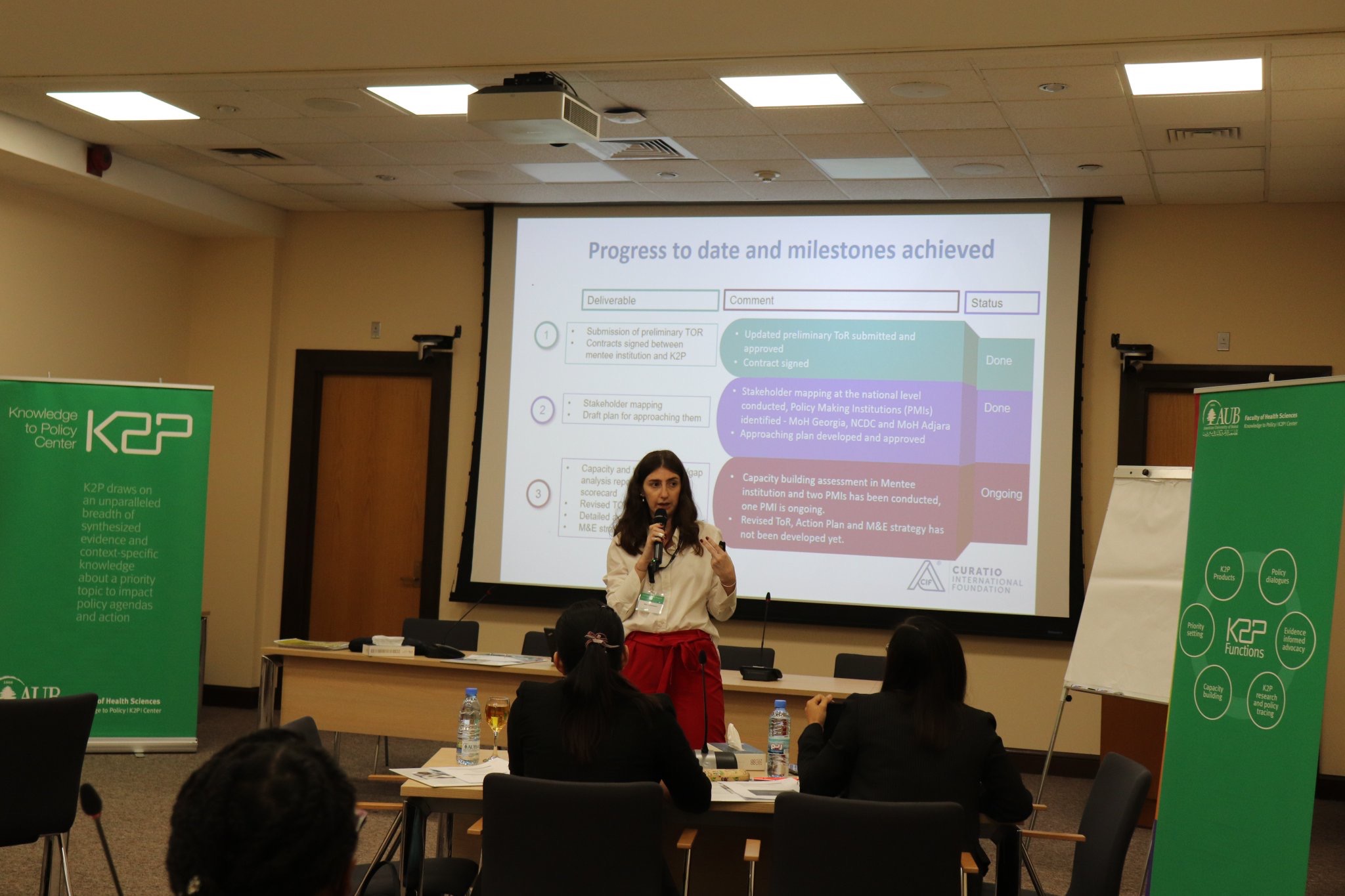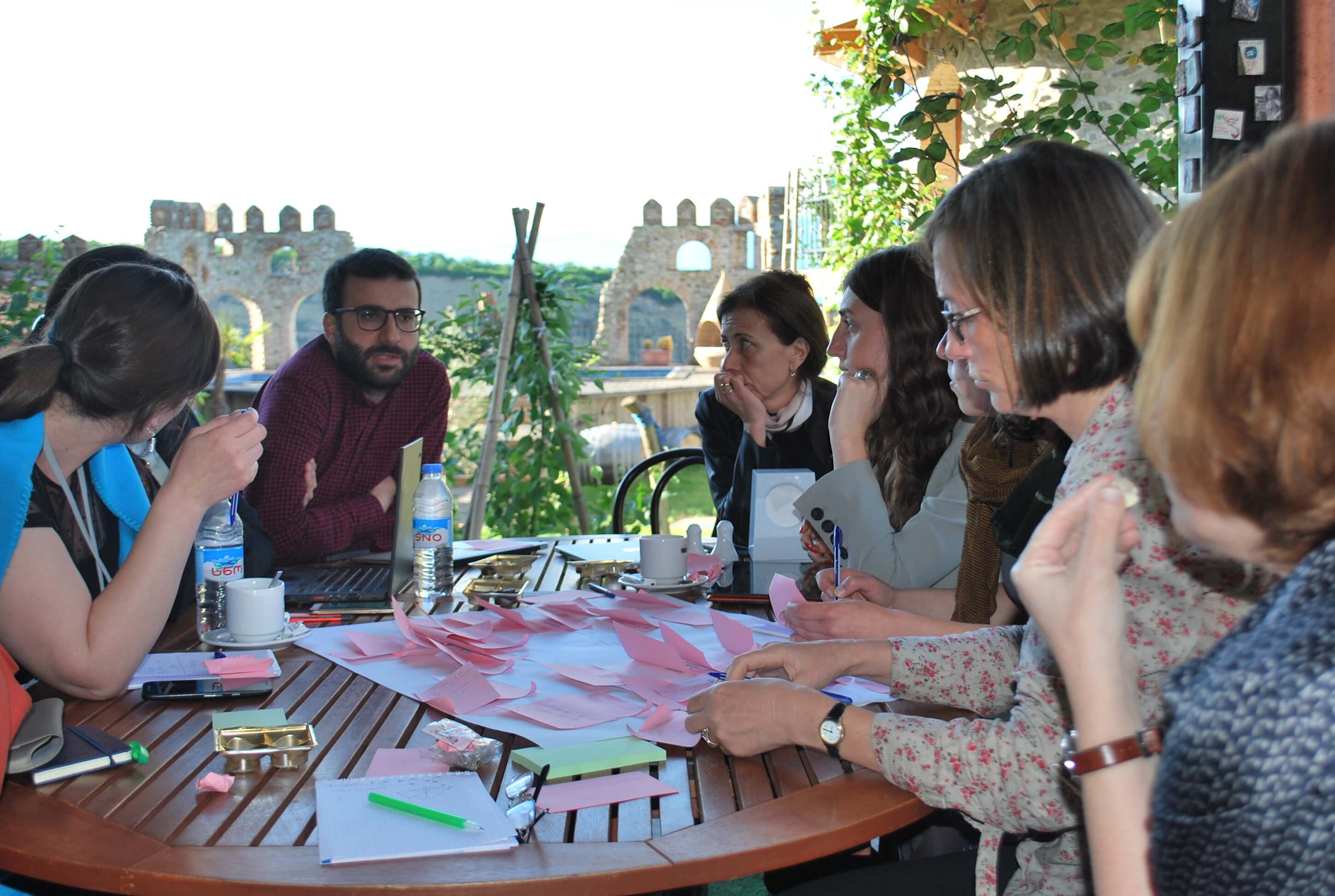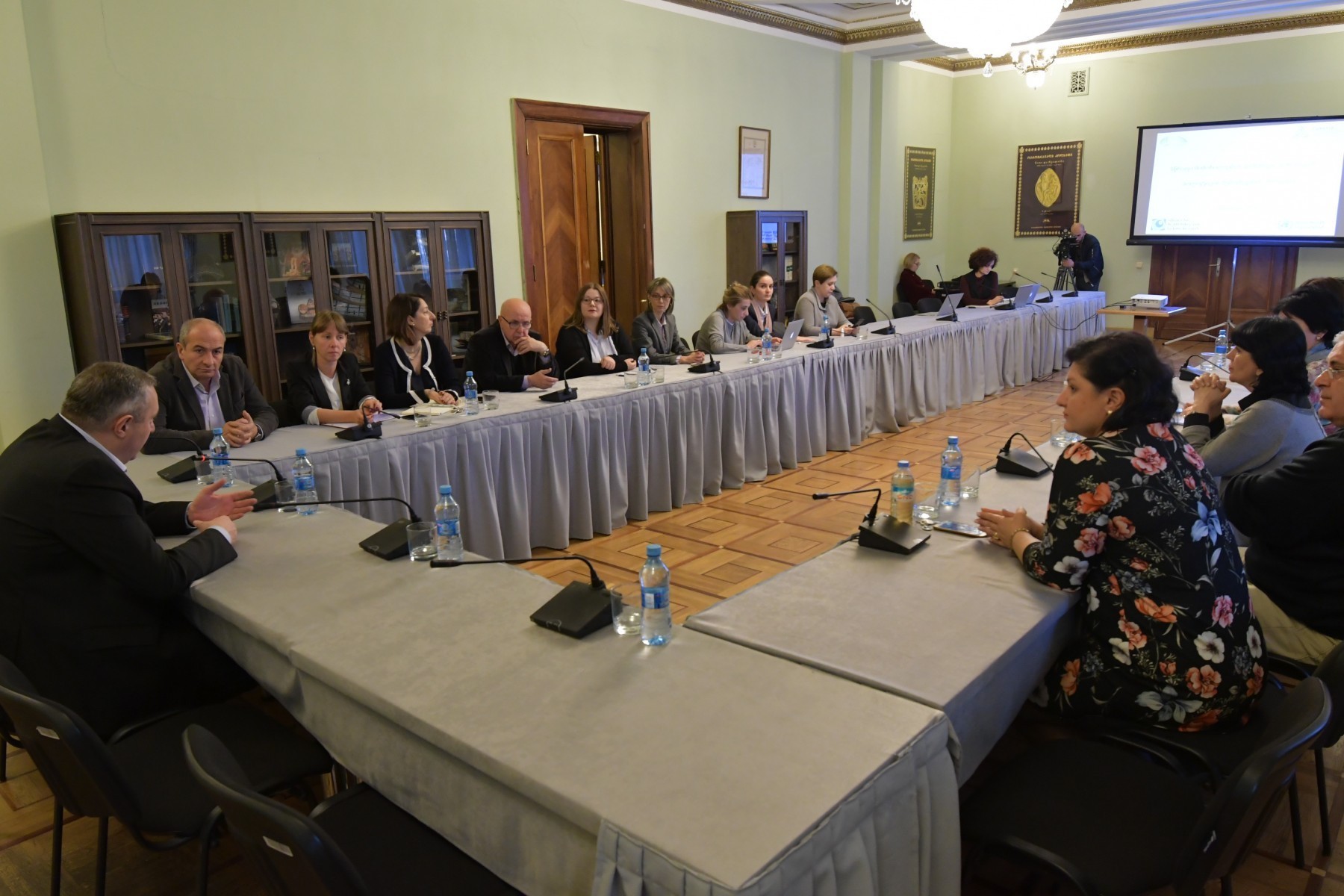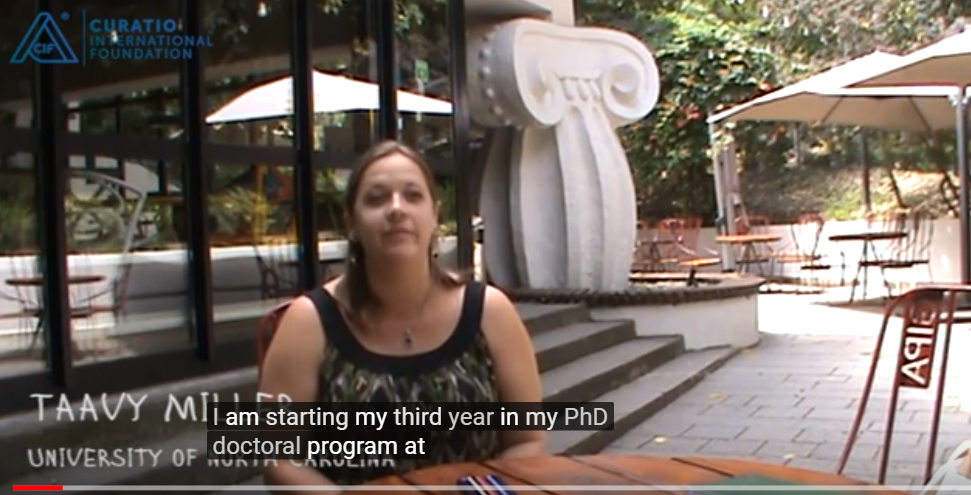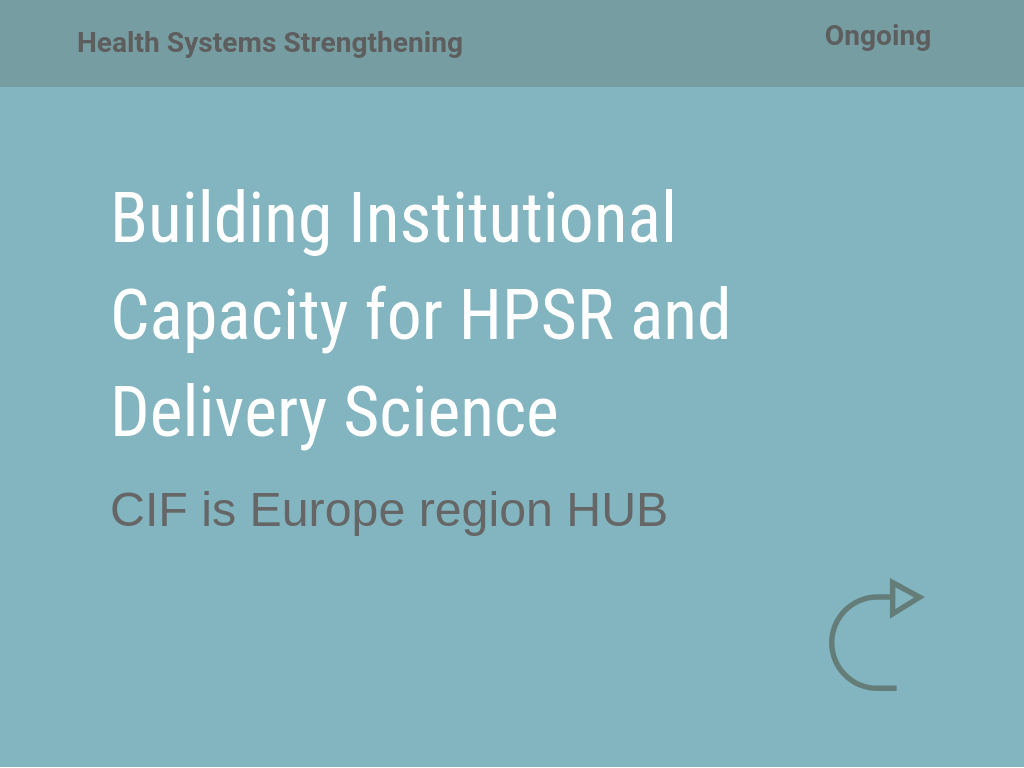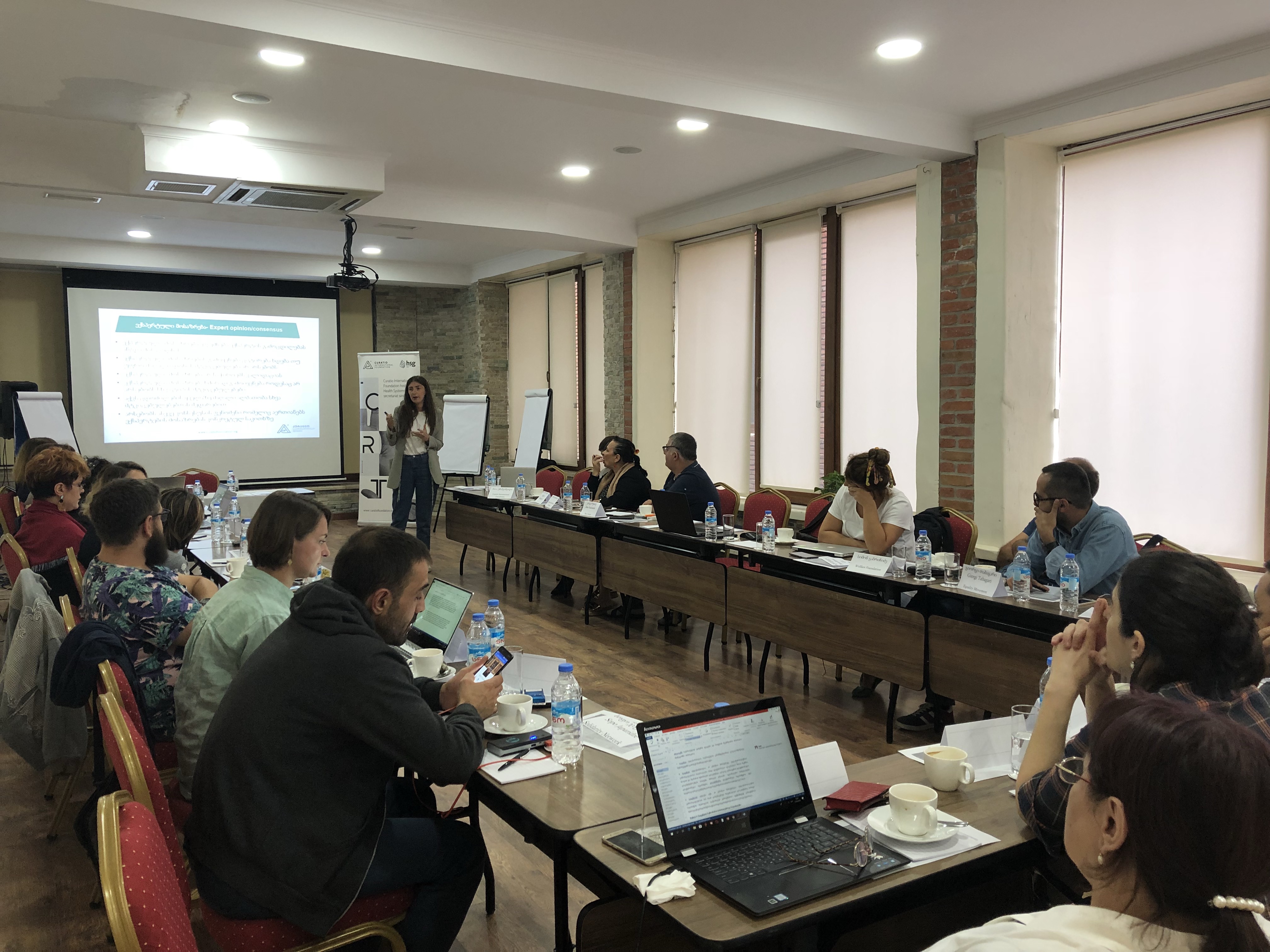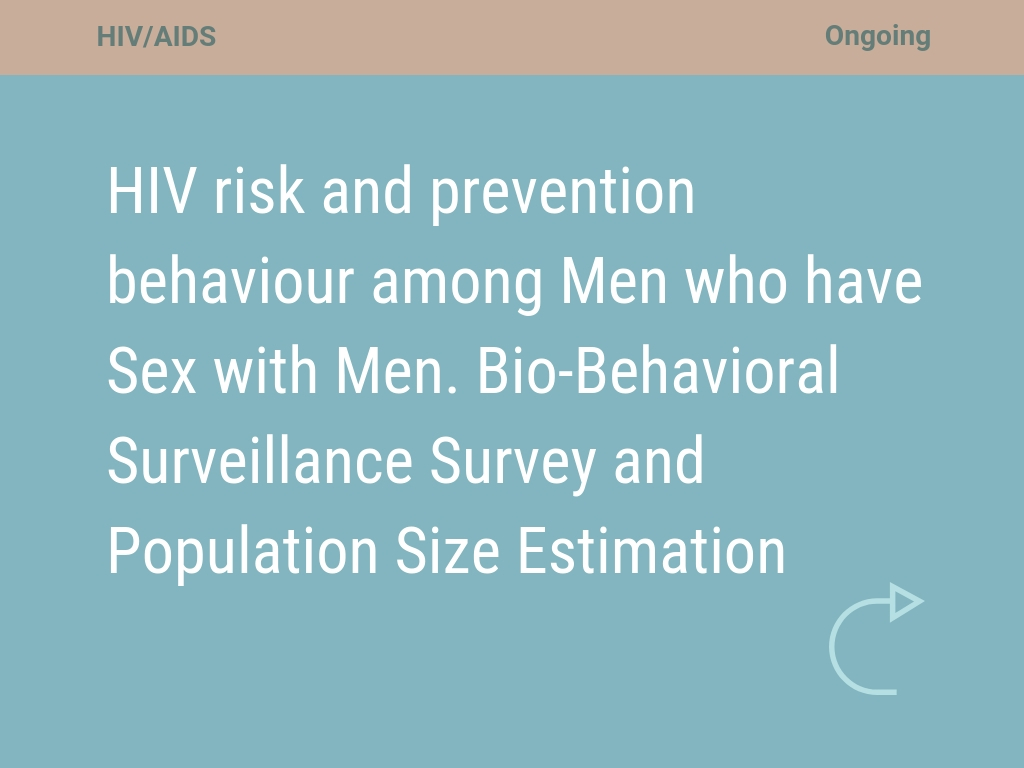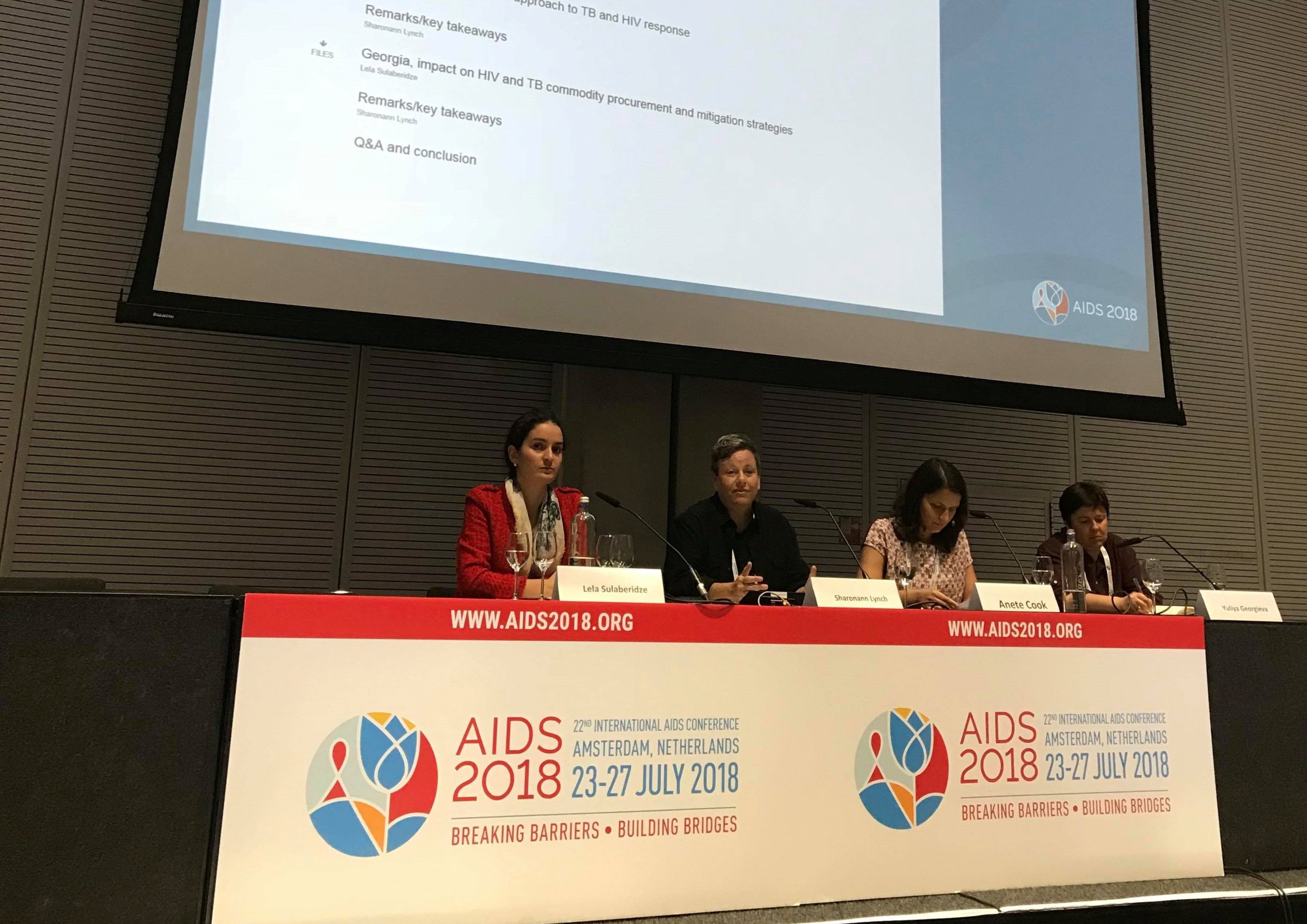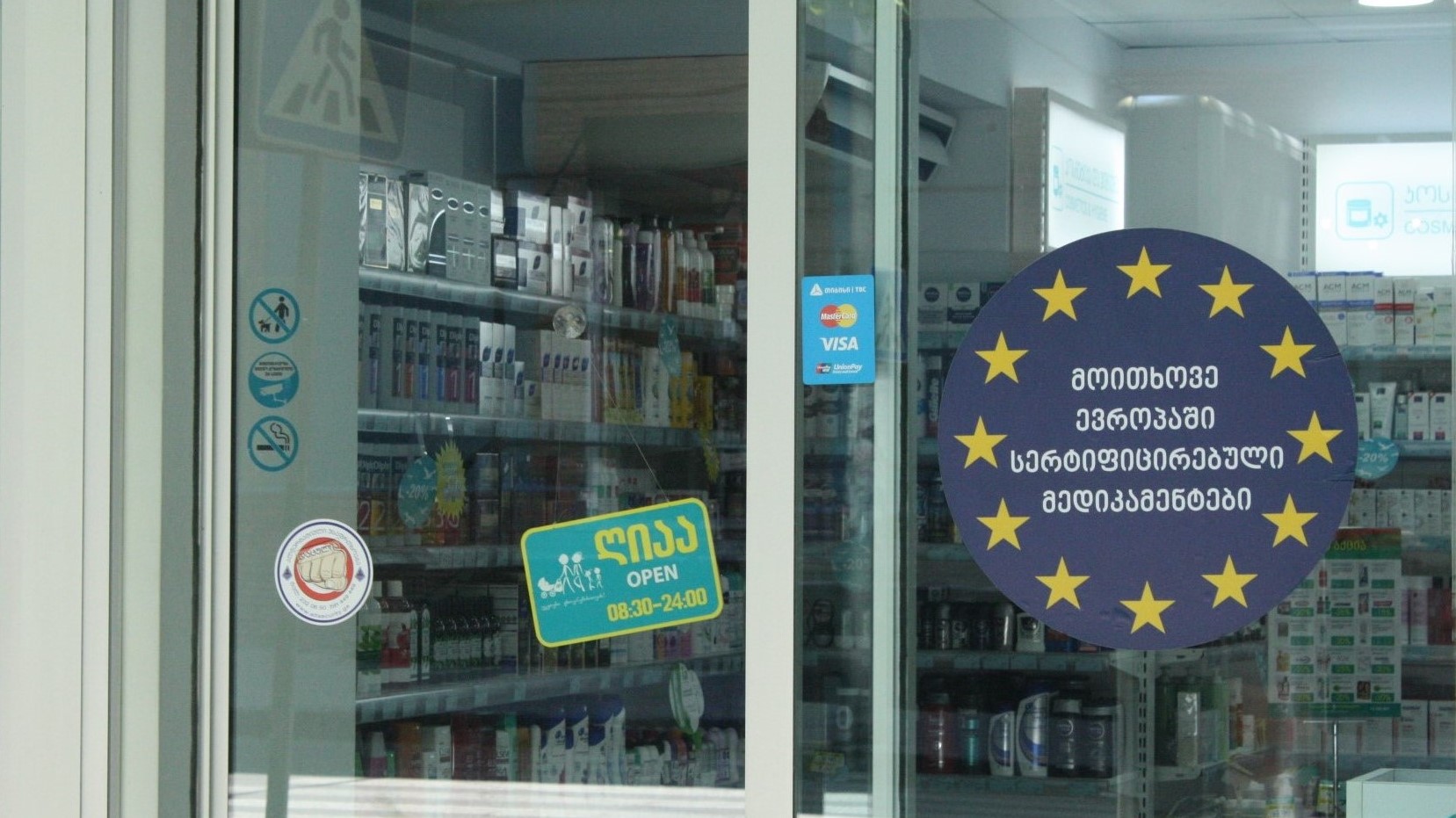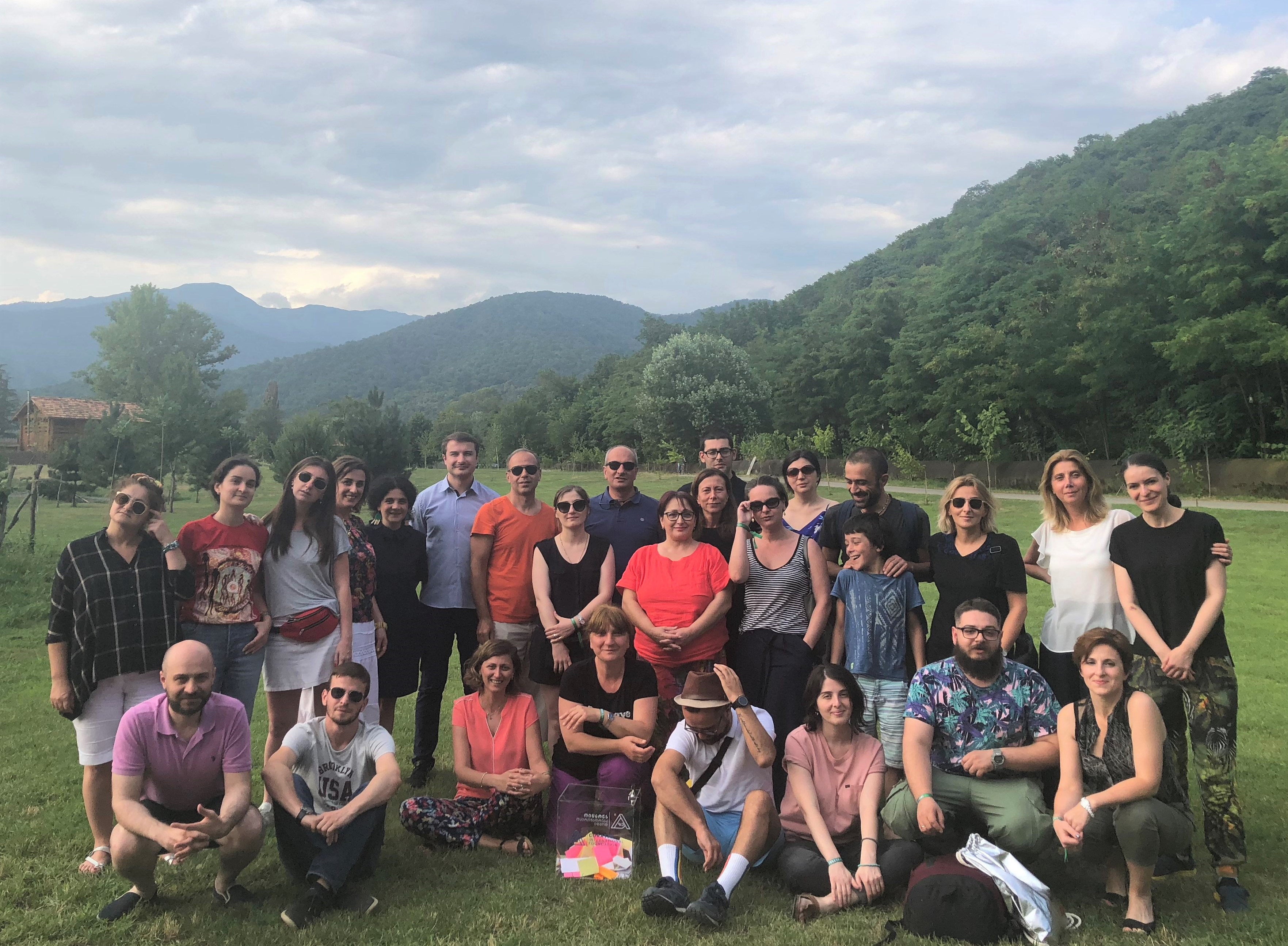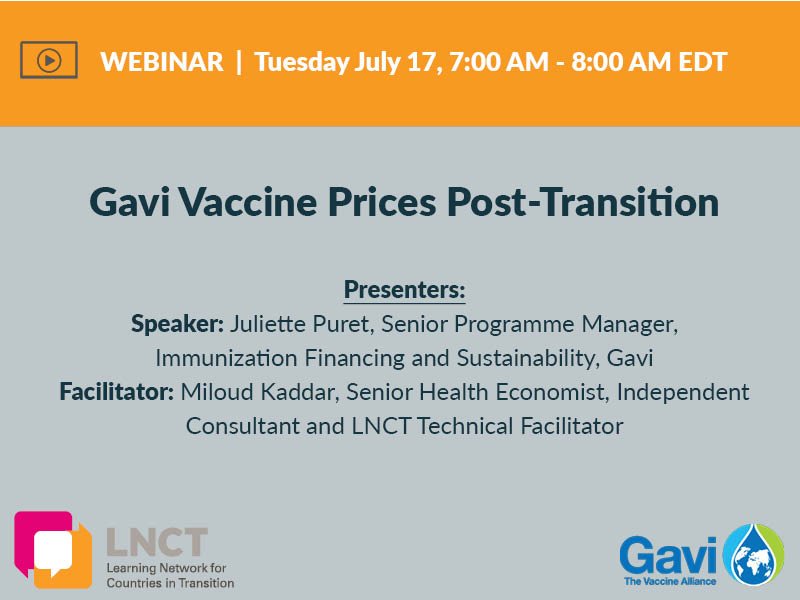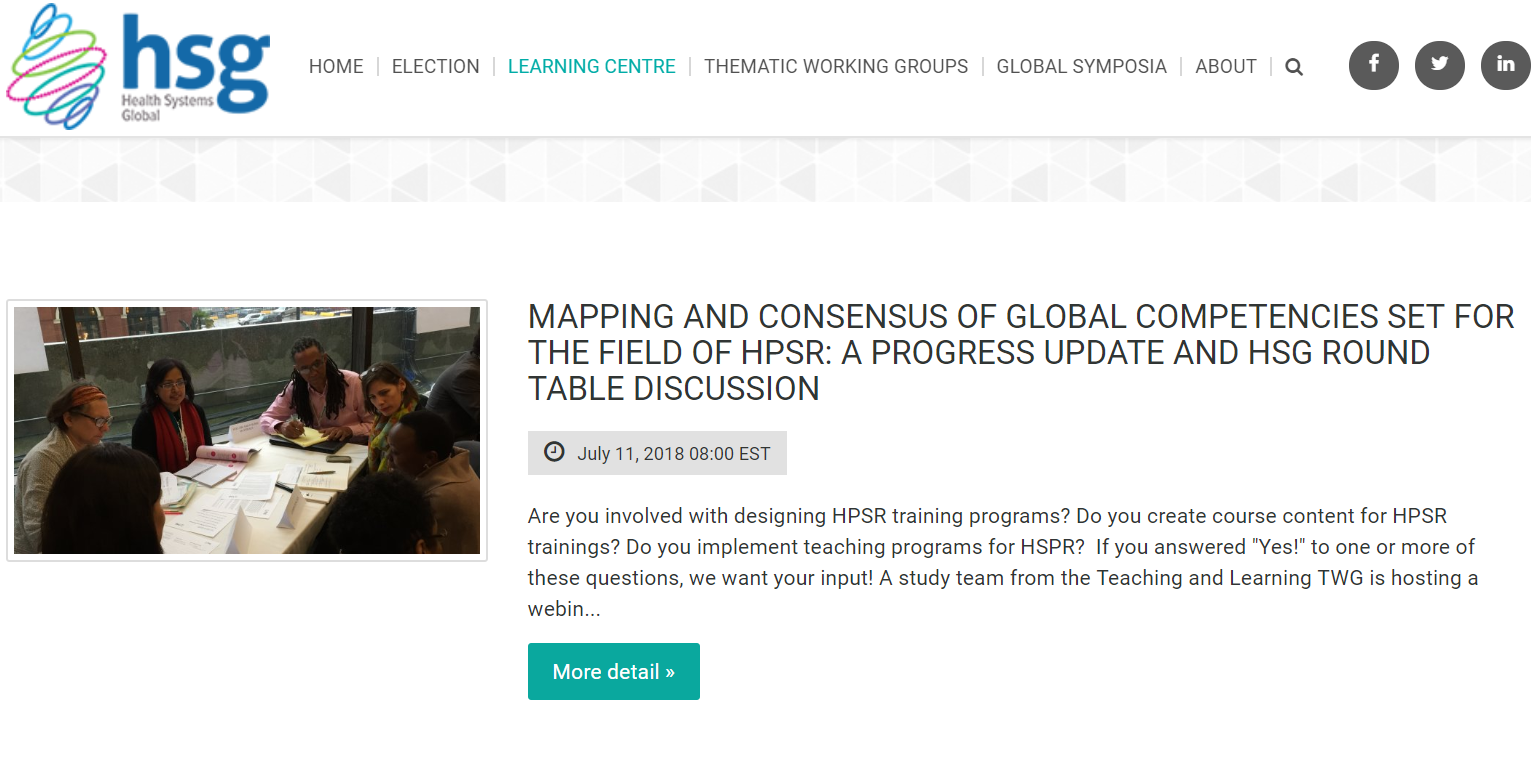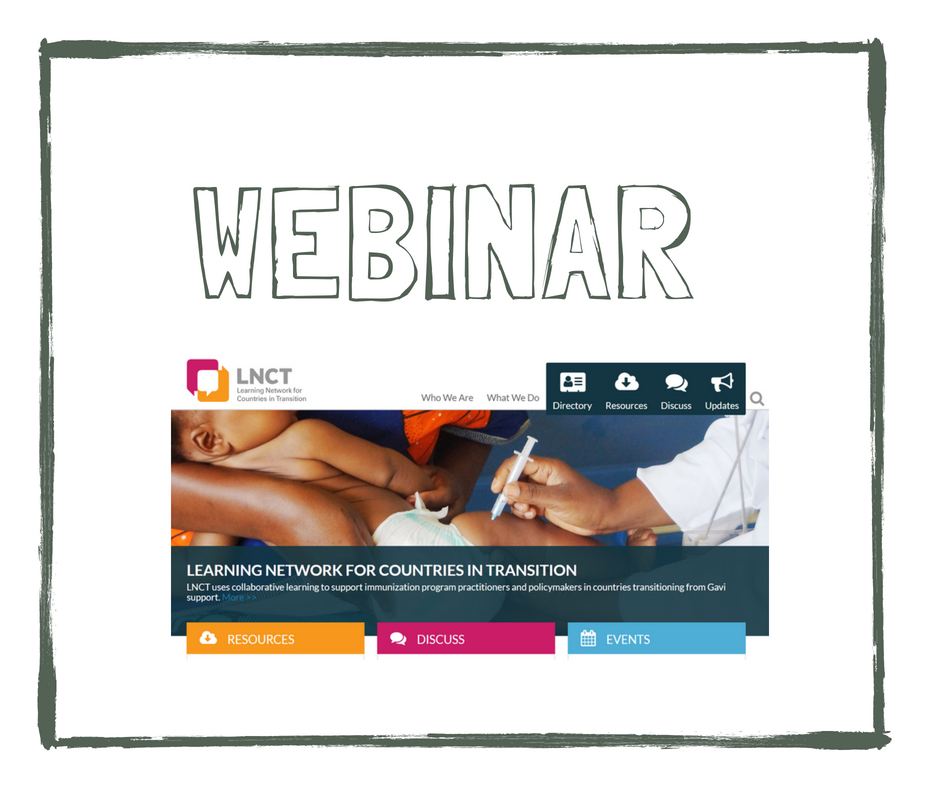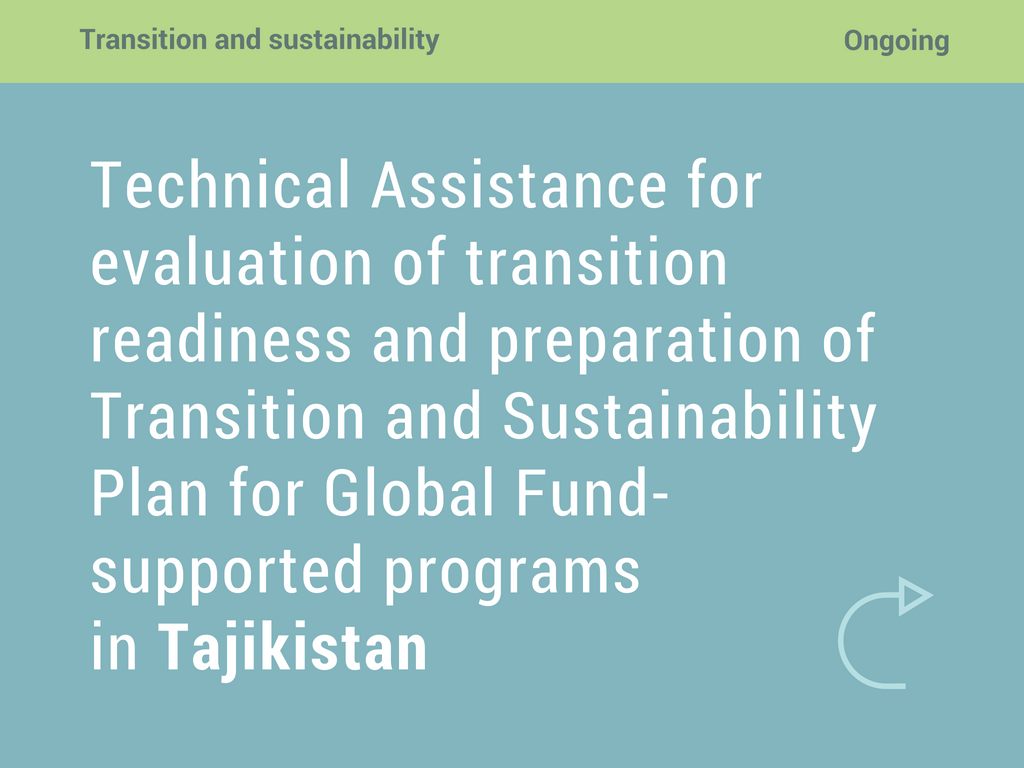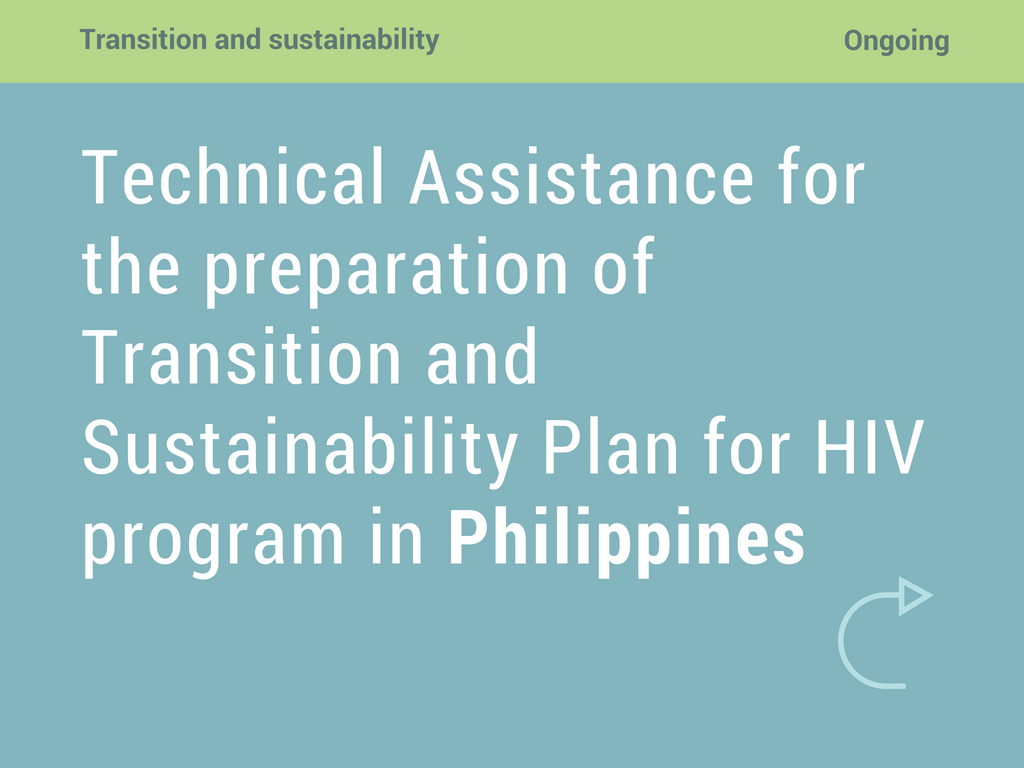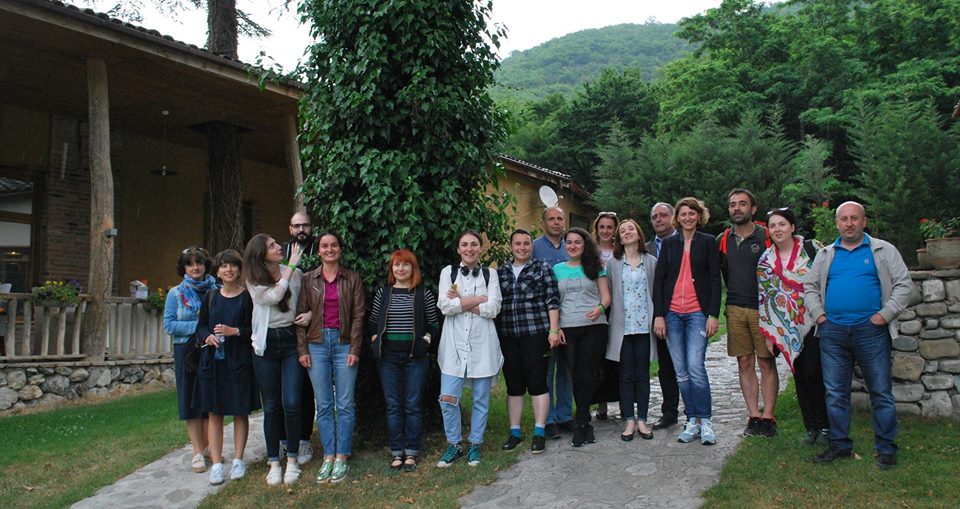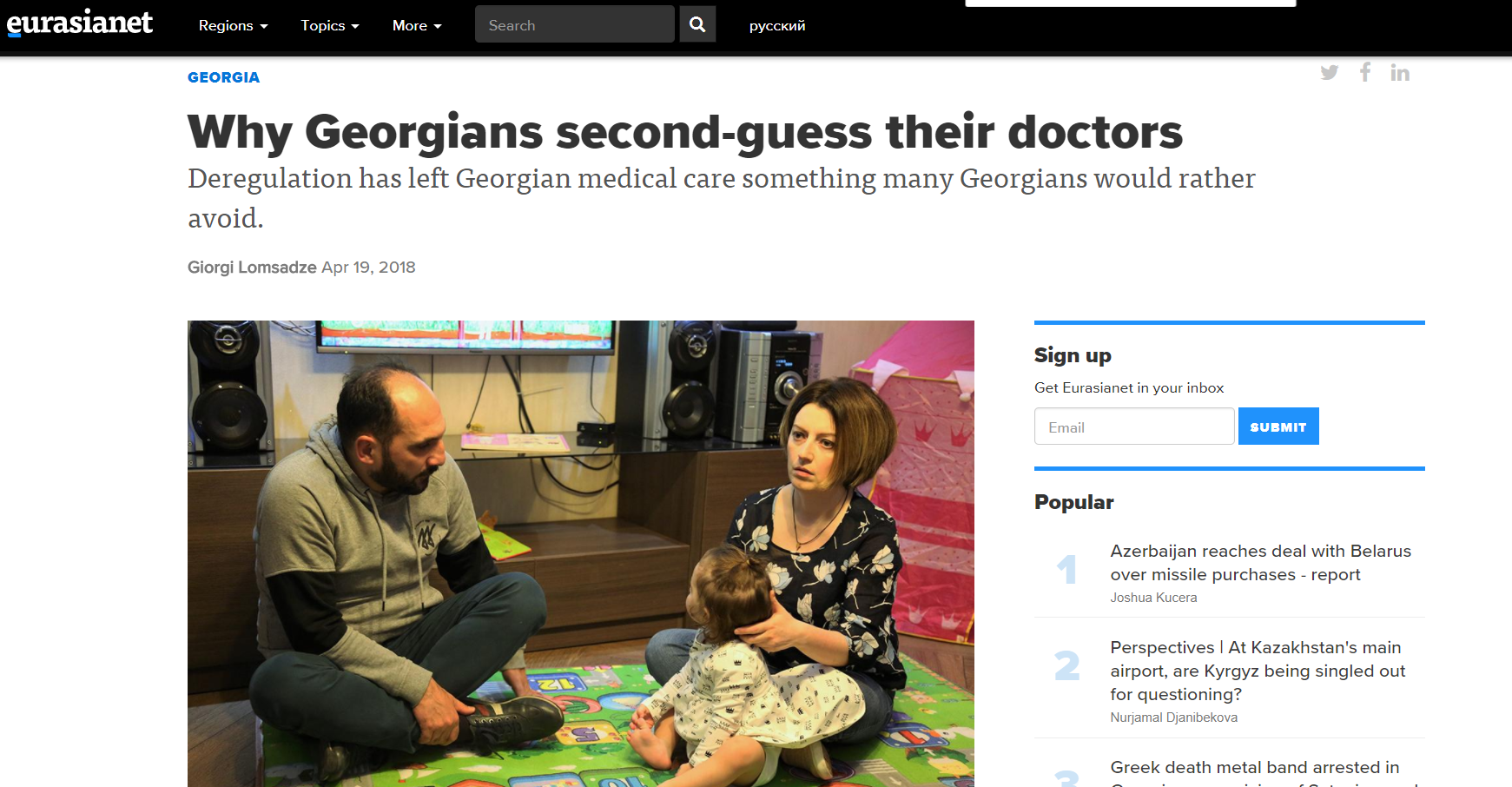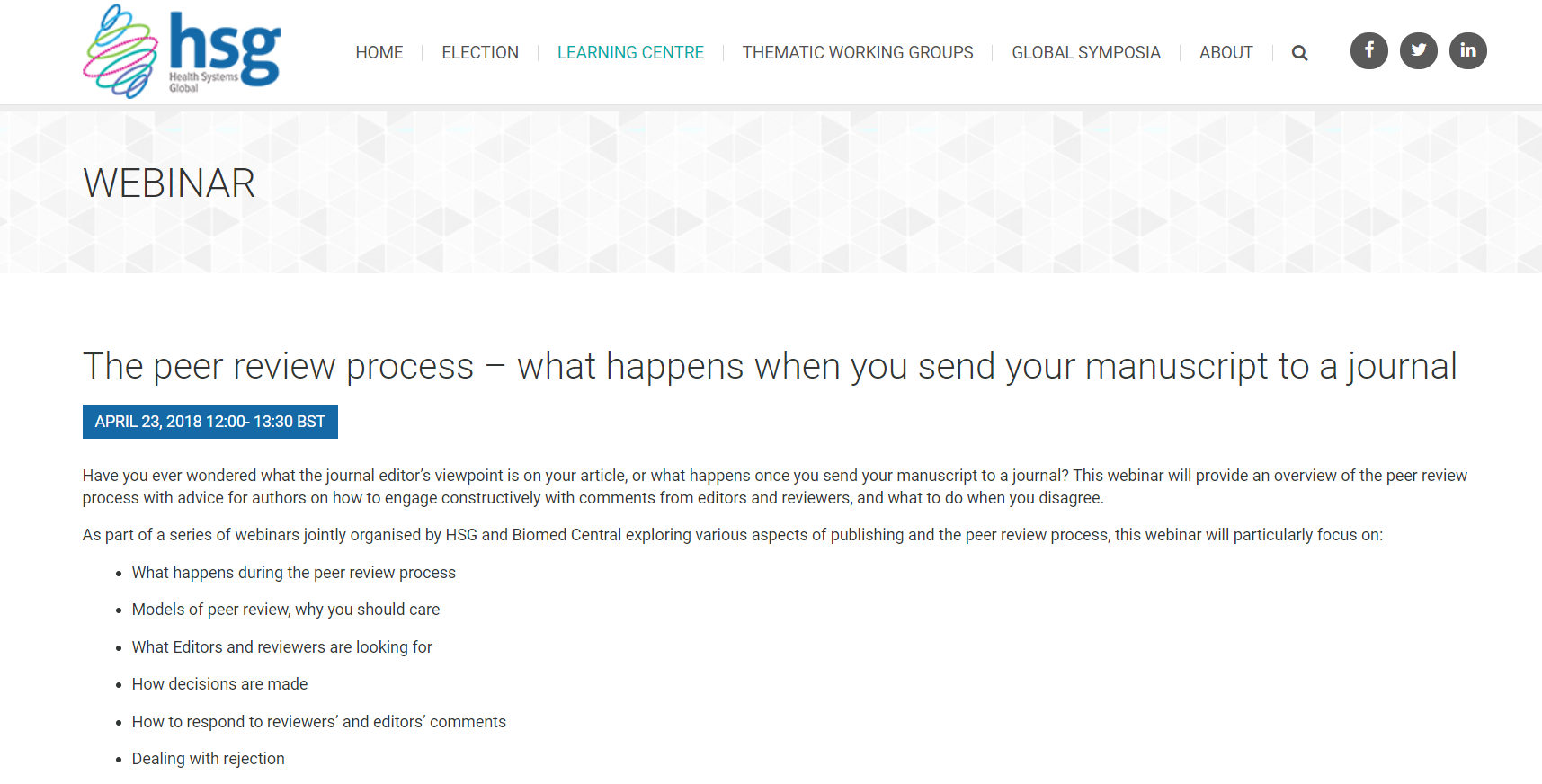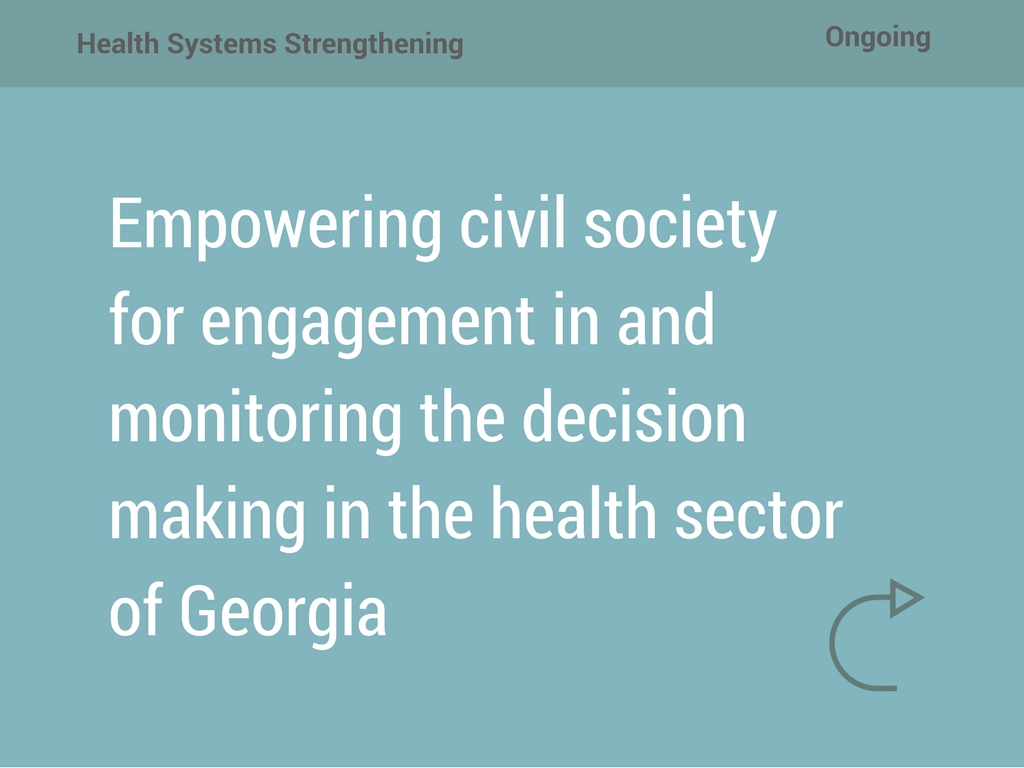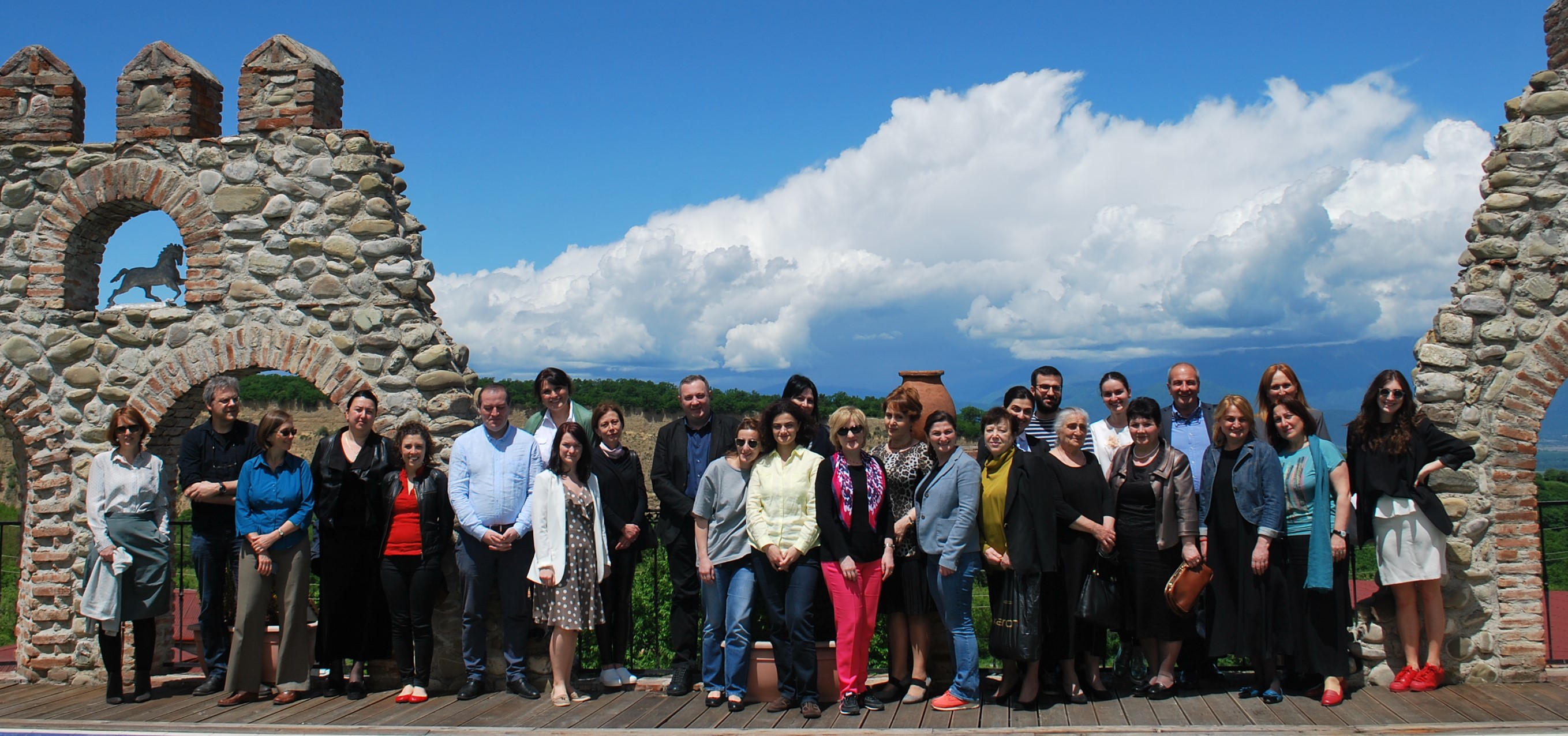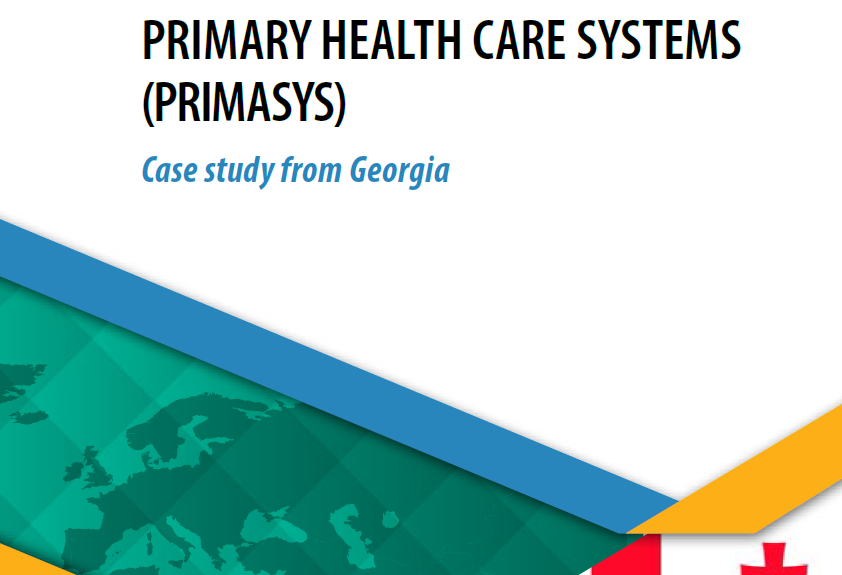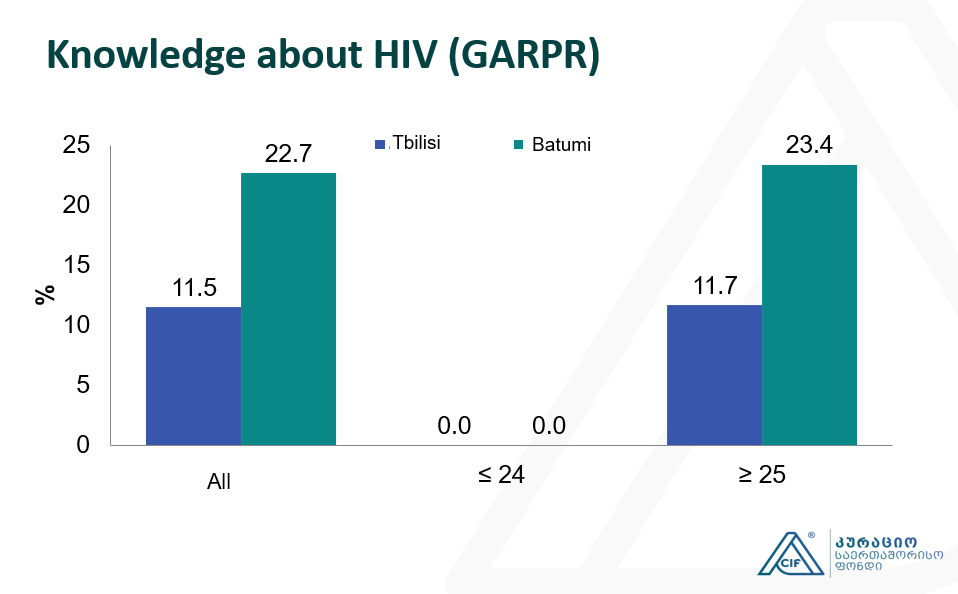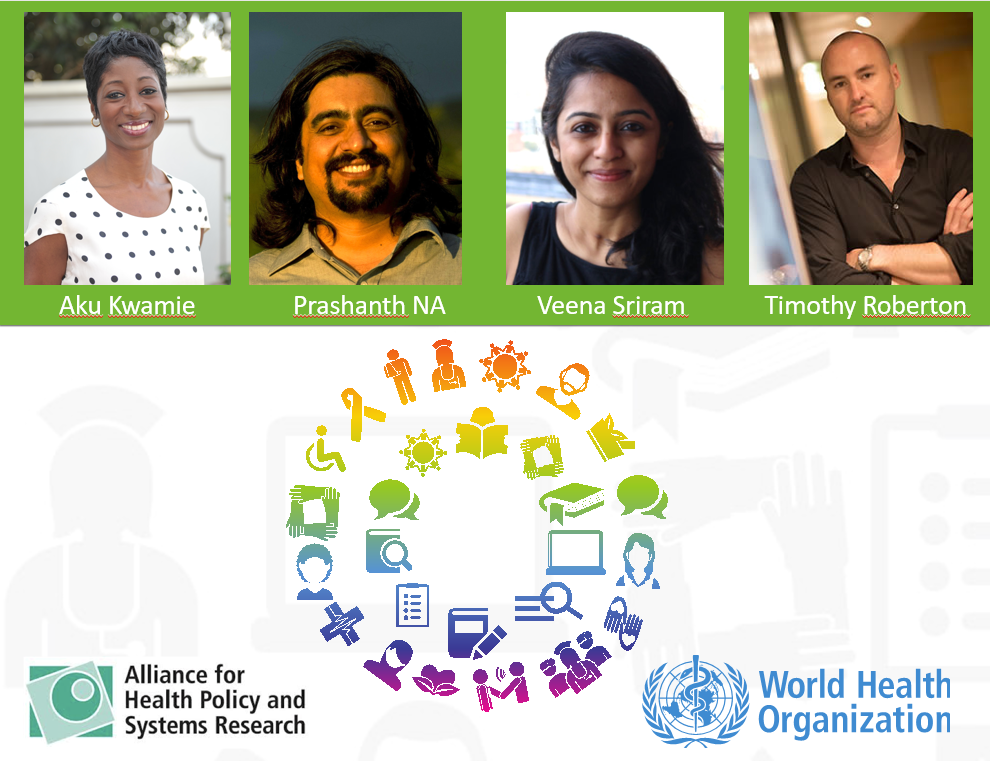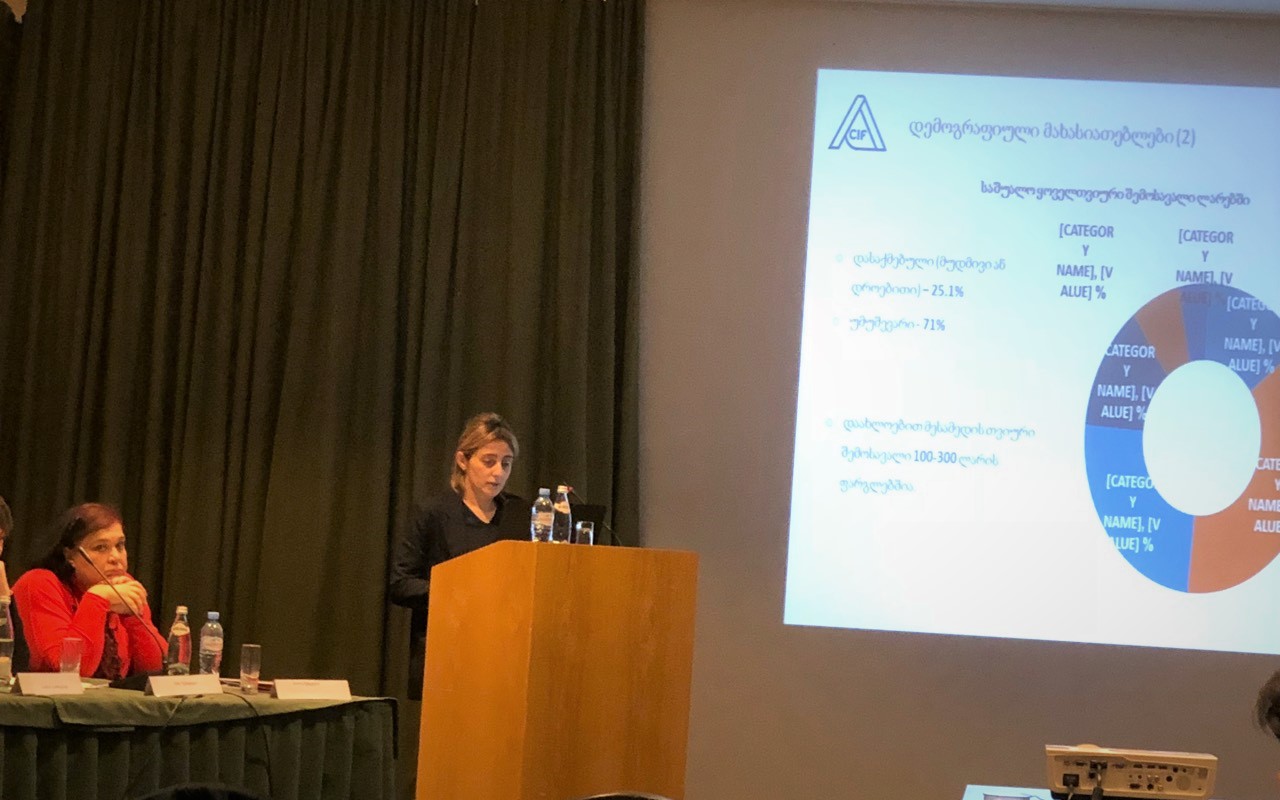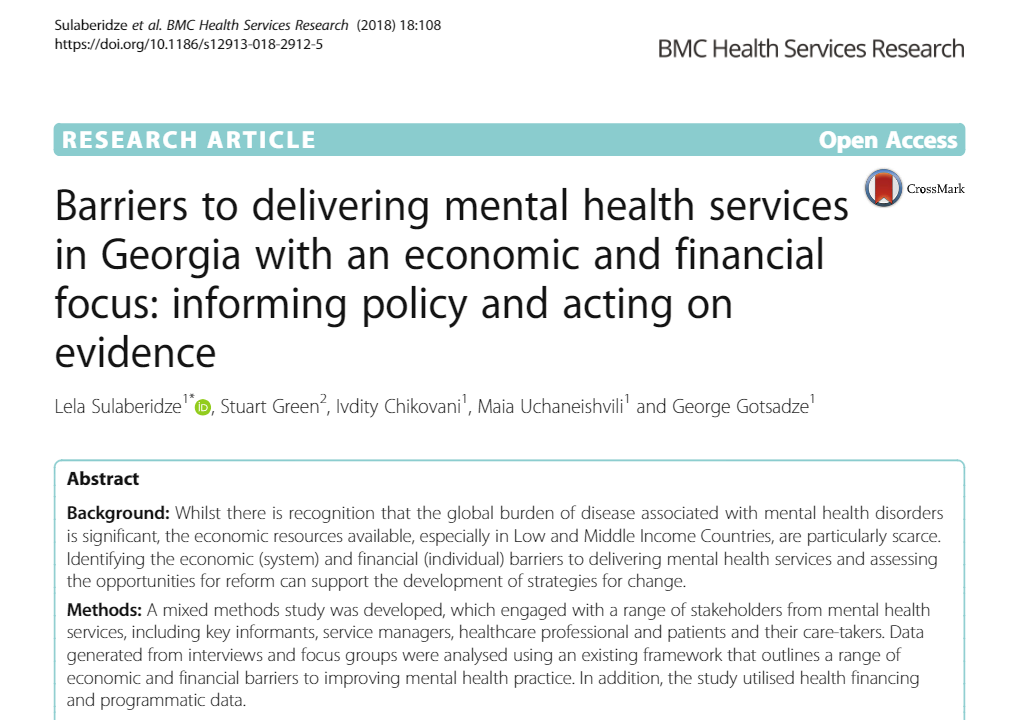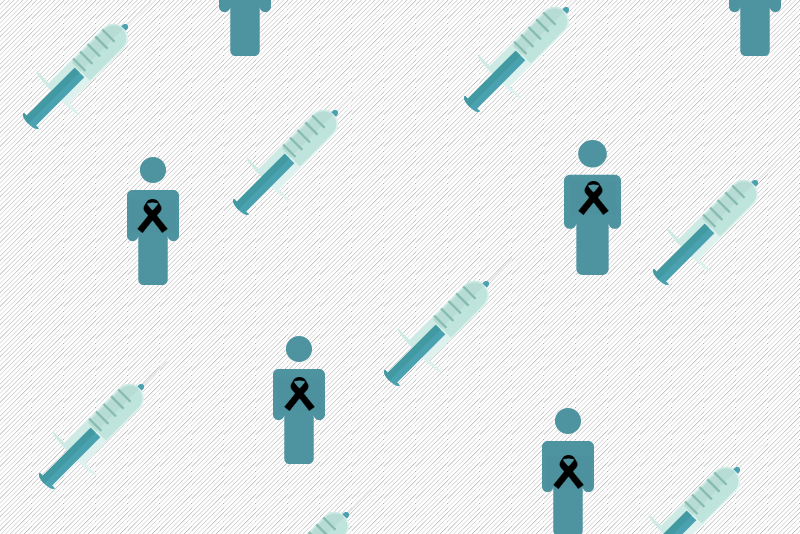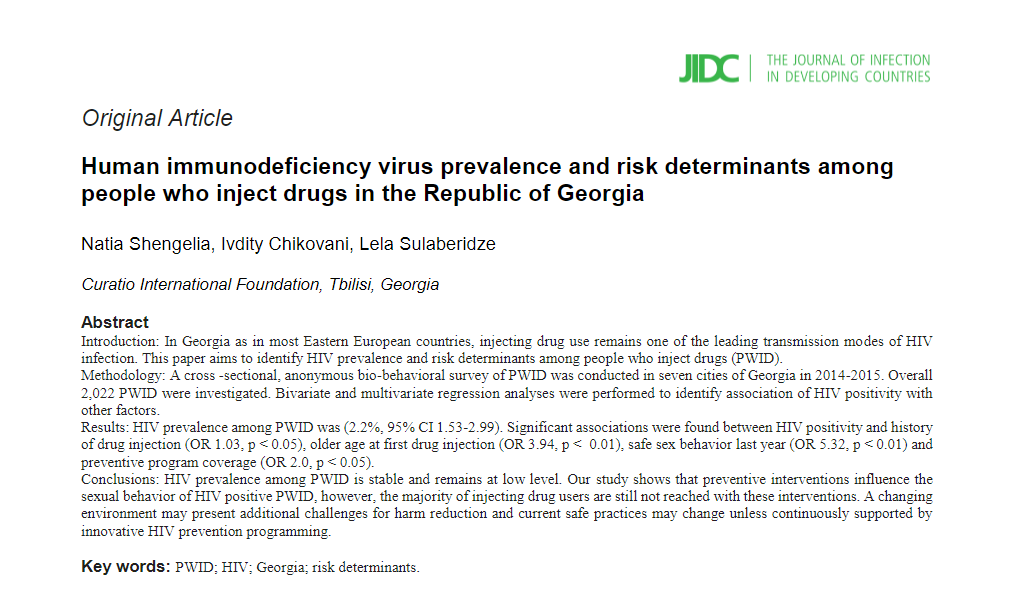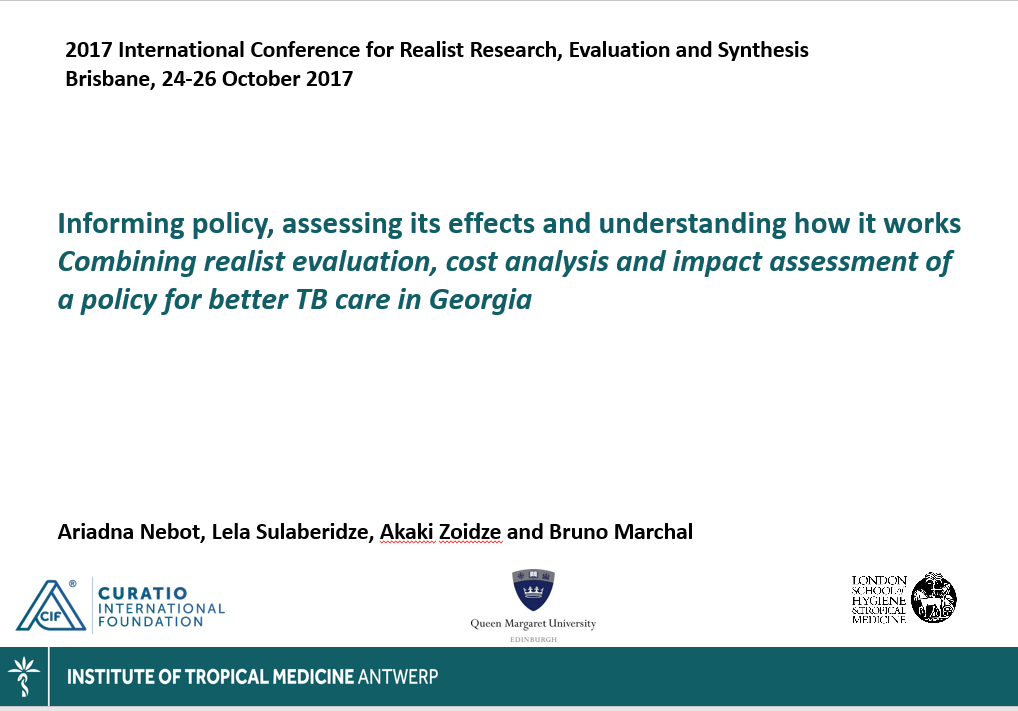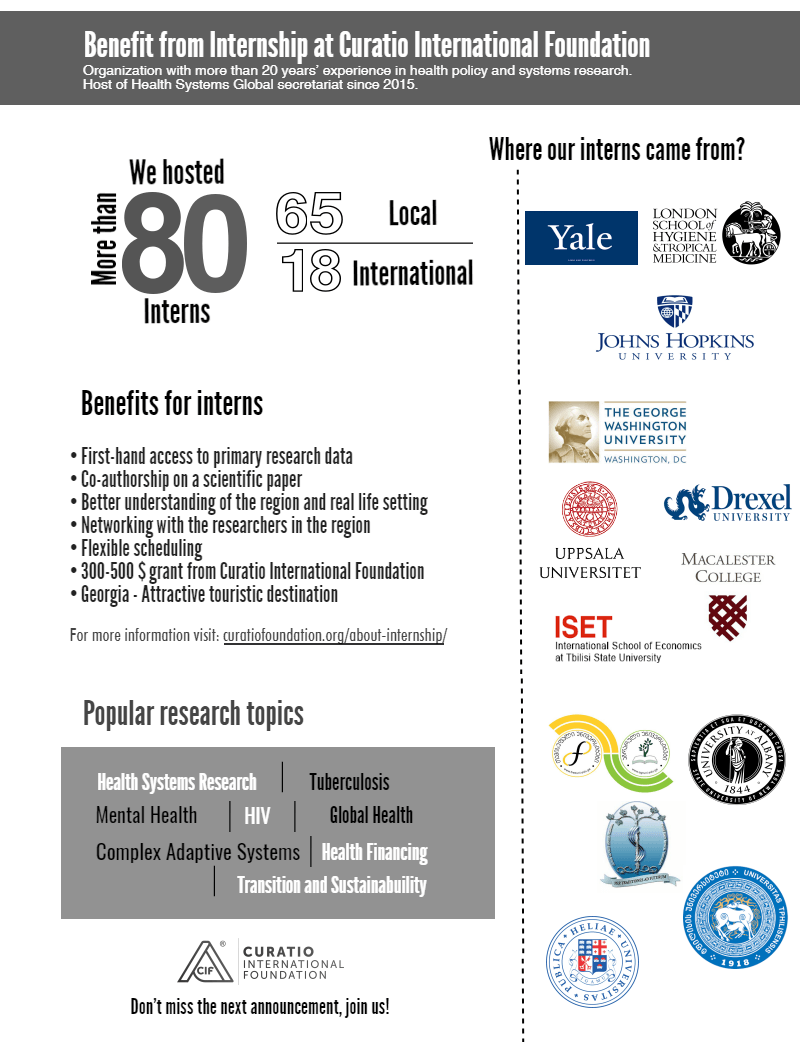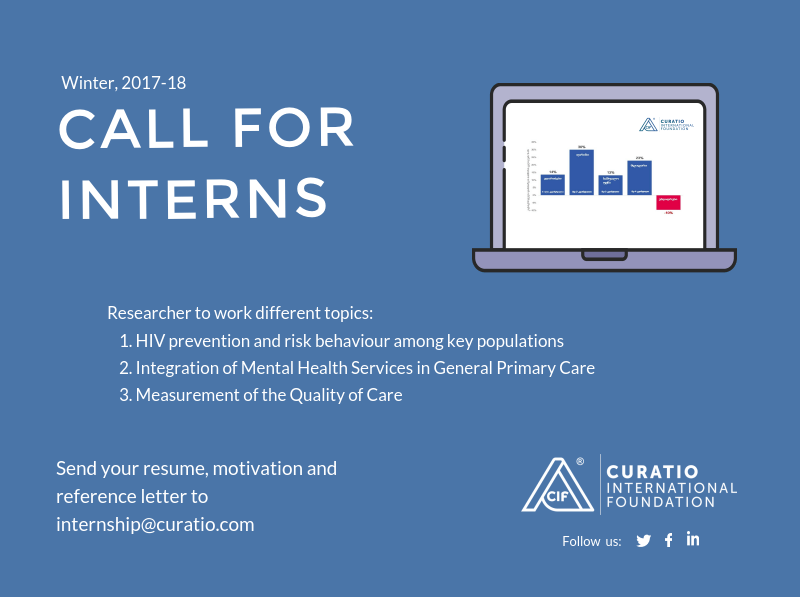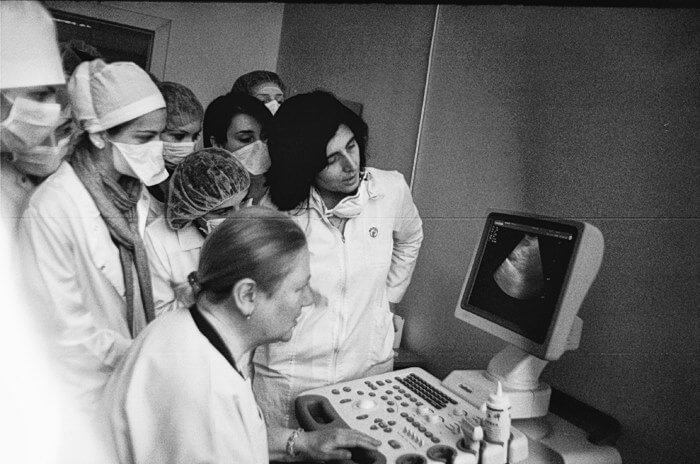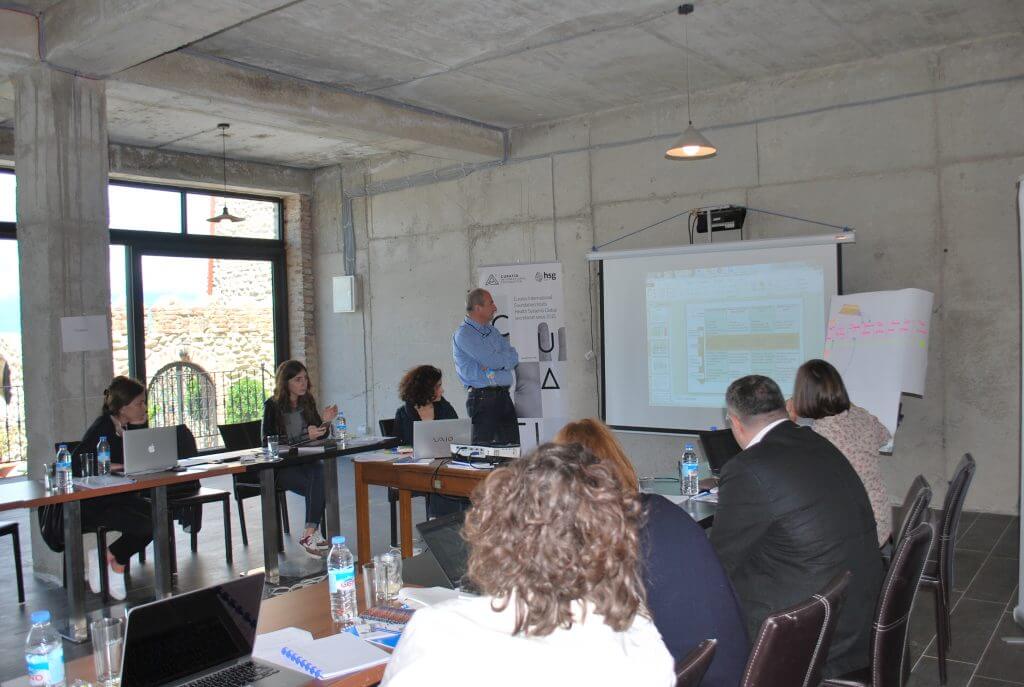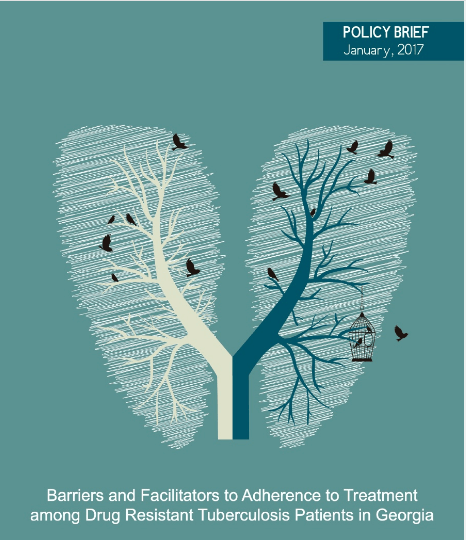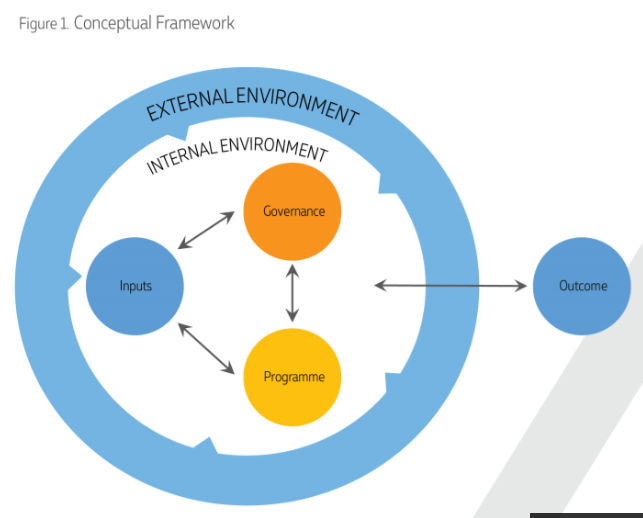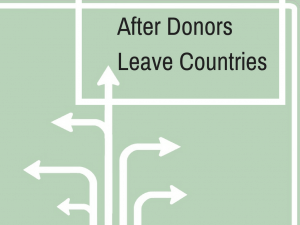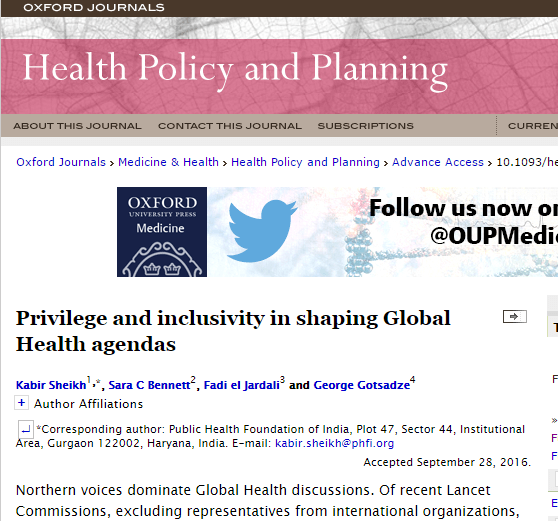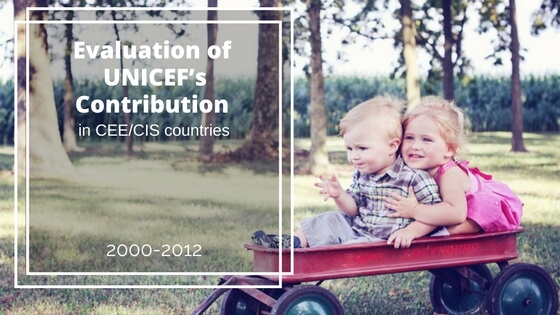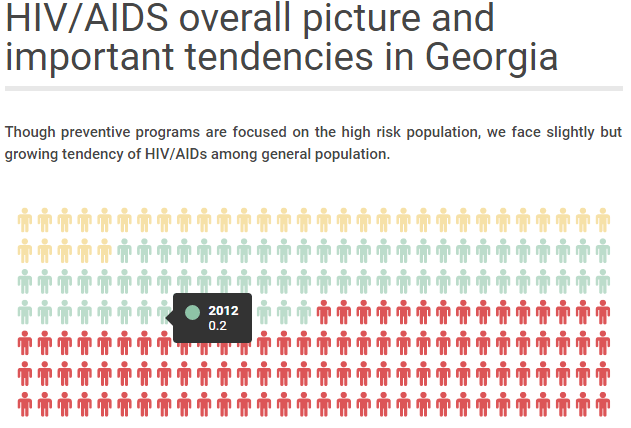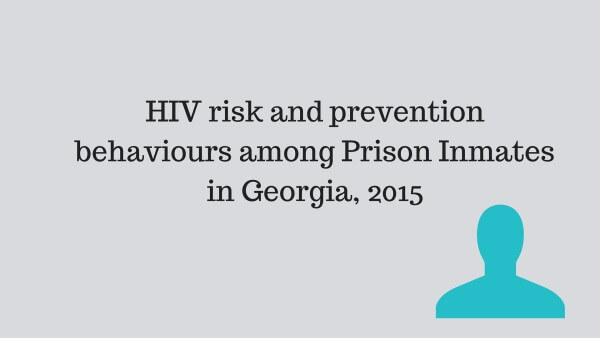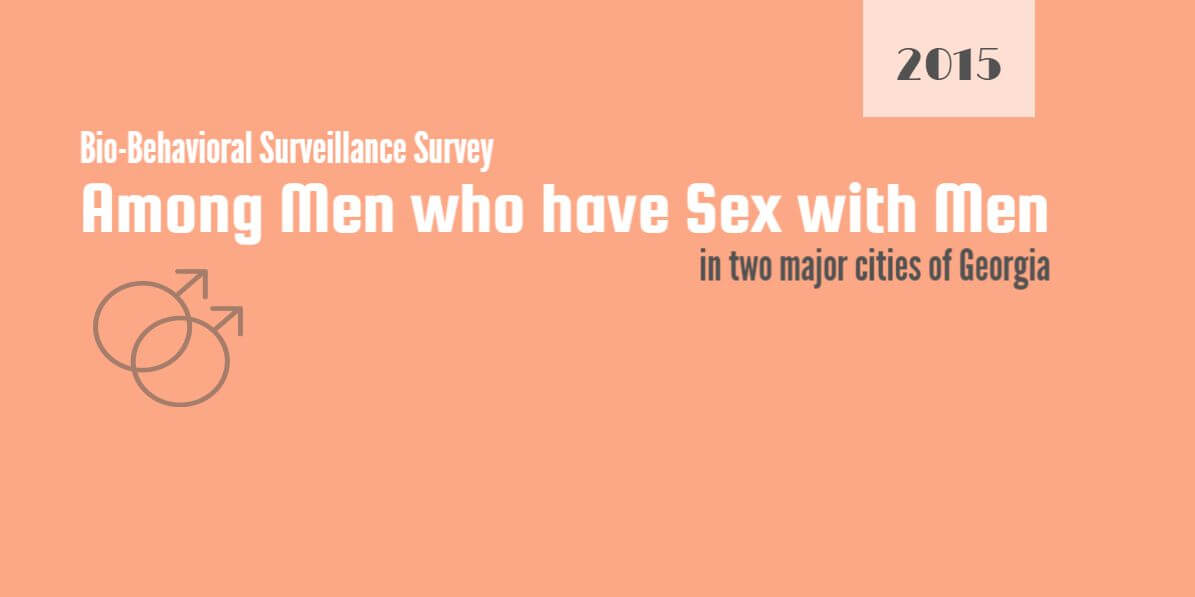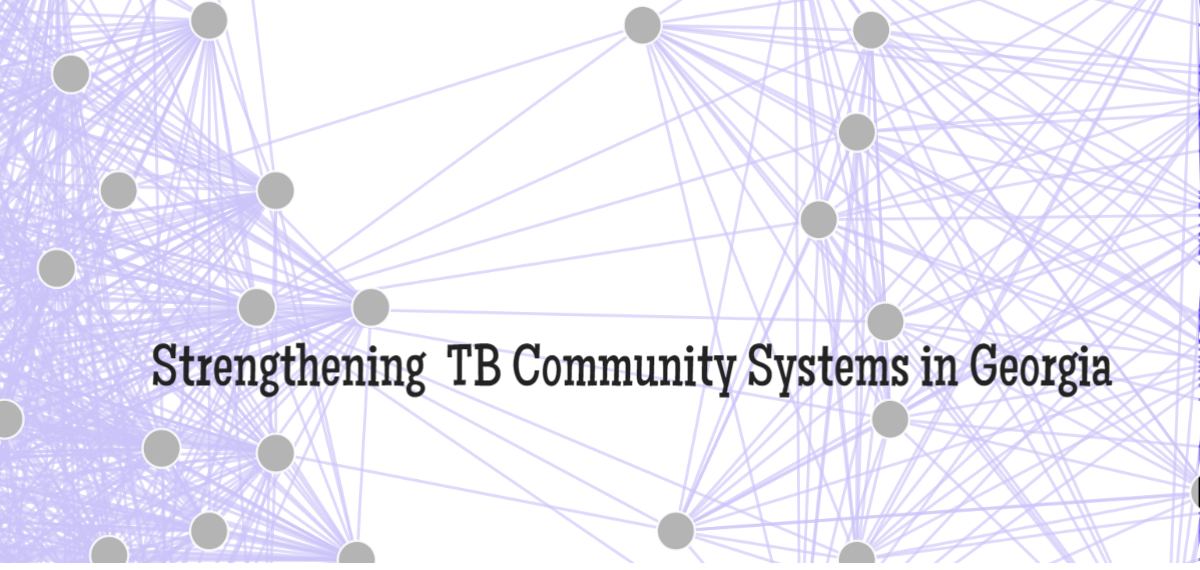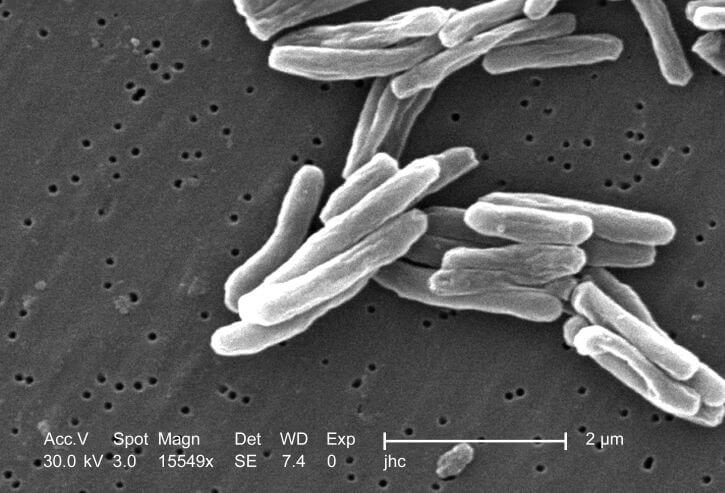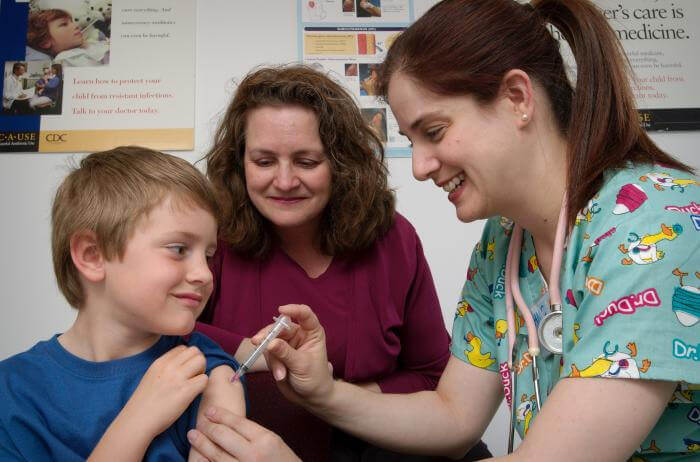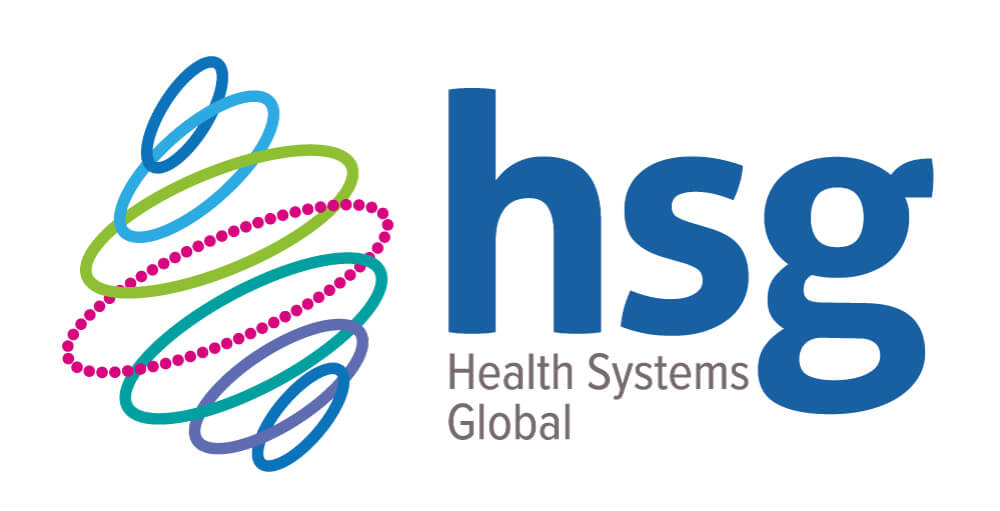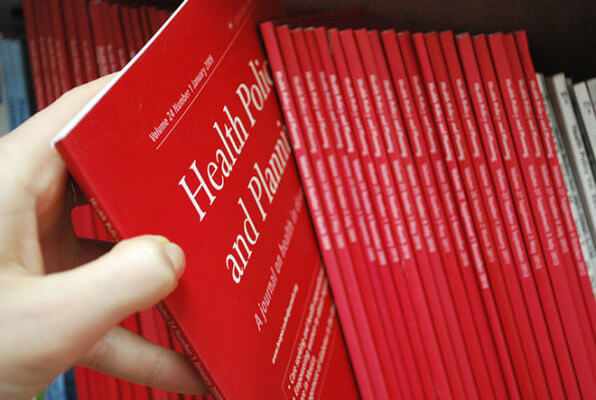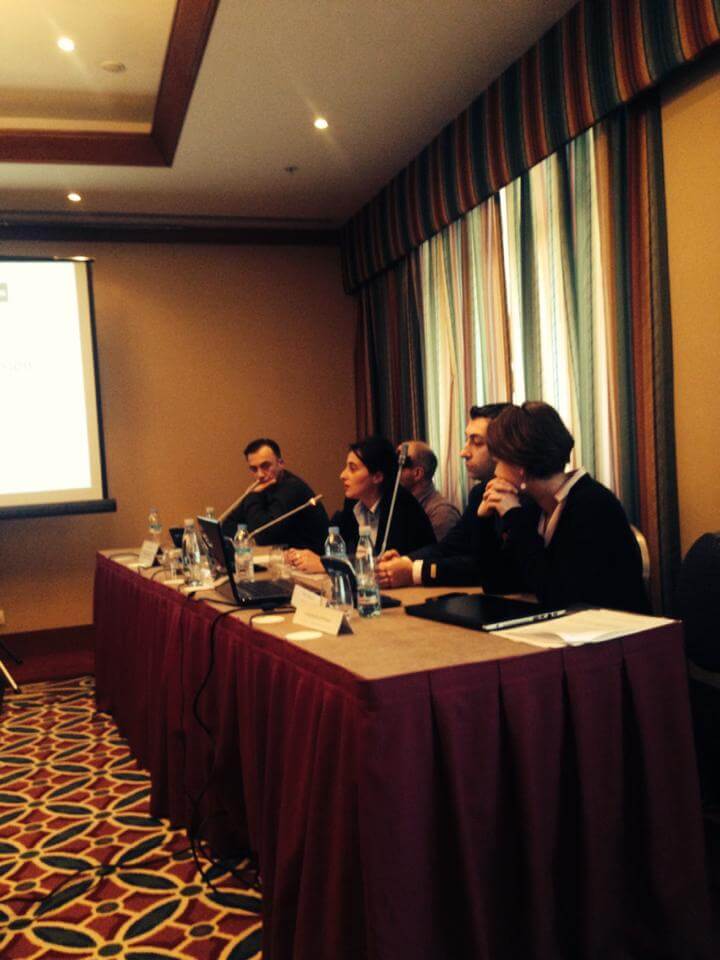The Interview on population size and Human Immunodeficiency Virus risk behaviors of People who Inject Drugs in Georgia
The interview is based on the latest wave of the integrated Bio- behavioral surveillance survey conducted People Who Inject drugs (PWID) in 7 cities of Georgia. The research aims to measure the prevalence of Human Immunodeficiency Virus (HIV) and Hepatitis C virus (HCV) among PWID, define key risk behaviors related to HIV and generate evidence for advocacy and policy development.
The research was conducted in cooperation with the Bemoni Public Union and with the financial support of the Global Fund to Fight AIDS, Tuberculosis and Malaria.
Curatio International Foundation is grateful to Tamar Sirbiladze, the technical expert of the study for answering the questions.
1. What is the estimated number of drug users and related trend in the country?
According to the latest survey the estimated number of injecting drug users is 52,500. The rate of prevalence among adults (18-65 years old) is 2,24%. This is a rather high rate – we come third after Seychelles and Russia with the number of problem drug users. It should be emphasized that there is a clear trend of a steady increase in the number of PWID – such survey has been conducted in Georgia since 2009 and every two years the number of people who inject drugs increases by several thousand people.
2. Which drugs are used mostly? Has anything changed compared to previous surveys?
Buprenorphine (Subutex and Suboxone) and heroine, especially its cheap variety – raw heroine (not pure heroine) are leading injecting drugs. Compared to the previous waive of the survey (2014), Buprenorphine consumption has almost doubled, while the heroine consumption rate has slightly decreased; the level of use of homemade injecting drugs prepared through mixing different medications bought from pharmacies – so-called Krokodil (Desomorphine), Vint (Methamphetamine) and Jeff (Methcathinone) – has sharply decreased. And a new injection drug has appeared – the so-called ‘niddles’ (‘Ephedra Vint’, the injecting drug prepared from evergreen Ephedra bush needles having a stimulating effect).
As for non-injecting psychoactive substances, consumption of cannabis (marijuana) and psychoactive medications is still very common among this population. Basically, they use psychoactive drugs with a dizzying effect. It should be noted that compared to previous years the rate of use of these medications has decreased.
3. Which risk behaviors are associated with PWID? What about a sharing practice?
In terms of the risk of HIV infection, PWID behaviors are basically divided into two groups. These are risk behaviors related to drug injection and sexual behaviors. Compared to previous surveys, the proportion of safe injection became better in every city; the practice of sharing previousely used needles/syringes and other injecting equipment has decreased. As for a sexual behavior, condom use with paid and occasional sexual partner is high, however, using condom with a regular sexual partner still presents a problem.
4. How would you evaluate the current situation with HIV and Hepatitis C prevalence?
It should be noted that the prevalence of HCV among PWI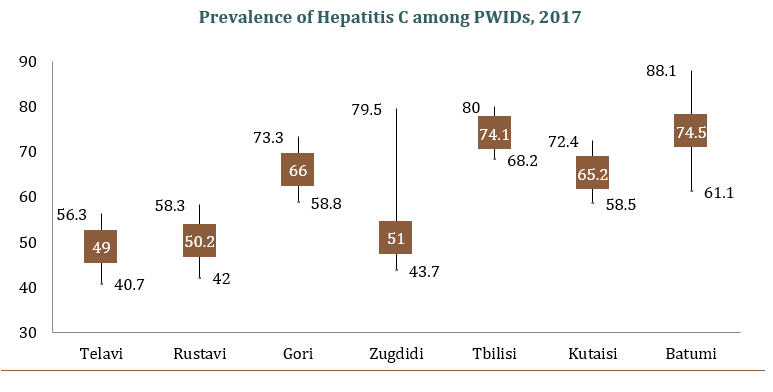 D is much higher compared to HIV.
D is much higher compared to HIV.
The average indicator of HIV prevalence has actually not changed since 2015; the survey revealed 47 confirmed HIV positive cases. The previous waives of the bio-behavioral surveilence survey also demonstrated a high prevalence of Hepatitis C virus.
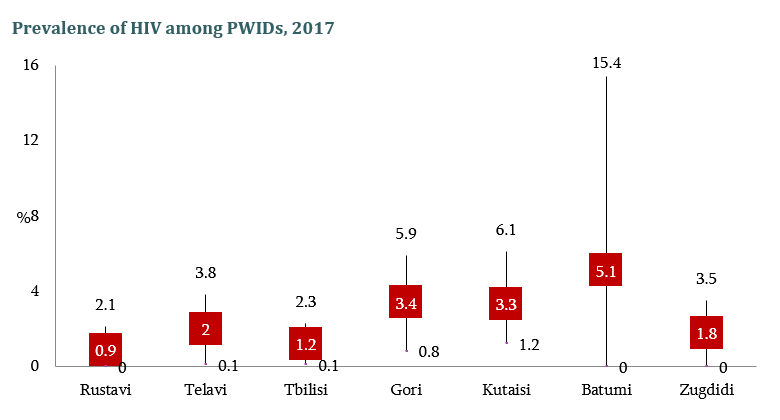
Download the study findings: HIV risk and prevention behaviors among People Who Inject Drugs in seven cities of Georgia, 2017
5. Which cities in Georgia have a high prevalence of HIV and Hepatitis C?
According to the survey, Batumi has the highest HIV and HCV prevalence rate among the seven cities of the survey. Gori and Kutaisi also have leading positions in terms of HIV prevalence; the survey showed a decrease of HIV prevalence in Zugdidi in 2017, which had the highest rates during the previous two waives. Rustavi has the HIV lowest prevalence. The prevalence of HCV is also high in Tbilisi, Gori and Kutaisi, while Telavi has the lowest indicator.
6. 27% of study population have never been tested for Hepatitis C. Should we raise PWID awareness of the existing risks?
It is necessary to inform general population and especially the injecting drug user population about testing for Hepatitis C as well as about treatment. Unfortunately, the population has wrong opinions and views about the Hepatitis C elimination program. Some of our respondents are afraid to be involved in the program because of negative stereotypes associated with the treatment and, therefore they do not get tested either. Other drug users cannot get tests because they cannot afford clinical, laboratory and instrumental examinations.
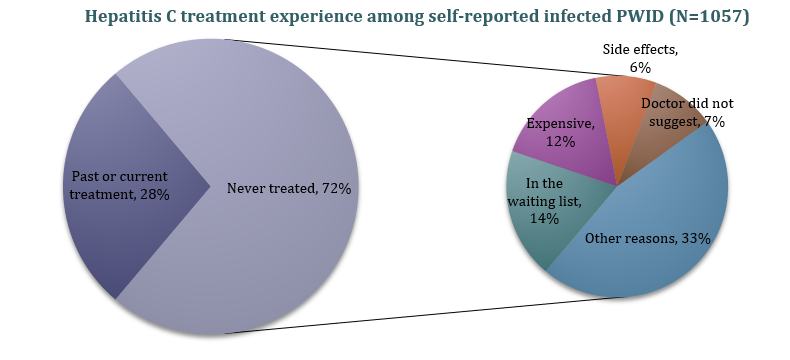
7. According to the survey, 71% of PWID are unemployed and an average monthly income of the one third of respondents ranges from GEL 100 to GEL 300. Is this factor related to the risk behaviors the survey focuses on?
This is a rather interesting question, however our survey cannot answer this question. Generally, it is rather difficult to answer the question why people engage in behaviours posing risk to their health. There is a combination of a number of factors. One of the factors in term of PWID is the way of preparing a drug – if a drug solution is prepared in a common vessel, the risk of sharing injection equipment is higher; frequency of injection is another factor – the more frequently the person injects drugs, the higher is the probability of risky injection behaviors. Peer norms and views, level of awareness etc. also affect drug use behaviors. Coming back to your question, it is widely known that people with a higher social and economic status take much better care of their health.
8. The age of initial drug use for injecting and non-injecting drugs are 19 and 16 respectively, is this compatible with the global statistics?
According to our surveys, the age of initial drug use and injection has actually not changed since 2009. The figures do not differ much from other countries’ data.
9. According to the survey, the level of referral to narcological institutions is low. Almost half of respondents (47%) says that they do not want to undergo treatment. Does this figure indicate some gaps in access to the service or can it be explained by other factors?
We should point out in the first place that a wide range of behaviors related to drug use can be divided into two main categories in medical terms: casual drug use and drug addiction. Those people who do not use drugs regularly are not addicted, therefore they do not need treatment. As for drug addiction, i.e. the people who do need treatment, the main obstacle for them is access to treatment services – the number of hospital beds for this category of patients is limited. There is a sharp imbalance between the center and a region in terms of access to a respective service. The number of patients financed nationwide is limited. Therefore, patients have to wait for a long time to get a free treatment. Currently, the majority of drug addicts have to cover treatment costs themselves, which is one of the key obstacles to the treatment.
Latest News
Integrated Bio-behavioral surveillance and population size estimation survey among Female Sex Workers in Tbilisi and Batumi, Georgia, in 2024
The interview is based on the latest wave of the integrated Bio- behavioral surveillance survey conducted People Who Inject drugs (PWID) in 7 cities of Georgia. The research aims to mesure the prevalence of Human Immunodeficiency Virus (HIV) and Hepatitis C virus (HCV) among PWID, define key risk behaviors related to HIV and generate evidence for advocacy and policy development.
Curatio International Foundation at Eighth Global Symposium on Health Systems Research (HSR2024)
The interview is based on the latest wave of the integrated Bio- behavioral surveillance survey conducted People Who Inject drugs (PWID) in 7 cities of Georgia. The research aims to mesure the prevalence of Human Immunodeficiency Virus (HIV) and Hepatitis C virus (HCV) among PWID, define key risk behaviors related to HIV and generate evidence for advocacy and policy development.
“The Informatics and Data Science for Public Health: Sustainment Plan for Skilled Labor Force Development”
The interview is based on the latest wave of the integrated Bio- behavioral surveillance survey conducted People Who Inject drugs (PWID) in 7 cities of Georgia. The research aims to mesure the prevalence of Human Immunodeficiency Virus (HIV) and Hepatitis C virus (HCV) among PWID, define key risk behaviors related to HIV and generate evidence for advocacy and policy development.
Janina Stauke from the London School of Hygiene and Tropical Medicine shares her internship experience
The interview is based on the latest wave of the integrated Bio- behavioral surveillance survey conducted People Who Inject drugs (PWID) in 7 cities of Georgia. The research aims to mesure the prevalence of Human Immunodeficiency Virus (HIV) and Hepatitis C virus (HCV) among PWID, define key risk behaviors related to HIV and generate evidence for advocacy and policy development.
Jolly Mae Catalan fromUniversité Libre de Bruxelles shares her internship experience
The interview is based on the latest wave of the integrated Bio- behavioral surveillance survey conducted People Who Inject drugs (PWID) in 7 cities of Georgia. The research aims to mesure the prevalence of Human Immunodeficiency Virus (HIV) and Hepatitis C virus (HCV) among PWID, define key risk behaviors related to HIV and generate evidence for advocacy and policy development.
Georgia’s Journey to Integrating Rehabilitation Services into the Health System: Insights and Lessons
The interview is based on the latest wave of the integrated Bio- behavioral surveillance survey conducted People Who Inject drugs (PWID) in 7 cities of Georgia. The research aims to mesure the prevalence of Human Immunodeficiency Virus (HIV) and Hepatitis C virus (HCV) among PWID, define key risk behaviors related to HIV and generate evidence for advocacy and policy development.
Report on Rehabilitation Data Flow in Georgia’s Health Information System
The interview is based on the latest wave of the integrated Bio- behavioral surveillance survey conducted People Who Inject drugs (PWID) in 7 cities of Georgia. The research aims to mesure the prevalence of Human Immunodeficiency Virus (HIV) and Hepatitis C virus (HCV) among PWID, define key risk behaviors related to HIV and generate evidence for advocacy and policy development.
Georgia: a primary health care case study in the context of the COVID-19 pandemic
The interview is based on the latest wave of the integrated Bio- behavioral surveillance survey conducted People Who Inject drugs (PWID) in 7 cities of Georgia. The research aims to mesure the prevalence of Human Immunodeficiency Virus (HIV) and Hepatitis C virus (HCV) among PWID, define key risk behaviors related to HIV and generate evidence for advocacy and policy development.
Adult vaccination in Asia and the Pacific
The interview is based on the latest wave of the integrated Bio- behavioral surveillance survey conducted People Who Inject drugs (PWID) in 7 cities of Georgia. The research aims to mesure the prevalence of Human Immunodeficiency Virus (HIV) and Hepatitis C virus (HCV) among PWID, define key risk behaviors related to HIV and generate evidence for advocacy and policy development.
Assessment of the Quality of Maternal and Neonatal Services in Montenegro
The interview is based on the latest wave of the integrated Bio- behavioral surveillance survey conducted People Who Inject drugs (PWID) in 7 cities of Georgia. The research aims to mesure the prevalence of Human Immunodeficiency Virus (HIV) and Hepatitis C virus (HCV) among PWID, define key risk behaviors related to HIV and generate evidence for advocacy and policy development.
Barometer Study: Pharmaceutical Sector in Georgia
The interview is based on the latest wave of the integrated Bio- behavioral surveillance survey conducted People Who Inject drugs (PWID) in 7 cities of Georgia. The research aims to mesure the prevalence of Human Immunodeficiency Virus (HIV) and Hepatitis C virus (HCV) among PWID, define key risk behaviors related to HIV and generate evidence for advocacy and policy development.
Call for Internship 2024
The interview is based on the latest wave of the integrated Bio- behavioral surveillance survey conducted People Who Inject drugs (PWID) in 7 cities of Georgia. The research aims to mesure the prevalence of Human Immunodeficiency Virus (HIV) and Hepatitis C virus (HCV) among PWID, define key risk behaviors related to HIV and generate evidence for advocacy and policy development.
Georgian state rehabilitation program: implementation research study report
The interview is based on the latest wave of the integrated Bio- behavioral surveillance survey conducted People Who Inject drugs (PWID) in 7 cities of Georgia. The research aims to mesure the prevalence of Human Immunodeficiency Virus (HIV) and Hepatitis C virus (HCV) among PWID, define key risk behaviors related to HIV and generate evidence for advocacy and policy development.
NEW Barometer, study focusing on the pharmaceutical sector
The interview is based on the latest wave of the integrated Bio- behavioral surveillance survey conducted People Who Inject drugs (PWID) in 7 cities of Georgia. The research aims to mesure the prevalence of Human Immunodeficiency Virus (HIV) and Hepatitis C virus (HCV) among PWID, define key risk behaviors related to HIV and generate evidence for advocacy and policy development.
Strengthening Health Systems for Accessible Rehabilitation Services in Georgia
The interview is based on the latest wave of the integrated Bio- behavioral surveillance survey conducted People Who Inject drugs (PWID) in 7 cities of Georgia. The research aims to mesure the prevalence of Human Immunodeficiency Virus (HIV) and Hepatitis C virus (HCV) among PWID, define key risk behaviors related to HIV and generate evidence for advocacy and policy development.
Linked’s workshop on HPV vaccine introduction and scale up, held on July 11-12th, 2023
The interview is based on the latest wave of the integrated Bio- behavioral surveillance survey conducted People Who Inject drugs (PWID) in 7 cities of Georgia. The research aims to mesure the prevalence of Human Immunodeficiency Virus (HIV) and Hepatitis C virus (HCV) among PWID, define key risk behaviors related to HIV and generate evidence for advocacy and policy development.
Training program focusing on interdisciplinary evaluation of rehabilitation interventions and patient outcomes
The interview is based on the latest wave of the integrated Bio- behavioral surveillance survey conducted People Who Inject drugs (PWID) in 7 cities of Georgia. The research aims to mesure the prevalence of Human Immunodeficiency Virus (HIV) and Hepatitis C virus (HCV) among PWID, define key risk behaviors related to HIV and generate evidence for advocacy and policy development.
Unlocking Success Through Learning: Workshop on Strengthening HR Capacity and Performance Management in Immunization
The interview is based on the latest wave of the integrated Bio- behavioral surveillance survey conducted People Who Inject drugs (PWID) in 7 cities of Georgia. The research aims to mesure the prevalence of Human Immunodeficiency Virus (HIV) and Hepatitis C virus (HCV) among PWID, define key risk behaviors related to HIV and generate evidence for advocacy and policy development.
Promote evidence-based policies in the pharmaceutical sector by generating evidence and fostering civic engagement
The interview is based on the latest wave of the integrated Bio- behavioral surveillance survey conducted People Who Inject drugs (PWID) in 7 cities of Georgia. The research aims to mesure the prevalence of Human Immunodeficiency Virus (HIV) and Hepatitis C virus (HCV) among PWID, define key risk behaviors related to HIV and generate evidence for advocacy and policy development.
CIF and the Results for Development / Accelerator combined their expertise to co-author an insightful blog, shedding light on Georgia’s commendable efforts to overcome limited data challenges and develop evidence-based policies for financing rehabilitation services
The interview is based on the latest wave of the integrated Bio- behavioral surveillance survey conducted People Who Inject drugs (PWID) in 7 cities of Georgia. The research aims to mesure the prevalence of Human Immunodeficiency Virus (HIV) and Hepatitis C virus (HCV) among PWID, define key risk behaviors related to HIV and generate evidence for advocacy and policy development.
Culminating event – Building Institutional Capacity for Health Policy and Systems Research and Delivery science (BIRD) in six WHO Regions
The interview is based on the latest wave of the integrated Bio- behavioral surveillance survey conducted People Who Inject drugs (PWID) in 7 cities of Georgia. The research aims to mesure the prevalence of Human Immunodeficiency Virus (HIV) and Hepatitis C virus (HCV) among PWID, define key risk behaviors related to HIV and generate evidence for advocacy and policy development.
Report on Phased (Stepwise) Plan for the Capability Development of the Priority Rehabilitation Services
The interview is based on the latest wave of the integrated Bio- behavioral surveillance survey conducted People Who Inject drugs (PWID) in 7 cities of Georgia. The research aims to mesure the prevalence of Human Immunodeficiency Virus (HIV) and Hepatitis C virus (HCV) among PWID, define key risk behaviors related to HIV and generate evidence for advocacy and policy development.
Report on prioritization of rehabilitation services in Georgia
The interview is based on the latest wave of the integrated Bio- behavioral surveillance survey conducted People Who Inject drugs (PWID) in 7 cities of Georgia. The research aims to mesure the prevalence of Human Immunodeficiency Virus (HIV) and Hepatitis C virus (HCV) among PWID, define key risk behaviors related to HIV and generate evidence for advocacy and policy development.
Report on Rehabilitation Service Costing and Budgeting
The interview is based on the latest wave of the integrated Bio- behavioral surveillance survey conducted People Who Inject drugs (PWID) in 7 cities of Georgia. The research aims to mesure the prevalence of Human Immunodeficiency Virus (HIV) and Hepatitis C virus (HCV) among PWID, define key risk behaviors related to HIV and generate evidence for advocacy and policy development.
Mental health of young people during the COVID-19 pandemic
The interview is based on the latest wave of the integrated Bio- behavioral surveillance survey conducted People Who Inject drugs (PWID) in 7 cities of Georgia. The research aims to mesure the prevalence of Human Immunodeficiency Virus (HIV) and Hepatitis C virus (HCV) among PWID, define key risk behaviors related to HIV and generate evidence for advocacy and policy development.
Promote evidence-based policies in the pharmaceutical sector by generating evidence
The interview is based on the latest wave of the integrated Bio- behavioral surveillance survey conducted People Who Inject drugs (PWID) in 7 cities of Georgia. The research aims to mesure the prevalence of Human Immunodeficiency Virus (HIV) and Hepatitis C virus (HCV) among PWID, define key risk behaviors related to HIV and generate evidence for advocacy and policy development.
Mandatory Vaccination and Green Passes – Review of International Experience
The interview is based on the latest wave of the integrated Bio- behavioral surveillance survey conducted People Who Inject drugs (PWID) in 7 cities of Georgia. The research aims to mesure the prevalence of Human Immunodeficiency Virus (HIV) and Hepatitis C virus (HCV) among PWID, define key risk behaviors related to HIV and generate evidence for advocacy and policy development.
Sustaining Public Health Gains after Donor Transition: What can we learn about Georgia?
The interview is based on the latest wave of the integrated Bio- behavioral surveillance survey conducted People Who Inject drugs (PWID) in 7 cities of Georgia. The research aims to mesure the prevalence of Human Immunodeficiency Virus (HIV) and Hepatitis C virus (HCV) among PWID, define key risk behaviors related to HIV and generate evidence for advocacy and policy development.
Curatio International Foundation at Seventh Global Symposium on Health Systems Research (HSR2022)
The interview is based on the latest wave of the integrated Bio- behavioral surveillance survey conducted People Who Inject drugs (PWID) in 7 cities of Georgia. The research aims to mesure the prevalence of Human Immunodeficiency Virus (HIV) and Hepatitis C virus (HCV) among PWID, define key risk behaviors related to HIV and generate evidence for advocacy and policy development.
Curatio International Foundation at Global Symposium on Health Systems Research
The interview is based on the latest wave of the integrated Bio- behavioral surveillance survey conducted People Who Inject drugs (PWID) in 7 cities of Georgia. The research aims to mesure the prevalence of Human Immunodeficiency Virus (HIV) and Hepatitis C virus (HCV) among PWID, define key risk behaviors related to HIV and generate evidence for advocacy and policy development.
EECA HIV Sustainability Summit 2022 in Tbilisi
The interview is based on the latest wave of the integrated Bio- behavioral surveillance survey conducted People Who Inject drugs (PWID) in 7 cities of Georgia. The research aims to mesure the prevalence of Human Immunodeficiency Virus (HIV) and Hepatitis C virus (HCV) among PWID, define key risk behaviors related to HIV and generate evidence for advocacy and policy development.
Study report: Adaptations made in TB response during Covid-19 pandemic in Georgia
The interview is based on the latest wave of the integrated Bio- behavioral surveillance survey conducted People Who Inject drugs (PWID) in 7 cities of Georgia. The research aims to mesure the prevalence of Human Immunodeficiency Virus (HIV) and Hepatitis C virus (HCV) among PWID, define key risk behaviors related to HIV and generate evidence for advocacy and policy development.
New review of our recent study on Immunization in Kazakhstan
The interview is based on the latest wave of the integrated Bio- behavioral surveillance survey conducted People Who Inject drugs (PWID) in 7 cities of Georgia. The research aims to mesure the prevalence of Human Immunodeficiency Virus (HIV) and Hepatitis C virus (HCV) among PWID, define key risk behaviors related to HIV and generate evidence for advocacy and policy development.
New case study: Sustaining effective coverage with Opioid Substitution Therapy (OST) in Georgia in the context of transition from external assistance
The interview is based on the latest wave of the integrated Bio- behavioral surveillance survey conducted People Who Inject drugs (PWID) in 7 cities of Georgia. The research aims to mesure the prevalence of Human Immunodeficiency Virus (HIV) and Hepatitis C virus (HCV) among PWID, define key risk behaviors related to HIV and generate evidence for advocacy and policy development.
New case study: National Immunisation Program Transition from external assistance
The interview is based on the latest wave of the integrated Bio- behavioral surveillance survey conducted People Who Inject drugs (PWID) in 7 cities of Georgia. The research aims to mesure the prevalence of Human Immunodeficiency Virus (HIV) and Hepatitis C virus (HCV) among PWID, define key risk behaviors related to HIV and generate evidence for advocacy and policy development.
“Strengthening Health Systems for Accessible Rehabilitation Services in Georgia” – Workshop
The interview is based on the latest wave of the integrated Bio- behavioral surveillance survey conducted People Who Inject drugs (PWID) in 7 cities of Georgia. The research aims to mesure the prevalence of Human Immunodeficiency Virus (HIV) and Hepatitis C virus (HCV) among PWID, define key risk behaviors related to HIV and generate evidence for advocacy and policy development.
Strengthening the Delivery of Immunisation Services Through PHC Platforms-Workshop
The interview is based on the latest wave of the integrated Bio- behavioral surveillance survey conducted People Who Inject drugs (PWID) in 7 cities of Georgia. The research aims to mesure the prevalence of Human Immunodeficiency Virus (HIV) and Hepatitis C virus (HCV) among PWID, define key risk behaviors related to HIV and generate evidence for advocacy and policy development.
Call for internship 2022
The interview is based on the latest wave of the integrated Bio- behavioral surveillance survey conducted People Who Inject drugs (PWID) in 7 cities of Georgia. The research aims to mesure the prevalence of Human Immunodeficiency Virus (HIV) and Hepatitis C virus (HCV) among PWID, define key risk behaviors related to HIV and generate evidence for advocacy and policy development.
New Article published in the journal Frontiers in Public Health
The interview is based on the latest wave of the integrated Bio- behavioral surveillance survey conducted People Who Inject drugs (PWID) in 7 cities of Georgia. The research aims to mesure the prevalence of Human Immunodeficiency Virus (HIV) and Hepatitis C virus (HCV) among PWID, define key risk behaviors related to HIV and generate evidence for advocacy and policy development.
New Paper: A transdiagnostic psychosocial prevention-intervention service for young people in the Republic of Georgia
The interview is based on the latest wave of the integrated Bio- behavioral surveillance survey conducted People Who Inject drugs (PWID) in 7 cities of Georgia. The research aims to mesure the prevalence of Human Immunodeficiency Virus (HIV) and Hepatitis C virus (HCV) among PWID, define key risk behaviors related to HIV and generate evidence for advocacy and policy development.
Vaccine Procurement and Supply for the Expanded Program of Immunization in Kazakhstan
The interview is based on the latest wave of the integrated Bio- behavioral surveillance survey conducted People Who Inject drugs (PWID) in 7 cities of Georgia. The research aims to mesure the prevalence of Human Immunodeficiency Virus (HIV) and Hepatitis C virus (HCV) among PWID, define key risk behaviors related to HIV and generate evidence for advocacy and policy development.
Prevention of Addiction and Mental Health in Adolescents in Georgia (PAMAd) – Workshop
The interview is based on the latest wave of the integrated Bio- behavioral surveillance survey conducted People Who Inject drugs (PWID) in 7 cities of Georgia. The research aims to mesure the prevalence of Human Immunodeficiency Virus (HIV) and Hepatitis C virus (HCV) among PWID, define key risk behaviors related to HIV and generate evidence for advocacy and policy development.
Workshop to discuss the risk assessment of future TB migrants
The interview is based on the latest wave of the integrated Bio- behavioral surveillance survey conducted People Who Inject drugs (PWID) in 7 cities of Georgia. The research aims to mesure the prevalence of Human Immunodeficiency Virus (HIV) and Hepatitis C virus (HCV) among PWID, define key risk behaviors related to HIV and generate evidence for advocacy and policy development.
Webinar : Matters of Scale and Integration in Digital Health Ecosystems
The interview is based on the latest wave of the integrated Bio- behavioral surveillance survey conducted People Who Inject drugs (PWID) in 7 cities of Georgia. The research aims to mesure the prevalence of Human Immunodeficiency Virus (HIV) and Hepatitis C virus (HCV) among PWID, define key risk behaviors related to HIV and generate evidence for advocacy and policy development.
Immunisation Action Network
The interview is based on the latest wave of the integrated Bio- behavioral surveillance survey conducted People Who Inject drugs (PWID) in 7 cities of Georgia. The research aims to mesure the prevalence of Human Immunodeficiency Virus (HIV) and Hepatitis C virus (HCV) among PWID, define key risk behaviors related to HIV and generate evidence for advocacy and policy development.
Data Analysis and Synthesis Workshop – analyzing the implications of the structure of Georgia’s private healthcare market for quality and accessibility
The interview is based on the latest wave of the integrated Bio- behavioral surveillance survey conducted People Who Inject drugs (PWID) in 7 cities of Georgia. The research aims to mesure the prevalence of Human Immunodeficiency Virus (HIV) and Hepatitis C virus (HCV) among PWID, define key risk behaviors related to HIV and generate evidence for advocacy and policy development.
External Reference Pricing Policy: A Possible Pharmaceutical Price Regulation Policy in Georgia
The interview is based on the latest wave of the integrated Bio- behavioral surveillance survey conducted People Who Inject drugs (PWID) in 7 cities of Georgia. The research aims to mesure the prevalence of Human Immunodeficiency Virus (HIV) and Hepatitis C virus (HCV) among PWID, define key risk behaviors related to HIV and generate evidence for advocacy and policy development.
Rapid reviews of health policy and systems evidence
The interview is based on the latest wave of the integrated Bio- behavioral surveillance survey conducted People Who Inject drugs (PWID) in 7 cities of Georgia. The research aims to mesure the prevalence of Human Immunodeficiency Virus (HIV) and Hepatitis C virus (HCV) among PWID, define key risk behaviors related to HIV and generate evidence for advocacy and policy development.
Paper: Soviet legacy is still pervasive in health policy and systems research in the post-Soviet states
The interview is based on the latest wave of the integrated Bio- behavioral surveillance survey conducted People Who Inject drugs (PWID) in 7 cities of Georgia. The research aims to mesure the prevalence of Human Immunodeficiency Virus (HIV) and Hepatitis C virus (HCV) among PWID, define key risk behaviors related to HIV and generate evidence for advocacy and policy development.
Strategic Fellowship – series of training courses for students
The interview is based on the latest wave of the integrated Bio- behavioral surveillance survey conducted People Who Inject drugs (PWID) in 7 cities of Georgia. The research aims to mesure the prevalence of Human Immunodeficiency Virus (HIV) and Hepatitis C virus (HCV) among PWID, define key risk behaviors related to HIV and generate evidence for advocacy and policy development.
Georgian NIP faces challenges in sustaining the outcomes achieved
The interview is based on the latest wave of the integrated Bio- behavioral surveillance survey conducted People Who Inject drugs (PWID) in 7 cities of Georgia. The research aims to mesure the prevalence of Human Immunodeficiency Virus (HIV) and Hepatitis C virus (HCV) among PWID, define key risk behaviors related to HIV and generate evidence for advocacy and policy development.
CIF Internship Program 2021
The interview is based on the latest wave of the integrated Bio- behavioral surveillance survey conducted People Who Inject drugs (PWID) in 7 cities of Georgia. The research aims to mesure the prevalence of Human Immunodeficiency Virus (HIV) and Hepatitis C virus (HCV) among PWID, define key risk behaviors related to HIV and generate evidence for advocacy and policy development.
Enroll to the CIF’s Strategic Fellowship Programme
The interview is based on the latest wave of the integrated Bio- behavioral surveillance survey conducted People Who Inject drugs (PWID) in 7 cities of Georgia. The research aims to mesure the prevalence of Human Immunodeficiency Virus (HIV) and Hepatitis C virus (HCV) among PWID, define key risk behaviors related to HIV and generate evidence for advocacy and policy development.
Article: How do participatory methods shape policy? Applying a realist approach to the formulation of a new tuberculosis policy in Georgia
The interview is based on the latest wave of the integrated Bio- behavioral surveillance survey conducted People Who Inject drugs (PWID) in 7 cities of Georgia. The research aims to mesure the prevalence of Human Immunodeficiency Virus (HIV) and Hepatitis C virus (HCV) among PWID, define key risk behaviors related to HIV and generate evidence for advocacy and policy development.
Bundled Payment Methods: An Alternative Payment Method to Contain Healthcare Costs in Georgia
The interview is based on the latest wave of the integrated Bio- behavioral surveillance survey conducted People Who Inject drugs (PWID) in 7 cities of Georgia. The research aims to mesure the prevalence of Human Immunodeficiency Virus (HIV) and Hepatitis C virus (HCV) among PWID, define key risk behaviors related to HIV and generate evidence for advocacy and policy development.
HOW TO MAINTAIN ROUTINE IMMUNIZATION DURING COVID-19? EXPERIENCES FROM ARMENIA, GEORGIA, AND UZBEKISTAN
The interview is based on the latest wave of the integrated Bio- behavioral surveillance survey conducted People Who Inject drugs (PWID) in 7 cities of Georgia. The research aims to mesure the prevalence of Human Immunodeficiency Virus (HIV) and Hepatitis C virus (HCV) among PWID, define key risk behaviors related to HIV and generate evidence for advocacy and policy development.
DRUG CHECKING: An Essential Response to Emerging Harm Reduction Needs
The interview is based on the latest wave of the integrated Bio- behavioral surveillance survey conducted People Who Inject drugs (PWID) in 7 cities of Georgia. The research aims to mesure the prevalence of Human Immunodeficiency Virus (HIV) and Hepatitis C virus (HCV) among PWID, define key risk behaviors related to HIV and generate evidence for advocacy and policy development.
GEORGIA COVID-19 VACCINE COMMUNICATIONS CAMPAIGN TO ADDRESS HESITANCY ISSUES
The interview is based on the latest wave of the integrated Bio- behavioral surveillance survey conducted People Who Inject drugs (PWID) in 7 cities of Georgia. The research aims to mesure the prevalence of Human Immunodeficiency Virus (HIV) and Hepatitis C virus (HCV) among PWID, define key risk behaviors related to HIV and generate evidence for advocacy and policy development.
Supporting Evidence-Informed Policy making and Action in Six WHO Regions
The interview is based on the latest wave of the integrated Bio- behavioral surveillance survey conducted People Who Inject drugs (PWID) in 7 cities of Georgia. The research aims to mesure the prevalence of Human Immunodeficiency Virus (HIV) and Hepatitis C virus (HCV) among PWID, define key risk behaviors related to HIV and generate evidence for advocacy and policy development.
Georgian Healthcare Barometer XIV Wave The analysis of financial stability and risks in healthcare
The interview is based on the latest wave of the integrated Bio- behavioral surveillance survey conducted People Who Inject drugs (PWID) in 7 cities of Georgia. The research aims to mesure the prevalence of Human Immunodeficiency Virus (HIV) and Hepatitis C virus (HCV) among PWID, define key risk behaviors related to HIV and generate evidence for advocacy and policy development.
Call for educational Strategic Policy Fellowship Program
The interview is based on the latest wave of the integrated Bio- behavioral surveillance survey conducted People Who Inject drugs (PWID) in 7 cities of Georgia. The research aims to mesure the prevalence of Human Immunodeficiency Virus (HIV) and Hepatitis C virus (HCV) among PWID, define key risk behaviors related to HIV and generate evidence for advocacy and policy development.
We are pleased to announce that The Sixth Global Symposium on Health Systems Research (HSR2020) has opened
The interview is based on the latest wave of the integrated Bio- behavioral surveillance survey conducted People Who Inject drugs (PWID) in 7 cities of Georgia. The research aims to mesure the prevalence of Human Immunodeficiency Virus (HIV) and Hepatitis C virus (HCV) among PWID, define key risk behaviors related to HIV and generate evidence for advocacy and policy development.
Discussing interim results of research project: Prevention of Addiction and Mental Health in Adolescents in Georgia (PAMAd)
The interview is based on the latest wave of the integrated Bio- behavioral surveillance survey conducted People Who Inject drugs (PWID) in 7 cities of Georgia. The research aims to mesure the prevalence of Human Immunodeficiency Virus (HIV) and Hepatitis C virus (HCV) among PWID, define key risk behaviors related to HIV and generate evidence for advocacy and policy development.
Effects of Pay for Performance on utilization and quality of care among Primary Health Care providers in Middle and High-Income countries
The interview is based on the latest wave of the integrated Bio- behavioral surveillance survey conducted People Who Inject drugs (PWID) in 7 cities of Georgia. The research aims to mesure the prevalence of Human Immunodeficiency Virus (HIV) and Hepatitis C virus (HCV) among PWID, define key risk behaviors related to HIV and generate evidence for advocacy and policy development.
Does pay for performance work to improve immunization coverage?
The interview is based on the latest wave of the integrated Bio- behavioral surveillance survey conducted People Who Inject drugs (PWID) in 7 cities of Georgia. The research aims to mesure the prevalence of Human Immunodeficiency Virus (HIV) and Hepatitis C virus (HCV) among PWID, define key risk behaviors related to HIV and generate evidence for advocacy and policy development.
CAN SOCIAL MEDIA MONITORING LEAD TO IMPROVED PERCEPTIONS ABOUT IMMUNIZATION?
The interview is based on the latest wave of the integrated Bio- behavioral surveillance survey conducted People Who Inject drugs (PWID) in 7 cities of Georgia. The research aims to mesure the prevalence of Human Immunodeficiency Virus (HIV) and Hepatitis C virus (HCV) among PWID, define key risk behaviors related to HIV and generate evidence for advocacy and policy development.
The first phase of the joint fellowship program of the Curatio International Foundation and the Knowledge to Policy Center (K2P) at the American University of Beirut has been successfully implemented
The interview is based on the latest wave of the integrated Bio- behavioral surveillance survey conducted People Who Inject drugs (PWID) in 7 cities of Georgia. The research aims to mesure the prevalence of Human Immunodeficiency Virus (HIV) and Hepatitis C virus (HCV) among PWID, define key risk behaviors related to HIV and generate evidence for advocacy and policy development.
LNCT WEBINAR: Incremental Costs of Routine Immunization, Campaigns, and Outreach Services During COVID-19
The interview is based on the latest wave of the integrated Bio- behavioral surveillance survey conducted People Who Inject drugs (PWID) in 7 cities of Georgia. The research aims to mesure the prevalence of Human Immunodeficiency Virus (HIV) and Hepatitis C virus (HCV) among PWID, define key risk behaviors related to HIV and generate evidence for advocacy and policy development.
LNCT Webinar: Assessing Bottlenecks to Adequate and Predictable Vaccine Financing
The interview is based on the latest wave of the integrated Bio- behavioral surveillance survey conducted People Who Inject drugs (PWID) in 7 cities of Georgia. The research aims to mesure the prevalence of Human Immunodeficiency Virus (HIV) and Hepatitis C virus (HCV) among PWID, define key risk behaviors related to HIV and generate evidence for advocacy and policy development.
LNCT WEBINAR: Designing Behavioural Strategies for Immunization in a Covid-19 Context
The interview is based on the latest wave of the integrated Bio- behavioral surveillance survey conducted People Who Inject drugs (PWID) in 7 cities of Georgia. The research aims to mesure the prevalence of Human Immunodeficiency Virus (HIV) and Hepatitis C virus (HCV) among PWID, define key risk behaviors related to HIV and generate evidence for advocacy and policy development.
Concentration and fragmentation: analyzing the implications of the structure of Georgia’s private healthcare market for quality and accessibility (ConFrag)
The interview is based on the latest wave of the integrated Bio- behavioral surveillance survey conducted People Who Inject drugs (PWID) in 7 cities of Georgia. The research aims to mesure the prevalence of Human Immunodeficiency Virus (HIV) and Hepatitis C virus (HCV) among PWID, define key risk behaviors related to HIV and generate evidence for advocacy and policy development.
LNCT Discussion Group: COVID-19 Impact on Immunization Programs
The interview is based on the latest wave of the integrated Bio- behavioral surveillance survey conducted People Who Inject drugs (PWID) in 7 cities of Georgia. The research aims to mesure the prevalence of Human Immunodeficiency Virus (HIV) and Hepatitis C virus (HCV) among PWID, define key risk behaviors related to HIV and generate evidence for advocacy and policy development.
#COVID19 – Evidence and Policymaking: Personal Reflections from an LMIC Setting
The interview is based on the latest wave of the integrated Bio- behavioral surveillance survey conducted People Who Inject drugs (PWID) in 7 cities of Georgia. The research aims to mesure the prevalence of Human Immunodeficiency Virus (HIV) and Hepatitis C virus (HCV) among PWID, define key risk behaviors related to HIV and generate evidence for advocacy and policy development.
The COVID-19 epidemic in Georgia Projections and Policy Options
The interview is based on the latest wave of the integrated Bio- behavioral surveillance survey conducted People Who Inject drugs (PWID) in 7 cities of Georgia. The research aims to mesure the prevalence of Human Immunodeficiency Virus (HIV) and Hepatitis C virus (HCV) among PWID, define key risk behaviors related to HIV and generate evidence for advocacy and policy development.
Modeling of Four Possible Scenarios of COVID-19 epidemics in Georgia
The interview is based on the latest wave of the integrated Bio- behavioral surveillance survey conducted People Who Inject drugs (PWID) in 7 cities of Georgia. The research aims to mesure the prevalence of Human Immunodeficiency Virus (HIV) and Hepatitis C virus (HCV) among PWID, define key risk behaviors related to HIV and generate evidence for advocacy and policy development.
Application for Summer Internship program is closed
The interview is based on the latest wave of the integrated Bio- behavioral surveillance survey conducted People Who Inject drugs (PWID) in 7 cities of Georgia. The research aims to mesure the prevalence of Human Immunodeficiency Virus (HIV) and Hepatitis C virus (HCV) among PWID, define key risk behaviors related to HIV and generate evidence for advocacy and policy development.
LNCT Webinar: Key Considerations for Integrating Immunization with Other Primary Health Care Services
The interview is based on the latest wave of the integrated Bio- behavioral surveillance survey conducted People Who Inject drugs (PWID) in 7 cities of Georgia. The research aims to mesure the prevalence of Human Immunodeficiency Virus (HIV) and Hepatitis C virus (HCV) among PWID, define key risk behaviors related to HIV and generate evidence for advocacy and policy development.
Georgia Sharing knowledge to Armenia to strengthen immunization legislation
The interview is based on the latest wave of the integrated Bio- behavioral surveillance survey conducted People Who Inject drugs (PWID) in 7 cities of Georgia. The research aims to mesure the prevalence of Human Immunodeficiency Virus (HIV) and Hepatitis C virus (HCV) among PWID, define key risk behaviors related to HIV and generate evidence for advocacy and policy development.
Call for Interns as researchers is now open
The interview is based on the latest wave of the integrated Bio- behavioral surveillance survey conducted People Who Inject drugs (PWID) in 7 cities of Georgia. The research aims to mesure the prevalence of Human Immunodeficiency Virus (HIV) and Hepatitis C virus (HCV) among PWID, define key risk behaviors related to HIV and generate evidence for advocacy and policy development.
Improving access to pharmaceuticals in Georgia
The interview is based on the latest wave of the integrated Bio- behavioral surveillance survey conducted People Who Inject drugs (PWID) in 7 cities of Georgia. The research aims to mesure the prevalence of Human Immunodeficiency Virus (HIV) and Hepatitis C virus (HCV) among PWID, define key risk behaviors related to HIV and generate evidence for advocacy and policy development.
LNCT Webinar: Addressing Vaccine Hesitancy Challenges
The interview is based on the latest wave of the integrated Bio- behavioral surveillance survey conducted People Who Inject drugs (PWID) in 7 cities of Georgia. The research aims to mesure the prevalence of Human Immunodeficiency Virus (HIV) and Hepatitis C virus (HCV) among PWID, define key risk behaviors related to HIV and generate evidence for advocacy and policy development.
Project on “Technical Assistance Using Modern Technology for TB Prevention, Diagnosis, and Increased Quality Treatment” was closed
The interview is based on the latest wave of the integrated Bio- behavioral surveillance survey conducted People Who Inject drugs (PWID) in 7 cities of Georgia. The research aims to mesure the prevalence of Human Immunodeficiency Virus (HIV) and Hepatitis C virus (HCV) among PWID, define key risk behaviors related to HIV and generate evidence for advocacy and policy development.
Dialogue on Pharmaceutical pricing policies to improve the population’s access to pharmaceuticals in Georgia
The interview is based on the latest wave of the integrated Bio- behavioral surveillance survey conducted People Who Inject drugs (PWID) in 7 cities of Georgia. The research aims to mesure the prevalence of Human Immunodeficiency Virus (HIV) and Hepatitis C virus (HCV) among PWID, define key risk behaviors related to HIV and generate evidence for advocacy and policy development.
LNCT Webinar: Implementing a High Performing Immunization Program within the Context of National Health Insurance: What can we Learn from Thailand?
The interview is based on the latest wave of the integrated Bio- behavioral surveillance survey conducted People Who Inject drugs (PWID) in 7 cities of Georgia. The research aims to mesure the prevalence of Human Immunodeficiency Virus (HIV) and Hepatitis C virus (HCV) among PWID, define key risk behaviors related to HIV and generate evidence for advocacy and policy development.
LNCT Webinar: Strengthening Public-Private Engagement for Immunization Delivery
The interview is based on the latest wave of the integrated Bio- behavioral surveillance survey conducted People Who Inject drugs (PWID) in 7 cities of Georgia. The research aims to mesure the prevalence of Human Immunodeficiency Virus (HIV) and Hepatitis C virus (HCV) among PWID, define key risk behaviors related to HIV and generate evidence for advocacy and policy development.
Implementing new research: Prevention of Addiction and Mental Health in Adolescents in Georgia
The interview is based on the latest wave of the integrated Bio- behavioral surveillance survey conducted People Who Inject drugs (PWID) in 7 cities of Georgia. The research aims to mesure the prevalence of Human Immunodeficiency Virus (HIV) and Hepatitis C virus (HCV) among PWID, define key risk behaviors related to HIV and generate evidence for advocacy and policy development.
Georgia’s introduction of the Hexavalent vaccine: Lessons on successful procurement and advocacy
The interview is based on the latest wave of the integrated Bio- behavioral surveillance survey conducted People Who Inject drugs (PWID) in 7 cities of Georgia. The research aims to mesure the prevalence of Human Immunodeficiency Virus (HIV) and Hepatitis C virus (HCV) among PWID, define key risk behaviors related to HIV and generate evidence for advocacy and policy development.
Georgia Primary Health Care Profile: 6 Year after UHC program introduction
The interview is based on the latest wave of the integrated Bio- behavioral surveillance survey conducted People Who Inject drugs (PWID) in 7 cities of Georgia. The research aims to mesure the prevalence of Human Immunodeficiency Virus (HIV) and Hepatitis C virus (HCV) among PWID, define key risk behaviors related to HIV and generate evidence for advocacy and policy development.
National consultations to propose a new model of TB funding
The interview is based on the latest wave of the integrated Bio- behavioral surveillance survey conducted People Who Inject drugs (PWID) in 7 cities of Georgia. The research aims to mesure the prevalence of Human Immunodeficiency Virus (HIV) and Hepatitis C virus (HCV) among PWID, define key risk behaviors related to HIV and generate evidence for advocacy and policy development.
HSR2020: RE-IMAGINING HEALTH SYSTEMS FOR BETTER HEALTH AND SOCIAL JUSTICE
The interview is based on the latest wave of the integrated Bio- behavioral surveillance survey conducted People Who Inject drugs (PWID) in 7 cities of Georgia. The research aims to mesure the prevalence of Human Immunodeficiency Virus (HIV) and Hepatitis C virus (HCV) among PWID, define key risk behaviors related to HIV and generate evidence for advocacy and policy development.
CALL FOR MENTEES: PUBLICATION MENTORSHIP FOR FIRST-TIME WOMEN AUTHORS IN THE FIELD OF HPSR
The interview is based on the latest wave of the integrated Bio- behavioral surveillance survey conducted People Who Inject drugs (PWID) in 7 cities of Georgia. The research aims to mesure the prevalence of Human Immunodeficiency Virus (HIV) and Hepatitis C virus (HCV) among PWID, define key risk behaviors related to HIV and generate evidence for advocacy and policy development.
A pilot of a new intervention launched to Improve adherence to TB treatment and its outcomes in Georgia
The interview is based on the latest wave of the integrated Bio- behavioral surveillance survey conducted People Who Inject drugs (PWID) in 7 cities of Georgia. The research aims to mesure the prevalence of Human Immunodeficiency Virus (HIV) and Hepatitis C virus (HCV) among PWID, define key risk behaviors related to HIV and generate evidence for advocacy and policy development.
Training for epidemiologists and health workers on TB contact tracing new guideline
The interview is based on the latest wave of the integrated Bio- behavioral surveillance survey conducted People Who Inject drugs (PWID) in 7 cities of Georgia. The research aims to mesure the prevalence of Human Immunodeficiency Virus (HIV) and Hepatitis C virus (HCV) among PWID, define key risk behaviors related to HIV and generate evidence for advocacy and policy development.
Workshop on using modern technology for TB prevention, diagnosis and increased quality treatment
The interview is based on the latest wave of the integrated Bio- behavioral surveillance survey conducted People Who Inject drugs (PWID) in 7 cities of Georgia. The research aims to mesure the prevalence of Human Immunodeficiency Virus (HIV) and Hepatitis C virus (HCV) among PWID, define key risk behaviors related to HIV and generate evidence for advocacy and policy development.
K2P Mentorship Program on Building Institutional Capacity on Evidence Informed Policy Making
The interview is based on the latest wave of the integrated Bio- behavioral surveillance survey conducted People Who Inject drugs (PWID) in 7 cities of Georgia. The research aims to mesure the prevalence of Human Immunodeficiency Virus (HIV) and Hepatitis C virus (HCV) among PWID, define key risk behaviors related to HIV and generate evidence for advocacy and policy development.
Training on using Research Evidence for Policy Making
The interview is based on the latest wave of the integrated Bio- behavioral surveillance survey conducted People Who Inject drugs (PWID) in 7 cities of Georgia. The research aims to mesure the prevalence of Human Immunodeficiency Virus (HIV) and Hepatitis C virus (HCV) among PWID, define key risk behaviors related to HIV and generate evidence for advocacy and policy development.
Doing embedded development and research – reflections on the start of the Results4TB programme
The interview is based on the latest wave of the integrated Bio- behavioral surveillance survey conducted People Who Inject drugs (PWID) in 7 cities of Georgia. The research aims to mesure the prevalence of Human Immunodeficiency Virus (HIV) and Hepatitis C virus (HCV) among PWID, define key risk behaviors related to HIV and generate evidence for advocacy and policy development.
Healthcare Advocacy Coalition (HAC) for Human Oriented Healthcare
The interview is based on the latest wave of the integrated Bio- behavioral surveillance survey conducted People Who Inject drugs (PWID) in 7 cities of Georgia. The research aims to mesure the prevalence of Human Immunodeficiency Virus (HIV) and Hepatitis C virus (HCV) among PWID, define key risk behaviors related to HIV and generate evidence for advocacy and policy development.
Introductory Meeting on the project ‘Embedding Rapid Reviews in Health Policy-Making’
The interview is based on the latest wave of the integrated Bio- behavioral surveillance survey conducted People Who Inject drugs (PWID) in 7 cities of Georgia. The research aims to mesure the prevalence of Human Immunodeficiency Virus (HIV) and Hepatitis C virus (HCV) among PWID, define key risk behaviors related to HIV and generate evidence for advocacy and policy development.
Taavy Miller from University of North Carolina shares her internship experience
The interview is based on the latest wave of the integrated Bio- behavioral surveillance survey conducted People Who Inject drugs (PWID) in 7 cities of Georgia. The research aims to mesure the prevalence of Human Immunodeficiency Virus (HIV) and Hepatitis C virus (HCV) among PWID, define key risk behaviors related to HIV and generate evidence for advocacy and policy development.
Building Institutional Capacity for HPSR and Delivery Science- CIF is Europe region HUB
The interview is based on the latest wave of the integrated Bio- behavioral surveillance survey conducted People Who Inject drugs (PWID) in 7 cities of Georgia. The research aims to mesure the prevalence of Human Immunodeficiency Virus (HIV) and Hepatitis C virus (HCV) among PWID, define key risk behaviors related to HIV and generate evidence for advocacy and policy development.
Inter-regional workshop in preparation for transitioning towards domestic financing in TB, HIV and Malaria programmes
The interview is based on the latest wave of the integrated Bio- behavioral surveillance survey conducted People Who Inject drugs (PWID) in 7 cities of Georgia. The research aims to mesure the prevalence of Human Immunodeficiency Virus (HIV) and Hepatitis C virus (HCV) among PWID, define key risk behaviors related to HIV and generate evidence for advocacy and policy development.
Memorandum of Cooperation between the Health and Social Issues Committee of the Parliament of Georgia and Curatio International Foundation
The interview is based on the latest wave of the integrated Bio- behavioral surveillance survey conducted People Who Inject drugs (PWID) in 7 cities of Georgia. The research aims to mesure the prevalence of Human Immunodeficiency Virus (HIV) and Hepatitis C virus (HCV) among PWID, define key risk behaviors related to HIV and generate evidence for advocacy and policy development.
Embedding Rapid Reviews in Health Systems Decision-Making (ERA)
The interview is based on the latest wave of the integrated Bio- behavioral surveillance survey conducted People Who Inject drugs (PWID) in 7 cities of Georgia. The research aims to mesure the prevalence of Human Immunodeficiency Virus (HIV) and Hepatitis C virus (HCV) among PWID, define key risk behaviors related to HIV and generate evidence for advocacy and policy development.
Curatio International Foundation at the Global Symposium on Health Systems Research
The interview is based on the latest wave of the integrated Bio- behavioral surveillance survey conducted People Who Inject drugs (PWID) in 7 cities of Georgia. The research aims to mesure the prevalence of Human Immunodeficiency Virus (HIV) and Hepatitis C virus (HCV) among PWID, define key risk behaviors related to HIV and generate evidence for advocacy and policy development.
The civil society gathered for the fourth time to discuss healthcare system challenges in Georgia
The interview is based on the latest wave of the integrated Bio- behavioral surveillance survey conducted People Who Inject drugs (PWID) in 7 cities of Georgia. The research aims to mesure the prevalence of Human Immunodeficiency Virus (HIV) and Hepatitis C virus (HCV) among PWID, define key risk behaviors related to HIV and generate evidence for advocacy and policy development.
Project: HIV risk behavior among Men who have Sex with Men – Bio-Behavioral Surveillance Survey and Population Size Estimation
The interview is based on the latest wave of the integrated Bio- behavioral surveillance survey conducted People Who Inject drugs (PWID) in 7 cities of Georgia. The research aims to mesure the prevalence of Human Immunodeficiency Virus (HIV) and Hepatitis C virus (HCV) among PWID, define key risk behaviors related to HIV and generate evidence for advocacy and policy development.
Curatio International Foundation at AIDS2018
The interview is based on the latest wave of the integrated Bio- behavioral surveillance survey conducted People Who Inject drugs (PWID) in 7 cities of Georgia. The research aims to mesure the prevalence of Human Immunodeficiency Virus (HIV) and Hepatitis C virus (HCV) among PWID, define key risk behaviors related to HIV and generate evidence for advocacy and policy development.
Big Pharma Greed and Artificial Prices – Knocking on Door to Limit Access to HIV Medicines in Georgia
The interview is based on the latest wave of the integrated Bio- behavioral surveillance survey conducted People Who Inject drugs (PWID) in 7 cities of Georgia. The research aims to mesure the prevalence of Human Immunodeficiency Virus (HIV) and Hepatitis C virus (HCV) among PWID, define key risk behaviors related to HIV and generate evidence for advocacy and policy development.
Civil society is gathering for the third time to hold a discussion about the healthcare
The interview is based on the latest wave of the integrated Bio- behavioral surveillance survey conducted People Who Inject drugs (PWID) in 7 cities of Georgia. The research aims to mesure the prevalence of Human Immunodeficiency Virus (HIV) and Hepatitis C virus (HCV) among PWID, define key risk behaviors related to HIV and generate evidence for advocacy and policy development.
Webinar: Gavi Vaccine Prices Post-Transition
The interview is based on the latest wave of the integrated Bio- behavioral surveillance survey conducted People Who Inject drugs (PWID) in 7 cities of Georgia. The research aims to mesure the prevalence of Human Immunodeficiency Virus (HIV) and Hepatitis C virus (HCV) among PWID, define key risk behaviors related to HIV and generate evidence for advocacy and policy development.
Webinar: Mapping and consensus of global competencies set for the field of HPSR: A progress update and HSG round table discussion
The interview is based on the latest wave of the integrated Bio- behavioral surveillance survey conducted People Who Inject drugs (PWID) in 7 cities of Georgia. The research aims to mesure the prevalence of Human Immunodeficiency Virus (HIV) and Hepatitis C virus (HCV) among PWID, define key risk behaviors related to HIV and generate evidence for advocacy and policy development.
Health Systems Global Publishes Annual Report 2017
The interview is based on the latest wave of the integrated Bio- behavioral surveillance survey conducted People Who Inject drugs (PWID) in 7 cities of Georgia. The research aims to mesure the prevalence of Human Immunodeficiency Virus (HIV) and Hepatitis C virus (HCV) among PWID, define key risk behaviors related to HIV and generate evidence for advocacy and policy development.
Webinar: Vaccine Forecasting and Budgeting Tools and Best Practices
The interview is based on the latest wave of the integrated Bio- behavioral surveillance survey conducted People Who Inject drugs (PWID) in 7 cities of Georgia. The research aims to mesure the prevalence of Human Immunodeficiency Virus (HIV) and Hepatitis C virus (HCV) among PWID, define key risk behaviors related to HIV and generate evidence for advocacy and policy development.
Technical Assistance for evaluation of transition readiness and preparation of Transition and Sustainability Plan for Global Fund-supported programs in Tajikistan
The interview is based on the latest wave of the integrated Bio- behavioral surveillance survey conducted People Who Inject drugs (PWID) in 7 cities of Georgia. The research aims to mesure the prevalence of Human Immunodeficiency Virus (HIV) and Hepatitis C virus (HCV) among PWID, define key risk behaviors related to HIV and generate evidence for advocacy and policy development.
Technical Assistance for the preparation of Transition and Sustainability Plan for HIV program in Philippines
The interview is based on the latest wave of the integrated Bio- behavioral surveillance survey conducted People Who Inject drugs (PWID) in 7 cities of Georgia. The research aims to mesure the prevalence of Human Immunodeficiency Virus (HIV) and Hepatitis C virus (HCV) among PWID, define key risk behaviors related to HIV and generate evidence for advocacy and policy development.
Discussing the accessibility of medicines in Georgia
The interview is based on the latest wave of the integrated Bio- behavioral surveillance survey conducted People Who Inject drugs (PWID) in 7 cities of Georgia. The research aims to mesure the prevalence of Human Immunodeficiency Virus (HIV) and Hepatitis C virus (HCV) among PWID, define key risk behaviors related to HIV and generate evidence for advocacy and policy development.
Webinar: Integrating gender into health system strengthening in conflict and crisis-affected settings; what’s in our toolkit?
The interview is based on the latest wave of the integrated Bio- behavioral surveillance survey conducted People Who Inject drugs (PWID) in 7 cities of Georgia. The research aims to mesure the prevalence of Human Immunodeficiency Virus (HIV) and Hepatitis C virus (HCV) among PWID, define key risk behaviors related to HIV and generate evidence for advocacy and policy development.
Article: Barriers to mental health care utilization among internally displaced persons in the republic of Georgia: a rapid appraisal study
The interview is based on the latest wave of the integrated Bio- behavioral surveillance survey conducted People Who Inject drugs (PWID) in 7 cities of Georgia. The research aims to mesure the prevalence of Human Immunodeficiency Virus (HIV) and Hepatitis C virus (HCV) among PWID, define key risk behaviors related to HIV and generate evidence for advocacy and policy development.
Why Georgians second-guess their doctors – Deregulation has left Georgian medical care something many Georgians would rather avoid
The interview is based on the latest wave of the integrated Bio- behavioral surveillance survey conducted People Who Inject drugs (PWID) in 7 cities of Georgia. The research aims to mesure the prevalence of Human Immunodeficiency Virus (HIV) and Hepatitis C virus (HCV) among PWID, define key risk behaviors related to HIV and generate evidence for advocacy and policy development.
Ara Srinagesh from New York University Shares her Internship Experience
The interview is based on the latest wave of the integrated Bio- behavioral surveillance survey conducted People Who Inject drugs (PWID) in 7 cities of Georgia. The research aims to mesure the prevalence of Human Immunodeficiency Virus (HIV) and Hepatitis C virus (HCV) among PWID, define key risk behaviors related to HIV and generate evidence for advocacy and policy development.
Webinar on The peer review process – what happens when you send your manuscript to a journal
The interview is based on the latest wave of the integrated Bio- behavioral surveillance survey conducted People Who Inject drugs (PWID) in 7 cities of Georgia. The research aims to mesure the prevalence of Human Immunodeficiency Virus (HIV) and Hepatitis C virus (HCV) among PWID, define key risk behaviors related to HIV and generate evidence for advocacy and policy development.
Webinar on Improving Quality of Care during Childbirth: Learnings and Next Steps from the BetterBirth Trial
The interview is based on the latest wave of the integrated Bio- behavioral surveillance survey conducted People Who Inject drugs (PWID) in 7 cities of Georgia. The research aims to mesure the prevalence of Human Immunodeficiency Virus (HIV) and Hepatitis C virus (HCV) among PWID, define key risk behaviors related to HIV and generate evidence for advocacy and policy development.
Civil Society is Being United to Discuss Healthcare System Issues
The interview is based on the latest wave of the integrated Bio- behavioral surveillance survey conducted People Who Inject drugs (PWID) in 7 cities of Georgia. The research aims to mesure the prevalence of Human Immunodeficiency Virus (HIV) and Hepatitis C virus (HCV) among PWID, define key risk behaviors related to HIV and generate evidence for advocacy and policy development.
Curatio International Foundation for a TB-Free World
The interview is based on the latest wave of the integrated Bio- behavioral surveillance survey conducted People Who Inject drugs (PWID) in 7 cities of Georgia. The research aims to mesure the prevalence of Human Immunodeficiency Virus (HIV) and Hepatitis C virus (HCV) among PWID, define key risk behaviors related to HIV and generate evidence for advocacy and policy development.
Summer Internship Program is now open
The interview is based on the latest wave of the integrated Bio- behavioral surveillance survey conducted People Who Inject drugs (PWID) in 7 cities of Georgia. The research aims to mesure the prevalence of Human Immunodeficiency Virus (HIV) and Hepatitis C virus (HCV) among PWID, define key risk behaviors related to HIV and generate evidence for advocacy and policy development.
Closing Project: Tuberculosis Community Systems Strengthening in Georgia
The interview is based on the latest wave of the integrated Bio- behavioral surveillance survey conducted People Who Inject drugs (PWID) in 7 cities of Georgia. The research aims to mesure the prevalence of Human Immunodeficiency Virus (HIV) and Hepatitis C virus (HCV) among PWID, define key risk behaviors related to HIV and generate evidence for advocacy and policy development.
Primary Health Care Systems: Georgia case study
The interview is based on the latest wave of the integrated Bio- behavioral surveillance survey conducted People Who Inject drugs (PWID) in 7 cities of Georgia. The research aims to mesure the prevalence of Human Immunodeficiency Virus (HIV) and Hepatitis C virus (HCV) among PWID, define key risk behaviors related to HIV and generate evidence for advocacy and policy development.
Integrated Bio-behavioral surveillance and population size estimation survey among Female Sex Workers in Tbilisi and Batumi, Georgia
The interview is based on the latest wave of the integrated Bio- behavioral surveillance survey conducted People Who Inject drugs (PWID) in 7 cities of Georgia. The research aims to mesure the prevalence of Human Immunodeficiency Virus (HIV) and Hepatitis C virus (HCV) among PWID, define key risk behaviors related to HIV and generate evidence for advocacy and policy development.
Applying a Health Policy and Systems Research lens to Human Resources for Health: Capacity building, leadership and politics
The interview is based on the latest wave of the integrated Bio- behavioral surveillance survey conducted People Who Inject drugs (PWID) in 7 cities of Georgia. The research aims to mesure the prevalence of Human Immunodeficiency Virus (HIV) and Hepatitis C virus (HCV) among PWID, define key risk behaviors related to HIV and generate evidence for advocacy and policy development.
CIF hosts Aradhana Srinagesh throughout the winter internship program
The interview is based on the latest wave of the integrated Bio- behavioral surveillance survey conducted People Who Inject drugs (PWID) in 7 cities of Georgia. The research aims to mesure the prevalence of Human Immunodeficiency Virus (HIV) and Hepatitis C virus (HCV) among PWID, define key risk behaviors related to HIV and generate evidence for advocacy and policy development.
Empowering civil society for engagement in and monitoring the decision making in health sector in Georgia
The interview is based on the latest wave of the integrated Bio- behavioral surveillance survey conducted People Who Inject drugs (PWID) in 7 cities of Georgia. The research aims to mesure the prevalence of Human Immunodeficiency Virus (HIV) and Hepatitis C virus (HCV) among PWID, define key risk behaviors related to HIV and generate evidence for advocacy and policy development.
Curatio International Foundation presented BBS and PSE study findings at the Civil Society Forum
The interview is based on the latest wave of the integrated Bio- behavioral surveillance survey conducted People Who Inject drugs (PWID) in 7 cities of Georgia. The research aims to mesure the prevalence of Human Immunodeficiency Virus (HIV) and Hepatitis C virus (HCV) among PWID, define key risk behaviors related to HIV and generate evidence for advocacy and policy development.
Article: Barriers to delivering mental health services in Georgia with an economic and financial focus: informing policy and acting on evidence
The interview is based on the latest wave of the integrated Bio- behavioral surveillance survey conducted People Who Inject drugs (PWID) in 7 cities of Georgia. The research aims to mesure the prevalence of Human Immunodeficiency Virus (HIV) and Hepatitis C virus (HCV) among PWID, define key risk behaviors related to HIV and generate evidence for advocacy and policy development.
Population Size Estimation of People who Inject Drugs in Georgia 2016-2017
The interview is based on the latest wave of the integrated Bio- behavioral surveillance survey conducted People Who Inject drugs (PWID) in 7 cities of Georgia. The research aims to mesure the prevalence of Human Immunodeficiency Virus (HIV) and Hepatitis C virus (HCV) among PWID, define key risk behaviors related to HIV and generate evidence for advocacy and policy development.
HIV risk and prevention behaviors among People Who Inject Drugs in seven cities of Georgia, 2017
The interview is based on the latest wave of the integrated Bio- behavioral surveillance survey conducted People Who Inject drugs (PWID) in 7 cities of Georgia. The research aims to mesure the prevalence of Human Immunodeficiency Virus (HIV) and Hepatitis C virus (HCV) among PWID, define key risk behaviors related to HIV and generate evidence for advocacy and policy development.
#WorldAIDSDay2017
The interview is based on the latest wave of the integrated Bio- behavioral surveillance survey conducted People Who Inject drugs (PWID) in 7 cities of Georgia. The research aims to mesure the prevalence of Human Immunodeficiency Virus (HIV) and Hepatitis C virus (HCV) among PWID, define key risk behaviors related to HIV and generate evidence for advocacy and policy development.
Conference paper: The Study of Barriers and Facilitators to Adherence to Treatment among Drug Resistant Tuberculosis Patients in Georgia to Inform Policy Decision
The interview is based on the latest wave of the integrated Bio- behavioral surveillance survey conducted People Who Inject drugs (PWID) in 7 cities of Georgia. The research aims to mesure the prevalence of Human Immunodeficiency Virus (HIV) and Hepatitis C virus (HCV) among PWID, define key risk behaviors related to HIV and generate evidence for advocacy and policy development.
Article: Human immunodeficiency virus prevalence and risk determinants among people who inject drugs in the Republic of Georgia
The interview is based on the latest wave of the integrated Bio- behavioral surveillance survey conducted People Who Inject drugs (PWID) in 7 cities of Georgia. The research aims to mesure the prevalence of Human Immunodeficiency Virus (HIV) and Hepatitis C virus (HCV) among PWID, define key risk behaviors related to HIV and generate evidence for advocacy and policy development.
Conference paper about realist evaluation: Informing policy, assessing its effects and understanding how it works for improved Tuberculosis management in Georgia
The interview is based on the latest wave of the integrated Bio- behavioral surveillance survey conducted People Who Inject drugs (PWID) in 7 cities of Georgia. The research aims to mesure the prevalence of Human Immunodeficiency Virus (HIV) and Hepatitis C virus (HCV) among PWID, define key risk behaviors related to HIV and generate evidence for advocacy and policy development.
Georgian Healthcare and its Challenges: Healthcare Expert George Gotsadze will host the lecture
The interview is based on the latest wave of the integrated Bio- behavioral surveillance survey conducted People Who Inject drugs (PWID) in 7 cities of Georgia. The research aims to mesure the prevalence of Human Immunodeficiency Virus (HIV) and Hepatitis C virus (HCV) among PWID, define key risk behaviors related to HIV and generate evidence for advocacy and policy development.
17 years in Curatio International Foundation: President Ketevan Chkhatarashvili to Leave Organization
The interview is based on the latest wave of the integrated Bio- behavioral surveillance survey conducted People Who Inject drugs (PWID) in 7 cities of Georgia. The research aims to mesure the prevalence of Human Immunodeficiency Virus (HIV) and Hepatitis C virus (HCV) among PWID, define key risk behaviors related to HIV and generate evidence for advocacy and policy development.
Be ready for the Best Internship Experience
The interview is based on the latest wave of the integrated Bio- behavioral surveillance survey conducted People Who Inject drugs (PWID) in 7 cities of Georgia. The research aims to mesure the prevalence of Human Immunodeficiency Virus (HIV) and Hepatitis C virus (HCV) among PWID, define key risk behaviors related to HIV and generate evidence for advocacy and policy development.
Apply for Our Winter Internship Program
The interview is based on the latest wave of the integrated Bio- behavioral surveillance survey conducted People Who Inject drugs (PWID) in 7 cities of Georgia. The research aims to mesure the prevalence of Human Immunodeficiency Virus (HIV) and Hepatitis C virus (HCV) among PWID, define key risk behaviors related to HIV and generate evidence for advocacy and policy development.
Georgian Solution for a Post-Soviet TB Program: Can Integration into Primary Health Care Improve TB Care?
The interview is based on the latest wave of the integrated Bio- behavioral surveillance survey conducted People Who Inject drugs (PWID) in 7 cities of Georgia. The research aims to mesure the prevalence of Human Immunodeficiency Virus (HIV) and Hepatitis C virus (HCV) among PWID, define key risk behaviors related to HIV and generate evidence for advocacy and policy development.
Moving Forward: Second PT workshop with TB stakeholders in Georgia
The interview is based on the latest wave of the integrated Bio- behavioral surveillance survey conducted People Who Inject drugs (PWID) in 7 cities of Georgia. The research aims to mesure the prevalence of Human Immunodeficiency Virus (HIV) and Hepatitis C virus (HCV) among PWID, define key risk behaviors related to HIV and generate evidence for advocacy and policy development.
Article: Determinants analysis of outpatient service utilization in Georgia: can the approach help inform benefit package design?
The interview is based on the latest wave of the integrated Bio- behavioral surveillance survey conducted People Who Inject drugs (PWID) in 7 cities of Georgia. The research aims to mesure the prevalence of Human Immunodeficiency Virus (HIV) and Hepatitis C virus (HCV) among PWID, define key risk behaviors related to HIV and generate evidence for advocacy and policy development.
Designing and evaluating provider results-based financing for tuberculosis care in Georgia (RBF4TB)
The interview is based on the latest wave of the integrated Bio- behavioral surveillance survey conducted People Who Inject drugs (PWID) in 7 cities of Georgia. The research aims to mesure the prevalence of Human Immunodeficiency Virus (HIV) and Hepatitis C virus (HCV) among PWID, define key risk behaviors related to HIV and generate evidence for advocacy and policy development.
Forbes Georgia: The Importance of Evidence in Decision Making
The interview is based on the latest wave of the integrated Bio- behavioral surveillance survey conducted People Who Inject drugs (PWID) in 7 cities of Georgia. The research aims to mesure the prevalence of Human Immunodeficiency Virus (HIV) and Hepatitis C virus (HCV) among PWID, define key risk behaviors related to HIV and generate evidence for advocacy and policy development.
Barriers and Facilitators to Adherence to Treatment Among Drug Resistant TB Patients in Georgia
The interview is based on the latest wave of the integrated Bio- behavioral surveillance survey conducted People Who Inject drugs (PWID) in 7 cities of Georgia. The research aims to mesure the prevalence of Human Immunodeficiency Virus (HIV) and Hepatitis C virus (HCV) among PWID, define key risk behaviors related to HIV and generate evidence for advocacy and policy development.
Summer internship program 2017 is open now!
The interview is based on the latest wave of the integrated Bio- behavioral surveillance survey conducted People Who Inject drugs (PWID) in 7 cities of Georgia. The research aims to mesure the prevalence of Human Immunodeficiency Virus (HIV) and Hepatitis C virus (HCV) among PWID, define key risk behaviors related to HIV and generate evidence for advocacy and policy development.
Transition Preparedness Assessment
The interview is based on the latest wave of the integrated Bio- behavioral surveillance survey conducted People Who Inject drugs (PWID) in 7 cities of Georgia. The research aims to mesure the prevalence of Human Immunodeficiency Virus (HIV) and Hepatitis C virus (HCV) among PWID, define key risk behaviors related to HIV and generate evidence for advocacy and policy development.
New Study Findings About Tuberculosis
The interview is based on the latest wave of the integrated Bio- behavioral surveillance survey conducted People Who Inject drugs (PWID) in 7 cities of Georgia. The research aims to mesure the prevalence of Human Immunodeficiency Virus (HIV) and Hepatitis C virus (HCV) among PWID, define key risk behaviors related to HIV and generate evidence for advocacy and policy development.
Meet CIF in Vancouver at HSR2016
The interview is based on the latest wave of the integrated Bio- behavioral surveillance survey conducted People Who Inject drugs (PWID) in 7 cities of Georgia. The research aims to mesure the prevalence of Human Immunodeficiency Virus (HIV) and Hepatitis C virus (HCV) among PWID, define key risk behaviors related to HIV and generate evidence for advocacy and policy development.
Curatio International Foundation: Transition and Sustainability Portfolio
The interview is based on the latest wave of the integrated Bio- behavioral surveillance survey conducted People Who Inject drugs (PWID) in 7 cities of Georgia. The research aims to mesure the prevalence of Human Immunodeficiency Virus (HIV) and Hepatitis C virus (HCV) among PWID, define key risk behaviors related to HIV and generate evidence for advocacy and policy development.
Article: Privilege and inclusivity in shaping Global Health agendas
The interview is based on the latest wave of the integrated Bio- behavioral surveillance survey conducted People Who Inject drugs (PWID) in 7 cities of Georgia. The research aims to mesure the prevalence of Human Immunodeficiency Virus (HIV) and Hepatitis C virus (HCV) among PWID, define key risk behaviors related to HIV and generate evidence for advocacy and policy development.
Eastern Europe and Central Asia Regional Sustainability and Transition Coordination Summit 20-21 October, 2016 Vilnius, Lithuania
The interview is based on the latest wave of the integrated Bio- behavioral surveillance survey conducted People Who Inject drugs (PWID) in 7 cities of Georgia. The research aims to mesure the prevalence of Human Immunodeficiency Virus (HIV) and Hepatitis C virus (HCV) among PWID, define key risk behaviors related to HIV and generate evidence for advocacy and policy development.
Internship Announcement, Winter 2016-17
The interview is based on the latest wave of the integrated Bio- behavioral surveillance survey conducted People Who Inject drugs (PWID) in 7 cities of Georgia. The research aims to mesure the prevalence of Human Immunodeficiency Virus (HIV) and Hepatitis C virus (HCV) among PWID, define key risk behaviors related to HIV and generate evidence for advocacy and policy development.
Evaluation of UNICEF’s Contribution in Central and Eastern European Five Countries
The interview is based on the latest wave of the integrated Bio- behavioral surveillance survey conducted People Who Inject drugs (PWID) in 7 cities of Georgia. The research aims to mesure the prevalence of Human Immunodeficiency Virus (HIV) and Hepatitis C virus (HCV) among PWID, define key risk behaviors related to HIV and generate evidence for advocacy and policy development.
CIF researchers represented on Global Conference AIDS2016
The interview is based on the latest wave of the integrated Bio- behavioral surveillance survey conducted People Who Inject drugs (PWID) in 7 cities of Georgia. The research aims to mesure the prevalence of Human Immunodeficiency Virus (HIV) and Hepatitis C virus (HCV) among PWID, define key risk behaviors related to HIV and generate evidence for advocacy and policy development.
UHC 2030: Building an Alliance to Strengthen Health Systems
The interview is based on the latest wave of the integrated Bio- behavioral surveillance survey conducted People Who Inject drugs (PWID) in 7 cities of Georgia. The research aims to mesure the prevalence of Human Immunodeficiency Virus (HIV) and Hepatitis C virus (HCV) among PWID, define key risk behaviors related to HIV and generate evidence for advocacy and policy development.
CIF Pharmaceutical Price and Availability Study (Fifth Wave Results)
The interview is based on the latest wave of the integrated Bio- behavioral surveillance survey conducted People Who Inject drugs (PWID) in 7 cities of Georgia. The research aims to mesure the prevalence of Human Immunodeficiency Virus (HIV) and Hepatitis C virus (HCV) among PWID, define key risk behaviors related to HIV and generate evidence for advocacy and policy development.
Assessment of GAVI Alliance HSS support to Tajikistan
The interview is based on the latest wave of the integrated Bio- behavioral surveillance survey conducted People Who Inject drugs (PWID) in 7 cities of Georgia. The research aims to mesure the prevalence of Human Immunodeficiency Virus (HIV) and Hepatitis C virus (HCV) among PWID, define key risk behaviors related to HIV and generate evidence for advocacy and policy development.
Final Evaluation of Gavi’s Support to Albania
The interview is based on the latest wave of the integrated Bio- behavioral surveillance survey conducted People Who Inject drugs (PWID) in 7 cities of Georgia. The research aims to mesure the prevalence of Human Immunodeficiency Virus (HIV) and Hepatitis C virus (HCV) among PWID, define key risk behaviors related to HIV and generate evidence for advocacy and policy development.
Infographic: HIV/AIDS in Georgia
The interview is based on the latest wave of the integrated Bio- behavioral surveillance survey conducted People Who Inject drugs (PWID) in 7 cities of Georgia. The research aims to mesure the prevalence of Human Immunodeficiency Virus (HIV) and Hepatitis C virus (HCV) among PWID, define key risk behaviors related to HIV and generate evidence for advocacy and policy development.
HIV risk and prevention behaviours among Prison Inmates in Georgia, 2015
The interview is based on the latest wave of the integrated Bio- behavioral surveillance survey conducted People Who Inject drugs (PWID) in 7 cities of Georgia. The research aims to mesure the prevalence of Human Immunodeficiency Virus (HIV) and Hepatitis C virus (HCV) among PWID, define key risk behaviors related to HIV and generate evidence for advocacy and policy development.
Washington DC hosts workshop Immunization Costing: what have we learned, can we do better?
The interview is based on the latest wave of the integrated Bio- behavioral surveillance survey conducted People Who Inject drugs (PWID) in 7 cities of Georgia. The research aims to mesure the prevalence of Human Immunodeficiency Virus (HIV) and Hepatitis C virus (HCV) among PWID, define key risk behaviors related to HIV and generate evidence for advocacy and policy development.
Bio-Behavioral Surveillance Survey among Men who have Sex with Men in two major cities of Georgia, 2015
The interview is based on the latest wave of the integrated Bio- behavioral surveillance survey conducted People Who Inject drugs (PWID) in 7 cities of Georgia. The research aims to mesure the prevalence of Human Immunodeficiency Virus (HIV) and Hepatitis C virus (HCV) among PWID, define key risk behaviors related to HIV and generate evidence for advocacy and policy development.
EPIC Studies – Governments Finance, On Average, More Than 50 Percent Of Immunization Expenses, 2010–11
The interview is based on the latest wave of the integrated Bio- behavioral surveillance survey conducted People Who Inject drugs (PWID) in 7 cities of Georgia. The research aims to mesure the prevalence of Human Immunodeficiency Virus (HIV) and Hepatitis C virus (HCV) among PWID, define key risk behaviors related to HIV and generate evidence for advocacy and policy development.
Bio-Behavioral Surveillance Survey among People Who Inject Drugs in 7 cities of Georgia, 2015
The interview is based on the latest wave of the integrated Bio- behavioral surveillance survey conducted People Who Inject drugs (PWID) in 7 cities of Georgia. The research aims to mesure the prevalence of Human Immunodeficiency Virus (HIV) and Hepatitis C virus (HCV) among PWID, define key risk behaviors related to HIV and generate evidence for advocacy and policy development.
TB Community Systems Strengthening in Georgia
The interview is based on the latest wave of the integrated Bio- behavioral surveillance survey conducted People Who Inject drugs (PWID) in 7 cities of Georgia. The research aims to mesure the prevalence of Human Immunodeficiency Virus (HIV) and Hepatitis C virus (HCV) among PWID, define key risk behaviors related to HIV and generate evidence for advocacy and policy development.
What can be done to improve treatment adherence among tuberculosis patients in Georgia: Looking through health systems lens
The interview is based on the latest wave of the integrated Bio- behavioral surveillance survey conducted People Who Inject drugs (PWID) in 7 cities of Georgia. The research aims to mesure the prevalence of Human Immunodeficiency Virus (HIV) and Hepatitis C virus (HCV) among PWID, define key risk behaviors related to HIV and generate evidence for advocacy and policy development.
Summer Internship Program 2016
The interview is based on the latest wave of the integrated Bio- behavioral surveillance survey conducted People Who Inject drugs (PWID) in 7 cities of Georgia. The research aims to mesure the prevalence of Human Immunodeficiency Virus (HIV) and Hepatitis C virus (HCV) among PWID, define key risk behaviors related to HIV and generate evidence for advocacy and policy development.
BioBehavior Surveillance Survey results were represented to the members of Parliament of Georgia
The interview is based on the latest wave of the integrated Bio- behavioral surveillance survey conducted People Who Inject drugs (PWID) in 7 cities of Georgia. The research aims to mesure the prevalence of Human Immunodeficiency Virus (HIV) and Hepatitis C virus (HCV) among PWID, define key risk behaviors related to HIV and generate evidence for advocacy and policy development.
Announcing Winter Internship Program 2016
The interview is based on the latest wave of the integrated Bio- behavioral surveillance survey conducted People Who Inject drugs (PWID) in 7 cities of Georgia. The research aims to mesure the prevalence of Human Immunodeficiency Virus (HIV) and Hepatitis C virus (HCV) among PWID, define key risk behaviors related to HIV and generate evidence for advocacy and policy development.
Regional High Level Dialogue ‘Road to Success’, Tbilisi, Georgia
The interview is based on the latest wave of the integrated Bio- behavioral surveillance survey conducted People Who Inject drugs (PWID) in 7 cities of Georgia. The research aims to mesure the prevalence of Human Immunodeficiency Virus (HIV) and Hepatitis C virus (HCV) among PWID, define key risk behaviors related to HIV and generate evidence for advocacy and policy development.
CIF study results on 8th IAS Conference on HIV Pathogenesis, Treatment and Prevention
The interview is based on the latest wave of the integrated Bio- behavioral surveillance survey conducted People Who Inject drugs (PWID) in 7 cities of Georgia. The research aims to mesure the prevalence of Human Immunodeficiency Virus (HIV) and Hepatitis C virus (HCV) among PWID, define key risk behaviors related to HIV and generate evidence for advocacy and policy development.
Response to the “Final evaluation of GAVI support to Bosnia and Herzegovina”
The interview is based on the latest wave of the integrated Bio- behavioral surveillance survey conducted People Who Inject drugs (PWID) in 7 cities of Georgia. The research aims to mesure the prevalence of Human Immunodeficiency Virus (HIV) and Hepatitis C virus (HCV) among PWID, define key risk behaviors related to HIV and generate evidence for advocacy and policy development.
The drivers of facility-based immunization performance and costs. An application to Moldova
The interview is based on the latest wave of the integrated Bio- behavioral surveillance survey conducted People Who Inject drugs (PWID) in 7 cities of Georgia. The research aims to mesure the prevalence of Human Immunodeficiency Virus (HIV) and Hepatitis C virus (HCV) among PWID, define key risk behaviors related to HIV and generate evidence for advocacy and policy development.
Awaiting the results of Prisoners’ Behavior Surveillance Survey (BSS)
The interview is based on the latest wave of the integrated Bio- behavioral surveillance survey conducted People Who Inject drugs (PWID) in 7 cities of Georgia. The research aims to mesure the prevalence of Human Immunodeficiency Virus (HIV) and Hepatitis C virus (HCV) among PWID, define key risk behaviors related to HIV and generate evidence for advocacy and policy development.
Costs of routine immunization services in Moldova: Findings of a facility-based costing study
The interview is based on the latest wave of the integrated Bio- behavioral surveillance survey conducted People Who Inject drugs (PWID) in 7 cities of Georgia. The research aims to mesure the prevalence of Human Immunodeficiency Virus (HIV) and Hepatitis C virus (HCV) among PWID, define key risk behaviors related to HIV and generate evidence for advocacy and policy development.
Analyses of Costs and Financing of the Routine Immunization Program and New Vaccine Introduction in the Republic of Moldova
The interview is based on the latest wave of the integrated Bio- behavioral surveillance survey conducted People Who Inject drugs (PWID) in 7 cities of Georgia. The research aims to mesure the prevalence of Human Immunodeficiency Virus (HIV) and Hepatitis C virus (HCV) among PWID, define key risk behaviors related to HIV and generate evidence for advocacy and policy development.
Health Service Utilization for Mental, Behavioural and Emotional Problems among Conflict-Affected Population in Georgia
The interview is based on the latest wave of the integrated Bio- behavioral surveillance survey conducted People Who Inject drugs (PWID) in 7 cities of Georgia. The research aims to mesure the prevalence of Human Immunodeficiency Virus (HIV) and Hepatitis C virus (HCV) among PWID, define key risk behaviors related to HIV and generate evidence for advocacy and policy development.
Healthcare Utilization and Expenditures for Chronic and Acute Conditions in Georgia: Does benefit package design matter?
The interview is based on the latest wave of the integrated Bio- behavioral surveillance survey conducted People Who Inject drugs (PWID) in 7 cities of Georgia. The research aims to mesure the prevalence of Human Immunodeficiency Virus (HIV) and Hepatitis C virus (HCV) among PWID, define key risk behaviors related to HIV and generate evidence for advocacy and policy development.
Curatio International Foundation Hosts Health Systems Global Secretariat in Tbilisi, Georgia
The interview is based on the latest wave of the integrated Bio- behavioral surveillance survey conducted People Who Inject drugs (PWID) in 7 cities of Georgia. The research aims to mesure the prevalence of Human Immunodeficiency Virus (HIV) and Hepatitis C virus (HCV) among PWID, define key risk behaviors related to HIV and generate evidence for advocacy and policy development.
An Impact Evaluation of Medical Insurance for Poor in Georgia: Preliminary Results and Policy Implications
The interview is based on the latest wave of the integrated Bio- behavioral surveillance survey conducted People Who Inject drugs (PWID) in 7 cities of Georgia. The research aims to mesure the prevalence of Human Immunodeficiency Virus (HIV) and Hepatitis C virus (HCV) among PWID, define key risk behaviors related to HIV and generate evidence for advocacy and policy development.
Policy Information Platform (PIP) Expert Consultation Meeting
The interview is based on the latest wave of the integrated Bio- behavioral surveillance survey conducted People Who Inject drugs (PWID) in 7 cities of Georgia. The research aims to mesure the prevalence of Human Immunodeficiency Virus (HIV) and Hepatitis C virus (HCV) among PWID, define key risk behaviors related to HIV and generate evidence for advocacy and policy development.
Civil Society Forum organized by Country Coordination Mechanism
The interview is based on the latest wave of the integrated Bio- behavioral surveillance survey conducted People Who Inject drugs (PWID) in 7 cities of Georgia. The research aims to mesure the prevalence of Human Immunodeficiency Virus (HIV) and Hepatitis C virus (HCV) among PWID, define key risk behaviors related to HIV and generate evidence for advocacy and policy development.
Drexel University on CIF Internship Program
The interview is based on the latest wave of the integrated Bio- behavioral surveillance survey conducted People Who Inject drugs (PWID) in 7 cities of Georgia. The research aims to mesure the prevalence of Human Immunodeficiency Virus (HIV) and Hepatitis C virus (HCV) among PWID, define key risk behaviors related to HIV and generate evidence for advocacy and policy development.
CIF Publishes the Short Movie on 20 Years of Healthcare, 2014
The interview is based on the latest wave of the integrated Bio- behavioral surveillance survey conducted People Who Inject drugs (PWID) in 7 cities of Georgia. The research aims to mesure the prevalence of Human Immunodeficiency Virus (HIV) and Hepatitis C virus (HCV) among PWID, define key risk behaviors related to HIV and generate evidence for advocacy and policy development.
CIF Publishes Anniversary Publication ’20 Years of Health Care, 2014
The interview is based on the latest wave of the integrated Bio- behavioral surveillance survey conducted People Who Inject drugs (PWID) in 7 cities of Georgia. The research aims to mesure the prevalence of Human Immunodeficiency Virus (HIV) and Hepatitis C virus (HCV) among PWID, define key risk behaviors related to HIV and generate evidence for advocacy and policy development.
CIF Celebrated the 20th Anniversary
The interview is based on the latest wave of the integrated Bio- behavioral surveillance survey conducted People Who Inject drugs (PWID) in 7 cities of Georgia. The research aims to mesure the prevalence of Human Immunodeficiency Virus (HIV) and Hepatitis C virus (HCV) among PWID, define key risk behaviors related to HIV and generate evidence for advocacy and policy development.
Georgian Healthcare System Barometer: Experts’ Evaluations of Changes Taking Place in the Healthcare
The interview is based on the latest wave of the integrated Bio- behavioral surveillance survey conducted People Who Inject drugs (PWID) in 7 cities of Georgia. The research aims to mesure the prevalence of Human Immunodeficiency Virus (HIV) and Hepatitis C virus (HCV) among PWID, define key risk behaviors related to HIV and generate evidence for advocacy and policy development.
BlogTalkRadio to Host CIF President
The interview is based on the latest wave of the integrated Bio- behavioral surveillance survey conducted People Who Inject drugs (PWID) in 7 cities of Georgia. The research aims to mesure the prevalence of Human Immunodeficiency Virus (HIV) and Hepatitis C virus (HCV) among PWID, define key risk behaviors related to HIV and generate evidence for advocacy and policy development.
Winner of CIF Students Fellowship Program for 2013-2014
The interview is based on the latest wave of the integrated Bio- behavioral surveillance survey conducted People Who Inject drugs (PWID) in 7 cities of Georgia. The research aims to mesure the prevalence of Human Immunodeficiency Virus (HIV) and Hepatitis C virus (HCV) among PWID, define key risk behaviors related to HIV and generate evidence for advocacy and policy development.
Mental Health Among IDPs in Georgia
The interview is based on the latest wave of the integrated Bio- behavioral surveillance survey conducted People Who Inject drugs (PWID) in 7 cities of Georgia. The research aims to mesure the prevalence of Human Immunodeficiency Virus (HIV) and Hepatitis C virus (HCV) among PWID, define key risk behaviors related to HIV and generate evidence for advocacy and policy development.
The Forbes and Skoll World Forum to discuss HIV/AIDS Epidemic with Director of CIF
The interview is based on the latest wave of the integrated Bio- behavioral surveillance survey conducted People Who Inject drugs (PWID) in 7 cities of Georgia. The research aims to mesure the prevalence of Human Immunodeficiency Virus (HIV) and Hepatitis C virus (HCV) among PWID, define key risk behaviors related to HIV and generate evidence for advocacy and policy development.
CIF Participation in the Private Sector in Health Symposium 2013
The interview is based on the latest wave of the integrated Bio- behavioral surveillance survey conducted People Who Inject drugs (PWID) in 7 cities of Georgia. The research aims to mesure the prevalence of Human Immunodeficiency Virus (HIV) and Hepatitis C virus (HCV) among PWID, define key risk behaviors related to HIV and generate evidence for advocacy and policy development.
Article on Springer-Determinants of Risky Sexual Behavior Among Injecting Drug Users in Georgia
The interview is based on the latest wave of the integrated Bio- behavioral surveillance survey conducted People Who Inject drugs (PWID) in 7 cities of Georgia. The research aims to mesure the prevalence of Human Immunodeficiency Virus (HIV) and Hepatitis C virus (HCV) among PWID, define key risk behaviors related to HIV and generate evidence for advocacy and policy development.
Tobacco Use and Nicotine Dependence among Conflict-Affected Men in the Republic of Georgia
The interview is based on the latest wave of the integrated Bio- behavioral surveillance survey conducted People Who Inject drugs (PWID) in 7 cities of Georgia. The research aims to mesure the prevalence of Human Immunodeficiency Virus (HIV) and Hepatitis C virus (HCV) among PWID, define key risk behaviors related to HIV and generate evidence for advocacy and policy development.
HIV prevalence and risk behaviors among key populations- Study Findings Published
The interview is based on the latest wave of the integrated Bio- behavioral surveillance survey conducted People Who Inject drugs (PWID) in 7 cities of Georgia. The research aims to mesure the prevalence of Human Immunodeficiency Virus (HIV) and Hepatitis C virus (HCV) among PWID, define key risk behaviors related to HIV and generate evidence for advocacy and policy development.
Think Tanks Signed an Ethical and Quality Standards Document
The interview is based on the latest wave of the integrated Bio- behavioral surveillance survey conducted People Who Inject drugs (PWID) in 7 cities of Georgia. The research aims to mesure the prevalence of Human Immunodeficiency Virus (HIV) and Hepatitis C virus (HCV) among PWID, define key risk behaviors related to HIV and generate evidence for advocacy and policy development.
Hosting interns from international universities
The interview is based on the latest wave of the integrated Bio- behavioral surveillance survey conducted People Who Inject drugs (PWID) in 7 cities of Georgia. The research aims to mesure the prevalence of Human Immunodeficiency Virus (HIV) and Hepatitis C virus (HCV) among PWID, define key risk behaviors related to HIV and generate evidence for advocacy and policy development.
Hosting interns from international universities
The interview is based on the latest wave of the integrated Bio- behavioral surveillance survey conducted People Who Inject drugs (PWID) in 7 cities of Georgia. The research aims to mesure the prevalence of Human Immunodeficiency Virus (HIV) and Hepatitis C virus (HCV) among PWID, define key risk behaviors related to HIV and generate evidence for advocacy and policy development.
CIF’s contribution to Investing in Global Health and Development
The interview is based on the latest wave of the integrated Bio- behavioral surveillance survey conducted People Who Inject drugs (PWID) in 7 cities of Georgia. The research aims to mesure the prevalence of Human Immunodeficiency Virus (HIV) and Hepatitis C virus (HCV) among PWID, define key risk behaviors related to HIV and generate evidence for advocacy and policy development.
CIF Fellow Awards Event
The interview is based on the latest wave of the integrated Bio- behavioral surveillance survey conducted People Who Inject drugs (PWID) in 7 cities of Georgia. The research aims to mesure the prevalence of Human Immunodeficiency Virus (HIV) and Hepatitis C virus (HCV) among PWID, define key risk behaviors related to HIV and generate evidence for advocacy and policy development.
Assessing the Health Insurance for the Poor in Georgia
The interview is based on the latest wave of the integrated Bio- behavioral surveillance survey conducted People Who Inject drugs (PWID) in 7 cities of Georgia. The research aims to mesure the prevalence of Human Immunodeficiency Virus (HIV) and Hepatitis C virus (HCV) among PWID, define key risk behaviors related to HIV and generate evidence for advocacy and policy development.
Curatio International Foundation Among Grant Management Solutions Awarded Partners
The interview is based on the latest wave of the integrated Bio- behavioral surveillance survey conducted People Who Inject drugs (PWID) in 7 cities of Georgia. The research aims to mesure the prevalence of Human Immunodeficiency Virus (HIV) and Hepatitis C virus (HCV) among PWID, define key risk behaviors related to HIV and generate evidence for advocacy and policy development.
Fourth Wave Results of Pharmaceutical Study Published
The interview is based on the latest wave of the integrated Bio- behavioral surveillance survey conducted People Who Inject drugs (PWID) in 7 cities of Georgia. The research aims to mesure the prevalence of Human Immunodeficiency Virus (HIV) and Hepatitis C virus (HCV) among PWID, define key risk behaviors related to HIV and generate evidence for advocacy and policy development.
CIF Calls for participation in internship program for 2012-2013
The interview is based on the latest wave of the integrated Bio- behavioral surveillance survey conducted People Who Inject drugs (PWID) in 7 cities of Georgia. The research aims to mesure the prevalence of Human Immunodeficiency Virus (HIV) and Hepatitis C virus (HCV) among PWID, define key risk behaviors related to HIV and generate evidence for advocacy and policy development.
Curatio International Foundation revealed the winner of its annual scholarship program
The interview is based on the latest wave of the integrated Bio- behavioral surveillance survey conducted People Who Inject drugs (PWID) in 7 cities of Georgia. The research aims to mesure the prevalence of Human Immunodeficiency Virus (HIV) and Hepatitis C virus (HCV) among PWID, define key risk behaviors related to HIV and generate evidence for advocacy and policy development.
Impact of global HIV/AIDS initiatives on health systems in Ukraine, Kyrgyzstan and Georgia
The interview is based on the latest wave of the integrated Bio- behavioral surveillance survey conducted People Who Inject drugs (PWID) in 7 cities of Georgia. The research aims to mesure the prevalence of Human Immunodeficiency Virus (HIV) and Hepatitis C virus (HCV) among PWID, define key risk behaviors related to HIV and generate evidence for advocacy and policy development.
Submission of Applications for CIF Scholarship for Master Program Students near to deadline
The interview is based on the latest wave of the integrated Bio- behavioral surveillance survey conducted People Who Inject drugs (PWID) in 7 cities of Georgia. The research aims to mesure the prevalence of Human Immunodeficiency Virus (HIV) and Hepatitis C virus (HCV) among PWID, define key risk behaviors related to HIV and generate evidence for advocacy and policy development.
Health care in Georgia is currently available for very rich and very poor
The interview is based on the latest wave of the integrated Bio- behavioral surveillance survey conducted People Who Inject drugs (PWID) in 7 cities of Georgia. The research aims to mesure the prevalence of Human Immunodeficiency Virus (HIV) and Hepatitis C virus (HCV) among PWID, define key risk behaviors related to HIV and generate evidence for advocacy and policy development.
Presentation of the findings of Assessment of Complex Non-Communicable Condition in Low Income Countries
The interview is based on the latest wave of the integrated Bio- behavioral surveillance survey conducted People Who Inject drugs (PWID) in 7 cities of Georgia. The research aims to mesure the prevalence of Human Immunodeficiency Virus (HIV) and Hepatitis C virus (HCV) among PWID, define key risk behaviors related to HIV and generate evidence for advocacy and policy development.
Poster Presentation at Copenhagen 2012 Conference on HIV
The interview is based on the latest wave of the integrated Bio- behavioral surveillance survey conducted People Who Inject drugs (PWID) in 7 cities of Georgia. The research aims to mesure the prevalence of Human Immunodeficiency Virus (HIV) and Hepatitis C virus (HCV) among PWID, define key risk behaviors related to HIV and generate evidence for advocacy and policy development.
Contributing to publishing the paper: Circus monkeys or change agents? Civil society advocacy for HIV/AIDS in adverse policy environments
The interview is based on the latest wave of the integrated Bio- behavioral surveillance survey conducted People Who Inject drugs (PWID) in 7 cities of Georgia. The research aims to mesure the prevalence of Human Immunodeficiency Virus (HIV) and Hepatitis C virus (HCV) among PWID, define key risk behaviors related to HIV and generate evidence for advocacy and policy development.
National Center for Biotechnology Information published CIF’s scientific paper on Unsafe injection and sexual risk behavior among injecting drug users in Georgia
The interview is based on the latest wave of the integrated Bio- behavioral surveillance survey conducted People Who Inject drugs (PWID) in 7 cities of Georgia. The research aims to mesure the prevalence of Human Immunodeficiency Virus (HIV) and Hepatitis C virus (HCV) among PWID, define key risk behaviors related to HIV and generate evidence for advocacy and policy development.
Findings of the pharmaceutical market study in 2009-2011 years
The interview is based on the latest wave of the integrated Bio- behavioral surveillance survey conducted People Who Inject drugs (PWID) in 7 cities of Georgia. The research aims to mesure the prevalence of Human Immunodeficiency Virus (HIV) and Hepatitis C virus (HCV) among PWID, define key risk behaviors related to HIV and generate evidence for advocacy and policy development.
Main findings of Catastrophic Health Expenditure Analysis in Georgia
The interview is based on the latest wave of the integrated Bio- behavioral surveillance survey conducted People Who Inject drugs (PWID) in 7 cities of Georgia. The research aims to mesure the prevalence of Human Immunodeficiency Virus (HIV) and Hepatitis C virus (HCV) among PWID, define key risk behaviors related to HIV and generate evidence for advocacy and policy development.
Contribution to the development of National Health Care Strategy 2011-2015
The interview is based on the latest wave of the integrated Bio- behavioral surveillance survey conducted People Who Inject drugs (PWID) in 7 cities of Georgia. The research aims to mesure the prevalence of Human Immunodeficiency Virus (HIV) and Hepatitis C virus (HCV) among PWID, define key risk behaviors related to HIV and generate evidence for advocacy and policy development.
Catastrophic Health Expenditure Analysis in Georgia
The interview is based on the latest wave of the integrated Bio- behavioral surveillance survey conducted People Who Inject drugs (PWID) in 7 cities of Georgia. The research aims to mesure the prevalence of Human Immunodeficiency Virus (HIV) and Hepatitis C virus (HCV) among PWID, define key risk behaviors related to HIV and generate evidence for advocacy and policy development.
New web guide for using qualitative approaches to health systems research
The interview is based on the latest wave of the integrated Bio- behavioral surveillance survey conducted People Who Inject drugs (PWID) in 7 cities of Georgia. The research aims to mesure the prevalence of Human Immunodeficiency Virus (HIV) and Hepatitis C virus (HCV) among PWID, define key risk behaviors related to HIV and generate evidence for advocacy and policy development.
CIF Study Published in BMC Magazine, The Role of Supportive Supervision on Immunization Program Outcome- a randomized filed trial from Georgia
The interview is based on the latest wave of the integrated Bio- behavioral surveillance survey conducted People Who Inject drugs (PWID) in 7 cities of Georgia. The research aims to mesure the prevalence of Human Immunodeficiency Virus (HIV) and Hepatitis C virus (HCV) among PWID, define key risk behaviors related to HIV and generate evidence for advocacy and policy development.
CIF Calls for participation in internship program for 2011-2012
The interview is based on the latest wave of the integrated Bio- behavioral surveillance survey conducted People Who Inject drugs (PWID) in 7 cities of Georgia. The research aims to mesure the prevalence of Human Immunodeficiency Virus (HIV) and Hepatitis C virus (HCV) among PWID, define key risk behaviors related to HIV and generate evidence for advocacy and policy development.
Releasing results of Bio-behavioral surveillance survey among men having sex with men
The interview is based on the latest wave of the integrated Bio- behavioral surveillance survey conducted People Who Inject drugs (PWID) in 7 cities of Georgia. The research aims to mesure the prevalence of Human Immunodeficiency Virus (HIV) and Hepatitis C virus (HCV) among PWID, define key risk behaviors related to HIV and generate evidence for advocacy and policy development.
Winner of the Fellowship Program 2011 Revealed
The interview is based on the latest wave of the integrated Bio- behavioral surveillance survey conducted People Who Inject drugs (PWID) in 7 cities of Georgia. The research aims to mesure the prevalence of Human Immunodeficiency Virus (HIV) and Hepatitis C virus (HCV) among PWID, define key risk behaviors related to HIV and generate evidence for advocacy and policy development.
Prices, Availability and Affordability of Medicines in Georgia-the New Study Report Endorsed
The interview is based on the latest wave of the integrated Bio- behavioral surveillance survey conducted People Who Inject drugs (PWID) in 7 cities of Georgia. The research aims to mesure the prevalence of Human Immunodeficiency Virus (HIV) and Hepatitis C virus (HCV) among PWID, define key risk behaviors related to HIV and generate evidence for advocacy and policy development.
Customer Satisfaction Research Report on Corporate Health Insurance Released
The interview is based on the latest wave of the integrated Bio- behavioral surveillance survey conducted People Who Inject drugs (PWID) in 7 cities of Georgia. The research aims to mesure the prevalence of Human Immunodeficiency Virus (HIV) and Hepatitis C virus (HCV) among PWID, define key risk behaviors related to HIV and generate evidence for advocacy and policy development.
Statement for the Media-The Study on Injected Drug Users Completed
The interview is based on the latest wave of the integrated Bio- behavioral surveillance survey conducted People Who Inject drugs (PWID) in 7 cities of Georgia. The research aims to mesure the prevalence of Human Immunodeficiency Virus (HIV) and Hepatitis C virus (HCV) among PWID, define key risk behaviors related to HIV and generate evidence for advocacy and policy development.
National and subnational HIV/AIDS coordination: are global health initiatives closing the gap between intent and practice?
The interview is based on the latest wave of the integrated Bio- behavioral surveillance survey conducted People Who Inject drugs (PWID) in 7 cities of Georgia. The research aims to mesure the prevalence of Human Immunodeficiency Virus (HIV) and Hepatitis C virus (HCV) among PWID, define key risk behaviors related to HIV and generate evidence for advocacy and policy development.
Assessment of HIV/AIDS Surveillance System Pilot is Already Available
The interview is based on the latest wave of the integrated Bio- behavioral surveillance survey conducted People Who Inject drugs (PWID) in 7 cities of Georgia. The research aims to mesure the prevalence of Human Immunodeficiency Virus (HIV) and Hepatitis C virus (HCV) among PWID, define key risk behaviors related to HIV and generate evidence for advocacy and policy development.
Findings of Behavior Surveillance Surveys (BSS) Endorsed
The interview is based on the latest wave of the integrated Bio- behavioral surveillance survey conducted People Who Inject drugs (PWID) in 7 cities of Georgia. The research aims to mesure the prevalence of Human Immunodeficiency Virus (HIV) and Hepatitis C virus (HCV) among PWID, define key risk behaviors related to HIV and generate evidence for advocacy and policy development.
Internship at Curatio International Foundation is challenging for John Hopkins University Students
The interview is based on the latest wave of the integrated Bio- behavioral surveillance survey conducted People Who Inject drugs (PWID) in 7 cities of Georgia. The research aims to mesure the prevalence of Human Immunodeficiency Virus (HIV) and Hepatitis C virus (HCV) among PWID, define key risk behaviors related to HIV and generate evidence for advocacy and policy development.
The Art of Crafting Policy Briefs
The interview is based on the latest wave of the integrated Bio- behavioral surveillance survey conducted People Who Inject drugs (PWID) in 7 cities of Georgia. The research aims to mesure the prevalence of Human Immunodeficiency Virus (HIV) and Hepatitis C virus (HCV) among PWID, define key risk behaviors related to HIV and generate evidence for advocacy and policy development.
Representatives of CIF Visit 2010 Global Health Information Forum
The interview is based on the latest wave of the integrated Bio- behavioral surveillance survey conducted People Who Inject drugs (PWID) in 7 cities of Georgia. The research aims to mesure the prevalence of Human Immunodeficiency Virus (HIV) and Hepatitis C virus (HCV) among PWID, define key risk behaviors related to HIV and generate evidence for advocacy and policy development.
Training in Evidence Search-Acquisition
The interview is based on the latest wave of the integrated Bio- behavioral surveillance survey conducted People Who Inject drugs (PWID) in 7 cities of Georgia. The research aims to mesure the prevalence of Human Immunodeficiency Virus (HIV) and Hepatitis C virus (HCV) among PWID, define key risk behaviors related to HIV and generate evidence for advocacy and policy development.
Marking 15th Anniversary
The interview is based on the latest wave of the integrated Bio- behavioral surveillance survey conducted People Who Inject drugs (PWID) in 7 cities of Georgia. The research aims to mesure the prevalence of Human Immunodeficiency Virus (HIV) and Hepatitis C virus (HCV) among PWID, define key risk behaviors related to HIV and generate evidence for advocacy and policy development.
Hosting Club Discussion on Mental Health Policy
The interview is based on the latest wave of the integrated Bio- behavioral surveillance survey conducted People Who Inject drugs (PWID) in 7 cities of Georgia. The research aims to mesure the prevalence of Human Immunodeficiency Virus (HIV) and Hepatitis C virus (HCV) among PWID, define key risk behaviors related to HIV and generate evidence for advocacy and policy development.
Put Final Touches on the Training in Policy and Political Cycle
The interview is based on the latest wave of the integrated Bio- behavioral surveillance survey conducted People Who Inject drugs (PWID) in 7 cities of Georgia. The research aims to mesure the prevalence of Human Immunodeficiency Virus (HIV) and Hepatitis C virus (HCV) among PWID, define key risk behaviors related to HIV and generate evidence for advocacy and policy development.
A New Paradigm for Regulating Georgian Pharmaceutical Market
The interview is based on the latest wave of the integrated Bio- behavioral surveillance survey conducted People Who Inject drugs (PWID) in 7 cities of Georgia. The research aims to mesure the prevalence of Human Immunodeficiency Virus (HIV) and Hepatitis C virus (HCV) among PWID, define key risk behaviors related to HIV and generate evidence for advocacy and policy development.
CIF will Launch Fellowship for the Best Student of Healthcare/Public Health Management Faculty
The interview is based on the latest wave of the integrated Bio- behavioral surveillance survey conducted People Who Inject drugs (PWID) in 7 cities of Georgia. The research aims to mesure the prevalence of Human Immunodeficiency Virus (HIV) and Hepatitis C virus (HCV) among PWID, define key risk behaviors related to HIV and generate evidence for advocacy and policy development.
CoReform Project and the Ministry of Health Mark the Completion of the First Stage of Trainings on ICPC2 Application
The interview is based on the latest wave of the integrated Bio- behavioral surveillance survey conducted People Who Inject drugs (PWID) in 7 cities of Georgia. The research aims to mesure the prevalence of Human Immunodeficiency Virus (HIV) and Hepatitis C virus (HCV) among PWID, define key risk behaviors related to HIV and generate evidence for advocacy and policy development.
Georgia HIS Strategic Plan posted on Health Metrics Network website
The interview is based on the latest wave of the integrated Bio- behavioral surveillance survey conducted People Who Inject drugs (PWID) in 7 cities of Georgia. The research aims to mesure the prevalence of Human Immunodeficiency Virus (HIV) and Hepatitis C virus (HCV) among PWID, define key risk behaviors related to HIV and generate evidence for advocacy and policy development.
First Stage of Training Course on Evidence Informed Policy Formulation Crowned
The interview is based on the latest wave of the integrated Bio- behavioral surveillance survey conducted People Who Inject drugs (PWID) in 7 cities of Georgia. The research aims to mesure the prevalence of Human Immunodeficiency Virus (HIV) and Hepatitis C virus (HCV) among PWID, define key risk behaviors related to HIV and generate evidence for advocacy and policy development.
Findings of Behavior Surveillance Surveys (BSS) to be Endorsed Soon
The interview is based on the latest wave of the integrated Bio- behavioral surveillance survey conducted People Who Inject drugs (PWID) in 7 cities of Georgia. The research aims to mesure the prevalence of Human Immunodeficiency Virus (HIV) and Hepatitis C virus (HCV) among PWID, define key risk behaviors related to HIV and generate evidence for advocacy and policy development.
The Study on System-wide Effects of the Global Fund on Georgia’s Health Care Systems posted on GHIN website
The interview is based on the latest wave of the integrated Bio- behavioral surveillance survey conducted People Who Inject drugs (PWID) in 7 cities of Georgia. The research aims to mesure the prevalence of Human Immunodeficiency Virus (HIV) and Hepatitis C virus (HCV) among PWID, define key risk behaviors related to HIV and generate evidence for advocacy and policy development.
Behavior Surveillance Survey among CSWs Covers Batumi and Tbilisi
The interview is based on the latest wave of the integrated Bio- behavioral surveillance survey conducted People Who Inject drugs (PWID) in 7 cities of Georgia. The research aims to mesure the prevalence of Human Immunodeficiency Virus (HIV) and Hepatitis C virus (HCV) among PWID, define key risk behaviors related to HIV and generate evidence for advocacy and policy development.
Sentinel Surveillance Method to Provide Reliable HIV/AIDS Statistical Data
The interview is based on the latest wave of the integrated Bio- behavioral surveillance survey conducted People Who Inject drugs (PWID) in 7 cities of Georgia. The research aims to mesure the prevalence of Human Immunodeficiency Virus (HIV) and Hepatitis C virus (HCV) among PWID, define key risk behaviors related to HIV and generate evidence for advocacy and policy development.
Curatio International Foundation Contributes to Global HIV/AIDS Initiatives
The interview is based on the latest wave of the integrated Bio- behavioral surveillance survey conducted People Who Inject drugs (PWID) in 7 cities of Georgia. The research aims to mesure the prevalence of Human Immunodeficiency Virus (HIV) and Hepatitis C virus (HCV) among PWID, define key risk behaviors related to HIV and generate evidence for advocacy and policy development.
Mr. George Gotsadze approved as a Permanent Member of the Global Fund TRP
The interview is based on the latest wave of the integrated Bio- behavioral surveillance survey conducted People Who Inject drugs (PWID) in 7 cities of Georgia. The research aims to mesure the prevalence of Human Immunodeficiency Virus (HIV) and Hepatitis C virus (HCV) among PWID, define key risk behaviors related to HIV and generate evidence for advocacy and policy development.
The research article on Household Catastrophic Health Expenditure-evidence from Georgia and its policy implications published in BMC Health Services Research
The interview is based on the latest wave of the integrated Bio- behavioral surveillance survey conducted People Who Inject drugs (PWID) in 7 cities of Georgia. The research aims to mesure the prevalence of Human Immunodeficiency Virus (HIV) and Hepatitis C virus (HCV) among PWID, define key risk behaviors related to HIV and generate evidence for advocacy and policy development.
CIF Hosts workshop on Classifications for Hospital and Laboratory intervention
The interview is based on the latest wave of the integrated Bio- behavioral surveillance survey conducted People Who Inject drugs (PWID) in 7 cities of Georgia. The research aims to mesure the prevalence of Human Immunodeficiency Virus (HIV) and Hepatitis C virus (HCV) among PWID, define key risk behaviors related to HIV and generate evidence for advocacy and policy development.
National Conference in the framework of the Global Fund funded project
The interview is based on the latest wave of the integrated Bio- behavioral surveillance survey conducted People Who Inject drugs (PWID) in 7 cities of Georgia. The research aims to mesure the prevalence of Human Immunodeficiency Virus (HIV) and Hepatitis C virus (HCV) among PWID, define key risk behaviors related to HIV and generate evidence for advocacy and policy development.
CIF conducted a workshop to discuss HIV/AIDS Surveillance System Assessment results
The interview is based on the latest wave of the integrated Bio- behavioral surveillance survey conducted People Who Inject drugs (PWID) in 7 cities of Georgia. The research aims to mesure the prevalence of Human Immunodeficiency Virus (HIV) and Hepatitis C virus (HCV) among PWID, define key risk behaviors related to HIV and generate evidence for advocacy and policy development.
CIF conducted a workshop in the framework of the project funded by the Global Fund
The interview is based on the latest wave of the integrated Bio- behavioral surveillance survey conducted People Who Inject drugs (PWID) in 7 cities of Georgia. The research aims to mesure the prevalence of Human Immunodeficiency Virus (HIV) and Hepatitis C virus (HCV) among PWID, define key risk behaviors related to HIV and generate evidence for advocacy and policy development.
The Global Fund Contracted Curatio International Foundation for Consulting Services
The interview is based on the latest wave of the integrated Bio- behavioral surveillance survey conducted People Who Inject drugs (PWID) in 7 cities of Georgia. The research aims to mesure the prevalence of Human Immunodeficiency Virus (HIV) and Hepatitis C virus (HCV) among PWID, define key risk behaviors related to HIV and generate evidence for advocacy and policy development.
CIF and MoLHSA conduct a workshop on Integrated Model and Strategic Plan for the Health Information system development in Georgia
The interview is based on the latest wave of the integrated Bio- behavioral surveillance survey conducted People Who Inject drugs (PWID) in 7 cities of Georgia. The research aims to mesure the prevalence of Human Immunodeficiency Virus (HIV) and Hepatitis C virus (HCV) among PWID, define key risk behaviors related to HIV and generate evidence for advocacy and policy development.
Regional Workshop on Rotavirus and Diarrheal Disease
The interview is based on the latest wave of the integrated Bio- behavioral surveillance survey conducted People Who Inject drugs (PWID) in 7 cities of Georgia. The research aims to mesure the prevalence of Human Immunodeficiency Virus (HIV) and Hepatitis C virus (HCV) among PWID, define key risk behaviors related to HIV and generate evidence for advocacy and policy development.
National Avian Influenza Surveillance Guidelines
The interview is based on the latest wave of the integrated Bio- behavioral surveillance survey conducted People Who Inject drugs (PWID) in 7 cities of Georgia. The research aims to mesure the prevalence of Human Immunodeficiency Virus (HIV) and Hepatitis C virus (HCV) among PWID, define key risk behaviors related to HIV and generate evidence for advocacy and policy development.
Dr. George Gotsadze – CIF director and PATH board member presented “Hope for health in a weakened nation”
The interview is based on the latest wave of the integrated Bio- behavioral surveillance survey conducted People Who Inject drugs (PWID) in 7 cities of Georgia. The research aims to mesure the prevalence of Human Immunodeficiency Virus (HIV) and Hepatitis C virus (HCV) among PWID, define key risk behaviors related to HIV and generate evidence for advocacy and policy development.
Natia Rukhadze – CIF Researcher at the Global HIV/AIDS Initiatives Network (GHIN) international workshop in Dublin, Ireland
The interview is based on the latest wave of the integrated Bio- behavioral surveillance survey conducted People Who Inject drugs (PWID) in 7 cities of Georgia. The research aims to mesure the prevalence of Human Immunodeficiency Virus (HIV) and Hepatitis C virus (HCV) among PWID, define key risk behaviors related to HIV and generate evidence for advocacy and policy development.
George Gotsadze – CIF director at fifth Global NHA symposium in Lund, Sweden
The interview is based on the latest wave of the integrated Bio- behavioral surveillance survey conducted People Who Inject drugs (PWID) in 7 cities of Georgia. The research aims to mesure the prevalence of Human Immunodeficiency Virus (HIV) and Hepatitis C virus (HCV) among PWID, define key risk behaviors related to HIV and generate evidence for advocacy and policy development.
Yale University Announced Selection of Leading Georgian Public Health Expert, Ketevan Chkhatarashvili, as a 2007 Yale World Fellow Yale University announced the selection of the leading Georgian health policy advisor, Ketevan Chkhatarashvili, the preside
The interview is based on the latest wave of the integrated Bio- behavioral surveillance survey conducted People Who Inject drugs (PWID) in 7 cities of Georgia. The research aims to mesure the prevalence of Human Immunodeficiency Virus (HIV) and Hepatitis C virus (HCV) among PWID, define key risk behaviors related to HIV and generate evidence for advocacy and policy development.
Introductory Workshop on National Health Accounts in Azerbaijan
The interview is based on the latest wave of the integrated Bio- behavioral surveillance survey conducted People Who Inject drugs (PWID) in 7 cities of Georgia. The research aims to mesure the prevalence of Human Immunodeficiency Virus (HIV) and Hepatitis C virus (HCV) among PWID, define key risk behaviors related to HIV and generate evidence for advocacy and policy development.
Armenia Visit Report
The interview is based on the latest wave of the integrated Bio- behavioral surveillance survey conducted People Who Inject drugs (PWID) in 7 cities of Georgia. The research aims to mesure the prevalence of Human Immunodeficiency Virus (HIV) and Hepatitis C virus (HCV) among PWID, define key risk behaviors related to HIV and generate evidence for advocacy and policy development.
Protocol of the Policy Club on the Public Health Organizational Development
The interview is based on the latest wave of the integrated Bio- behavioral surveillance survey conducted People Who Inject drugs (PWID) in 7 cities of Georgia. The research aims to mesure the prevalence of Human Immunodeficiency Virus (HIV) and Hepatitis C virus (HCV) among PWID, define key risk behaviors related to HIV and generate evidence for advocacy and policy development.
Ukraine Mission Report
The interview is based on the latest wave of the integrated Bio- behavioral surveillance survey conducted People Who Inject drugs (PWID) in 7 cities of Georgia. The research aims to mesure the prevalence of Human Immunodeficiency Virus (HIV) and Hepatitis C virus (HCV) among PWID, define key risk behaviors related to HIV and generate evidence for advocacy and policy development.
Health Research for a Responsive Healthcare System in Georgia
The interview is based on the latest wave of the integrated Bio- behavioral surveillance survey conducted People Who Inject drugs (PWID) in 7 cities of Georgia. The research aims to mesure the prevalence of Human Immunodeficiency Virus (HIV) and Hepatitis C virus (HCV) among PWID, define key risk behaviors related to HIV and generate evidence for advocacy and policy development.
Development of Hospital Master Plan for Georgia, 1998-1999
The interview is based on the latest wave of the integrated Bio- behavioral surveillance survey conducted People Who Inject drugs (PWID) in 7 cities of Georgia. The research aims to mesure the prevalence of Human Immunodeficiency Virus (HIV) and Hepatitis C virus (HCV) among PWID, define key risk behaviors related to HIV and generate evidence for advocacy and policy development.
Hospital Financing in Georgia: Problems & Solutions, 1998-1999
The interview is based on the latest wave of the integrated Bio- behavioral surveillance survey conducted People Who Inject drugs (PWID) in 7 cities of Georgia. The research aims to mesure the prevalence of Human Immunodeficiency Virus (HIV) and Hepatitis C virus (HCV) among PWID, define key risk behaviors related to HIV and generate evidence for advocacy and policy development.
Healthcare Reform in Georgia
The interview is based on the latest wave of the integrated Bio- behavioral surveillance survey conducted People Who Inject drugs (PWID) in 7 cities of Georgia. The research aims to mesure the prevalence of Human Immunodeficiency Virus (HIV) and Hepatitis C virus (HCV) among PWID, define key risk behaviors related to HIV and generate evidence for advocacy and policy development.
Final Report on Family Planning and Reproductive Health Assessment in Georgia
The interview is based on the latest wave of the integrated Bio- behavioral surveillance survey conducted People Who Inject drugs (PWID) in 7 cities of Georgia. The research aims to mesure the prevalence of Human Immunodeficiency Virus (HIV) and Hepatitis C virus (HCV) among PWID, define key risk behaviors related to HIV and generate evidence for advocacy and policy development.

